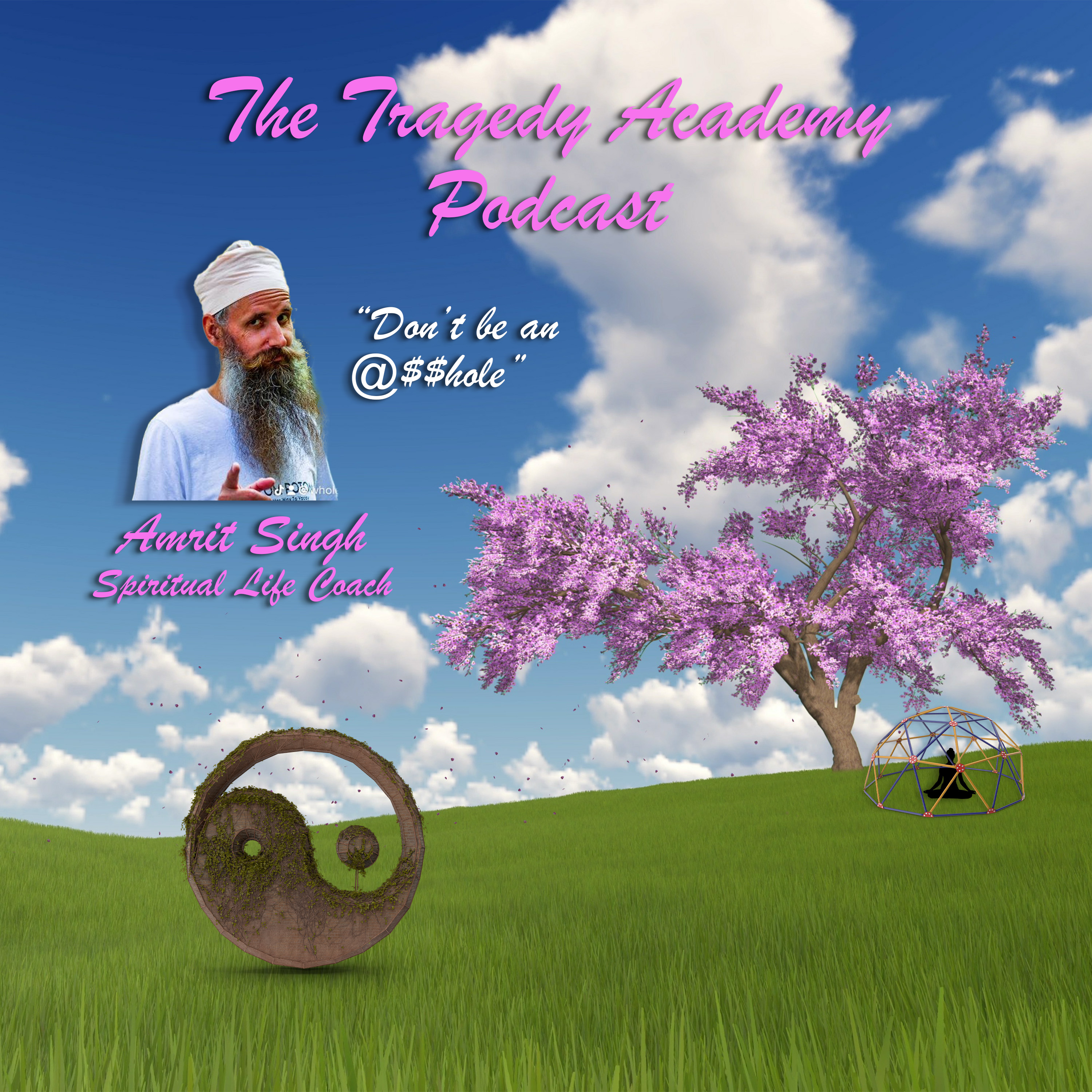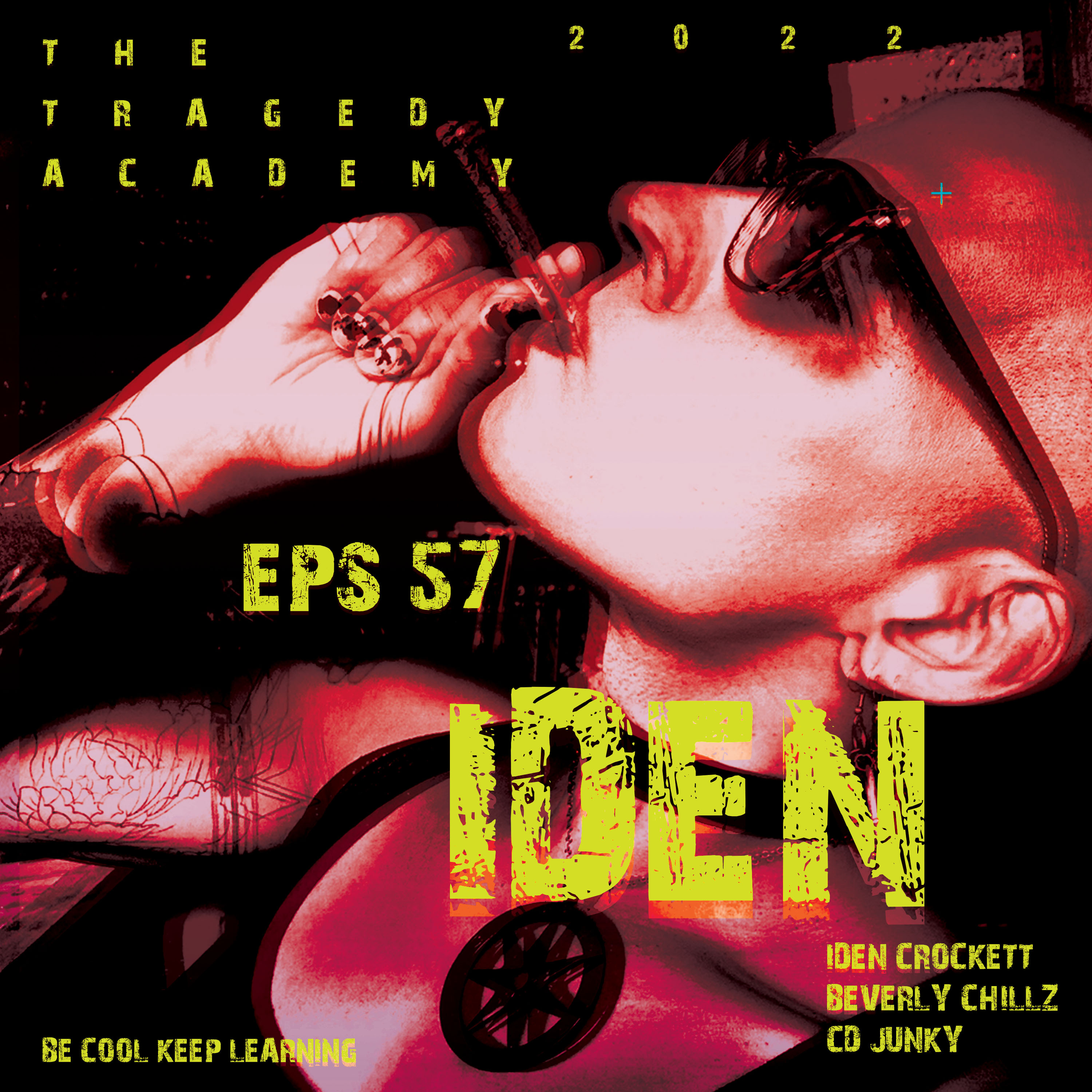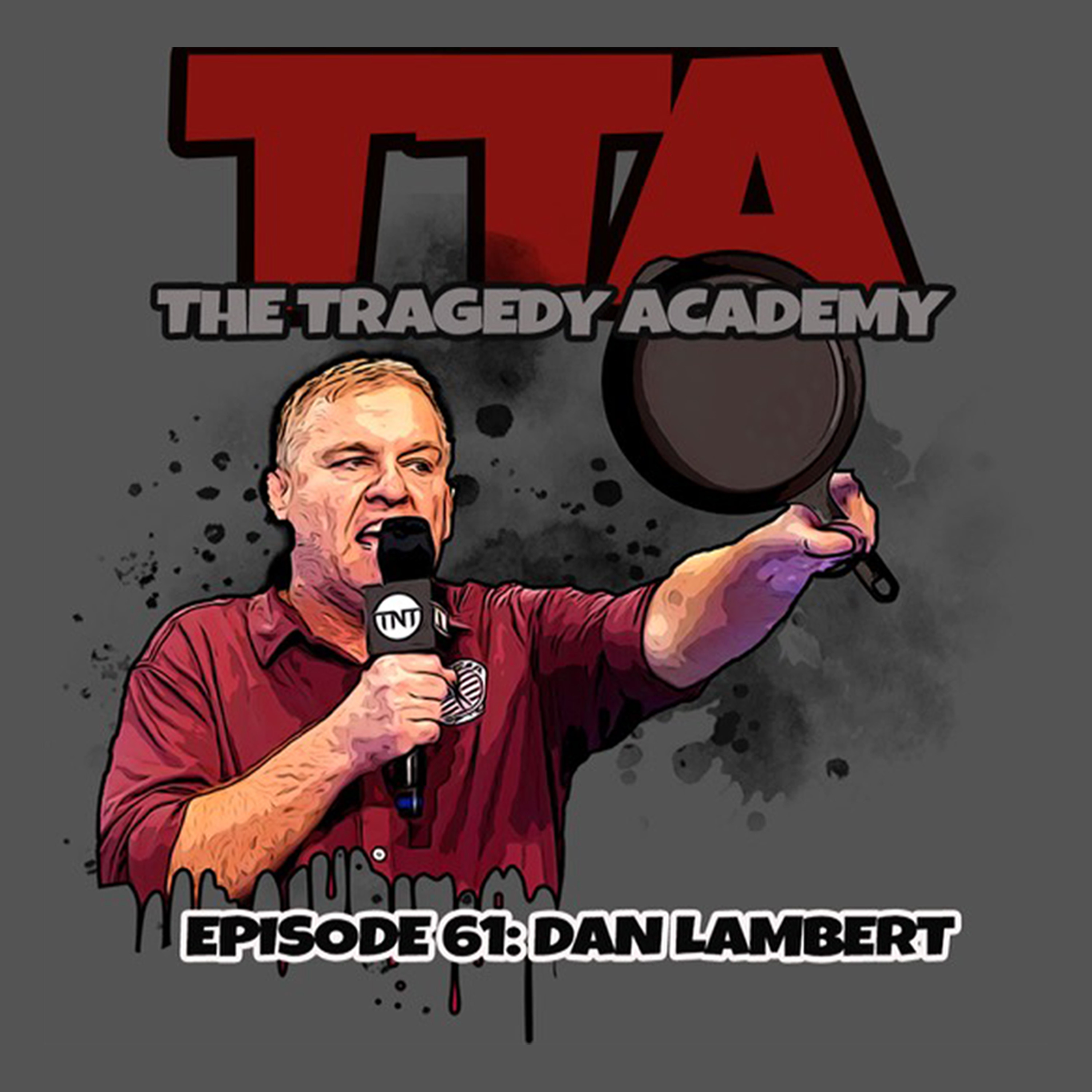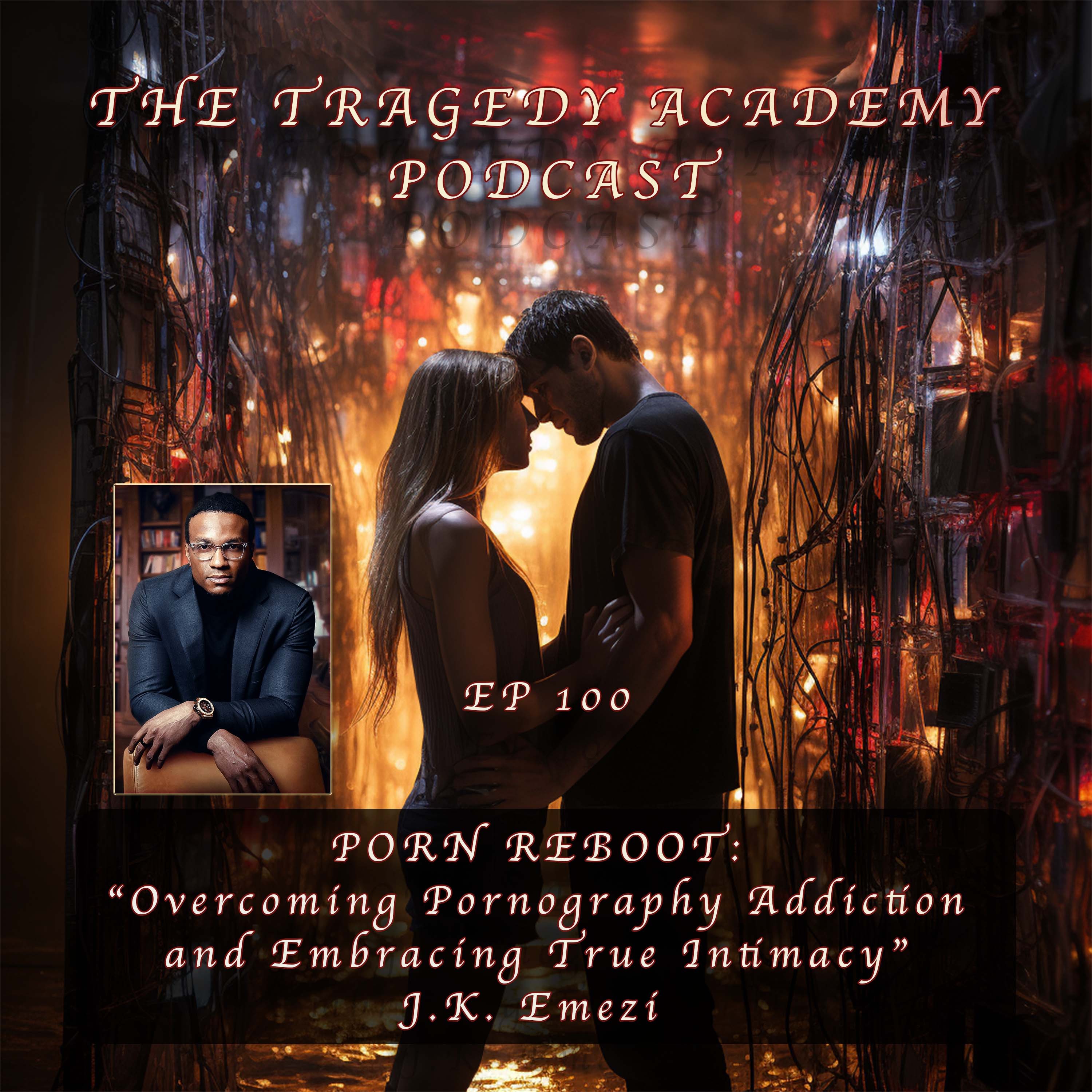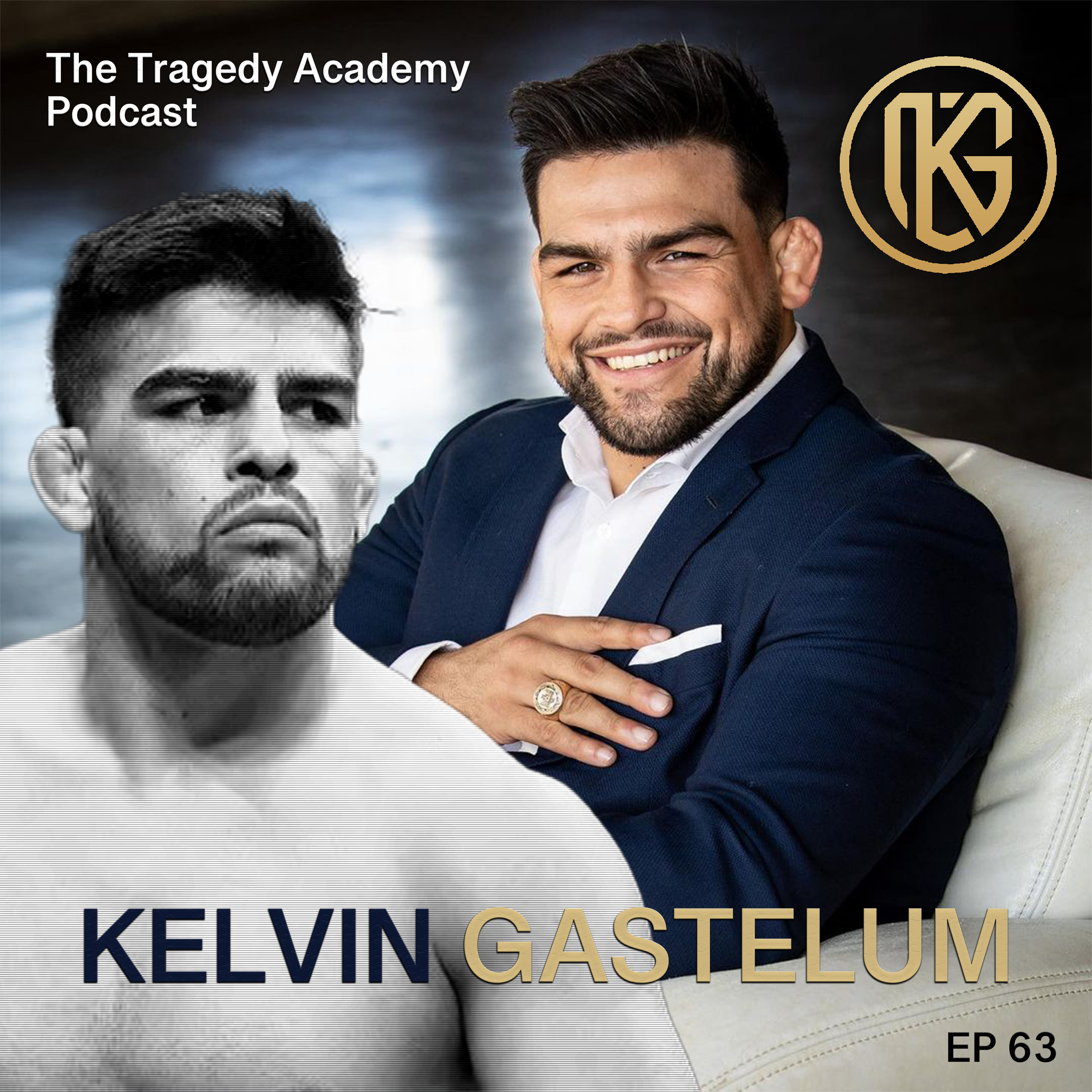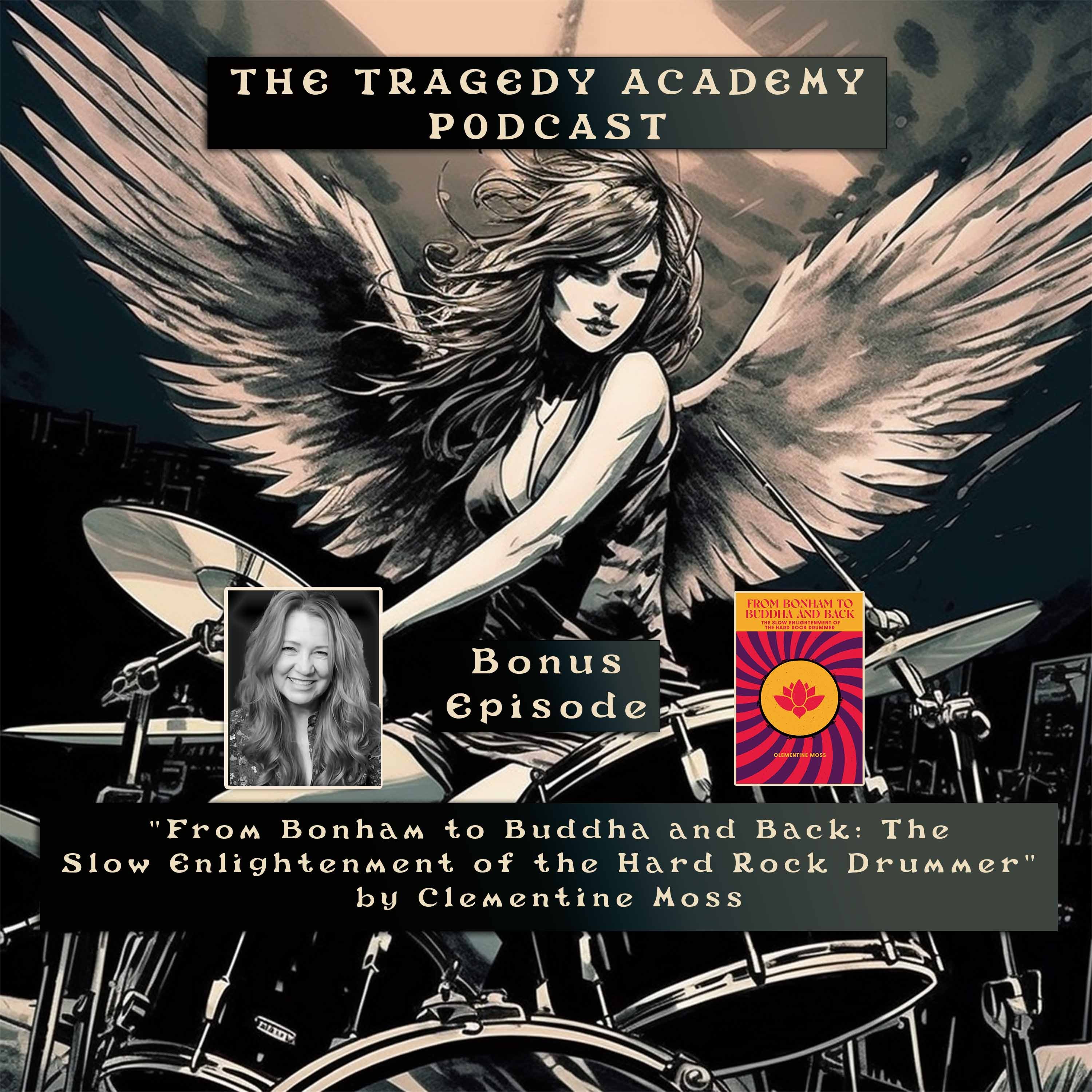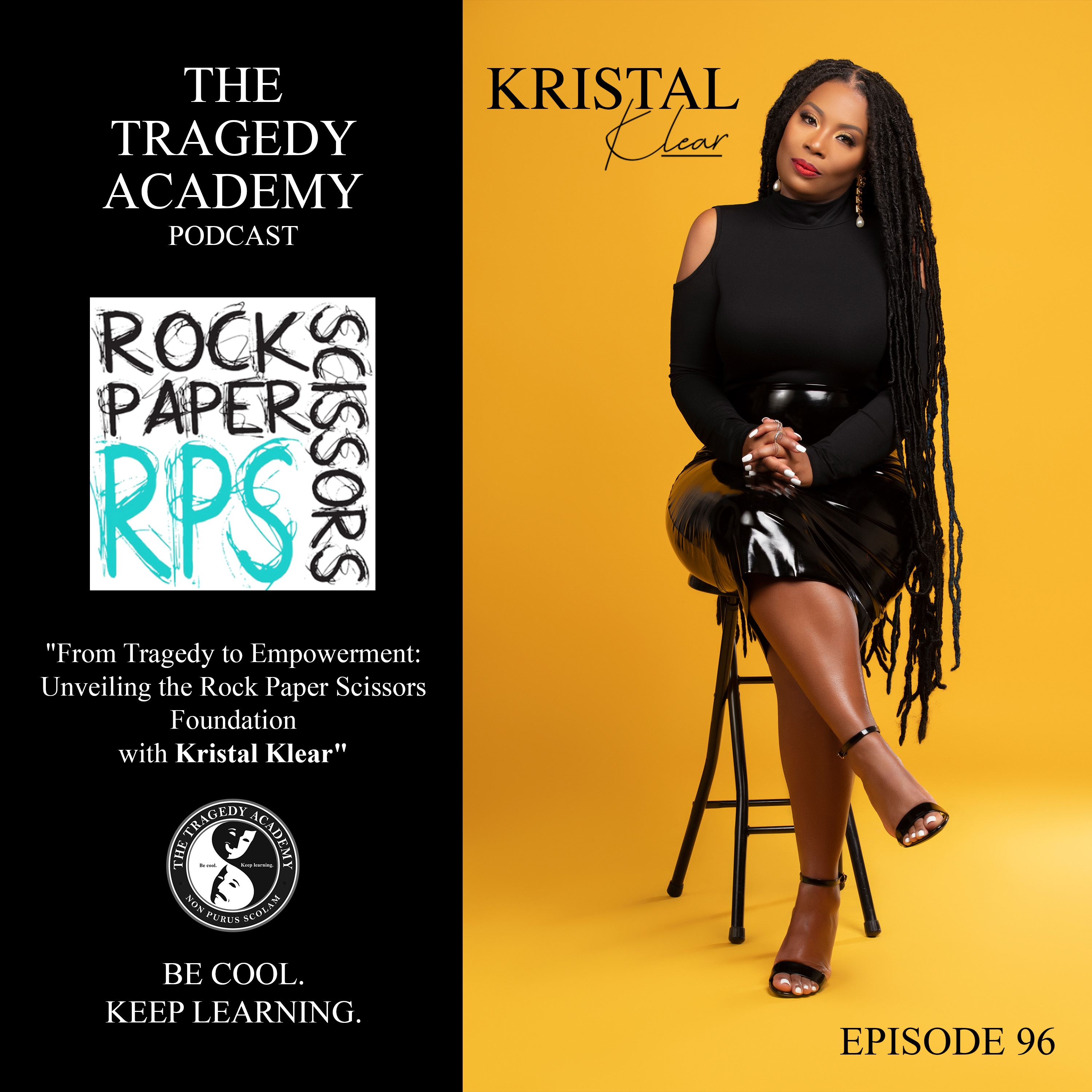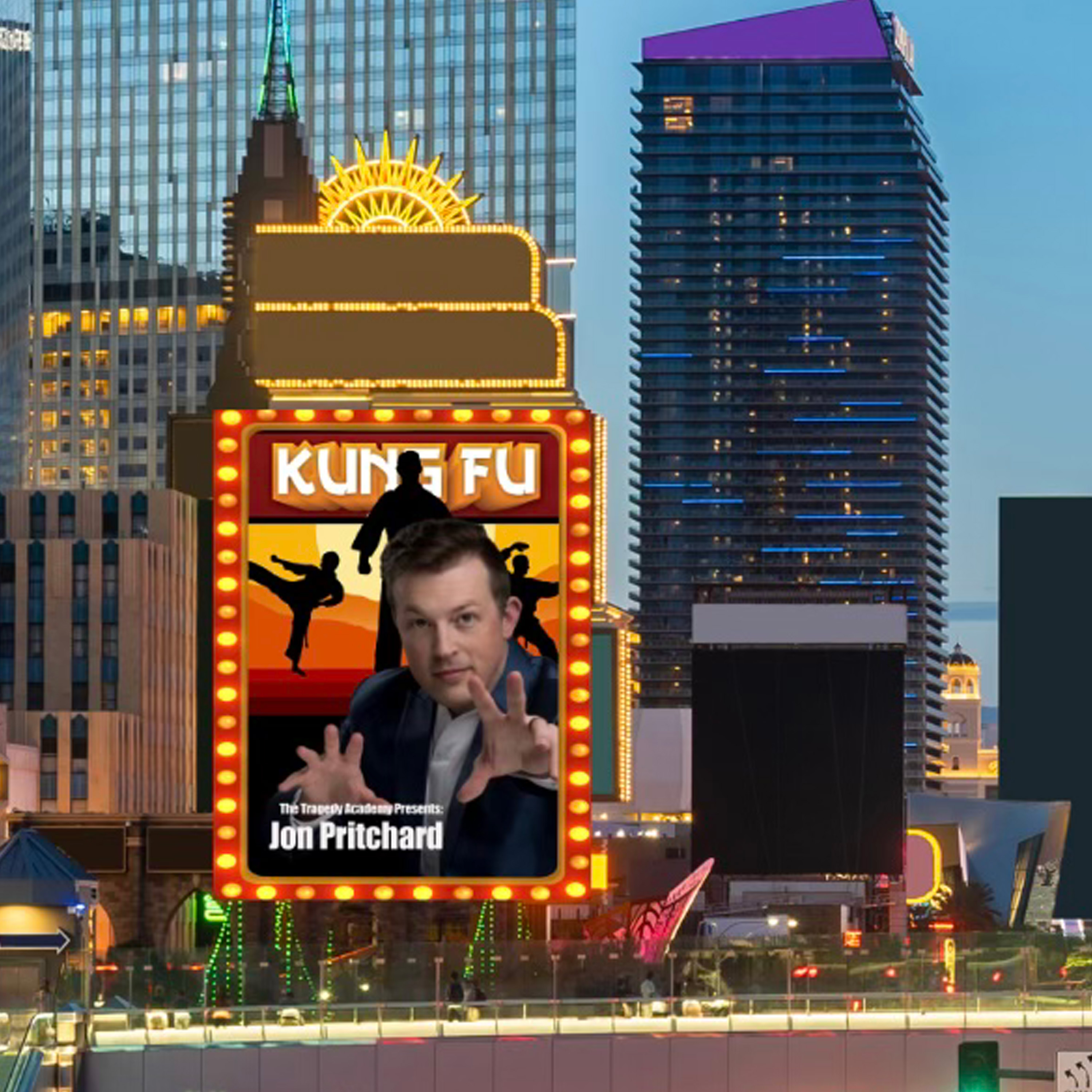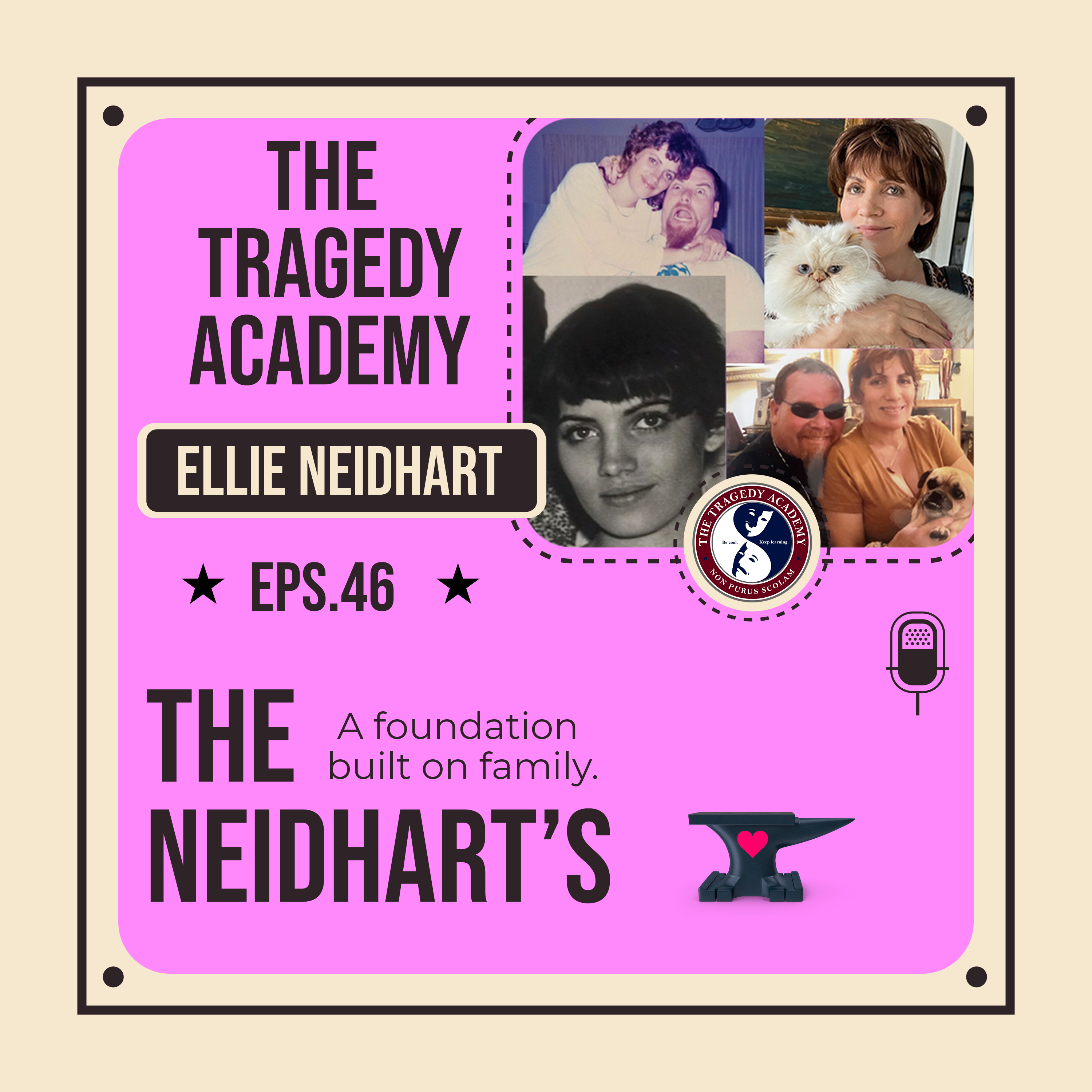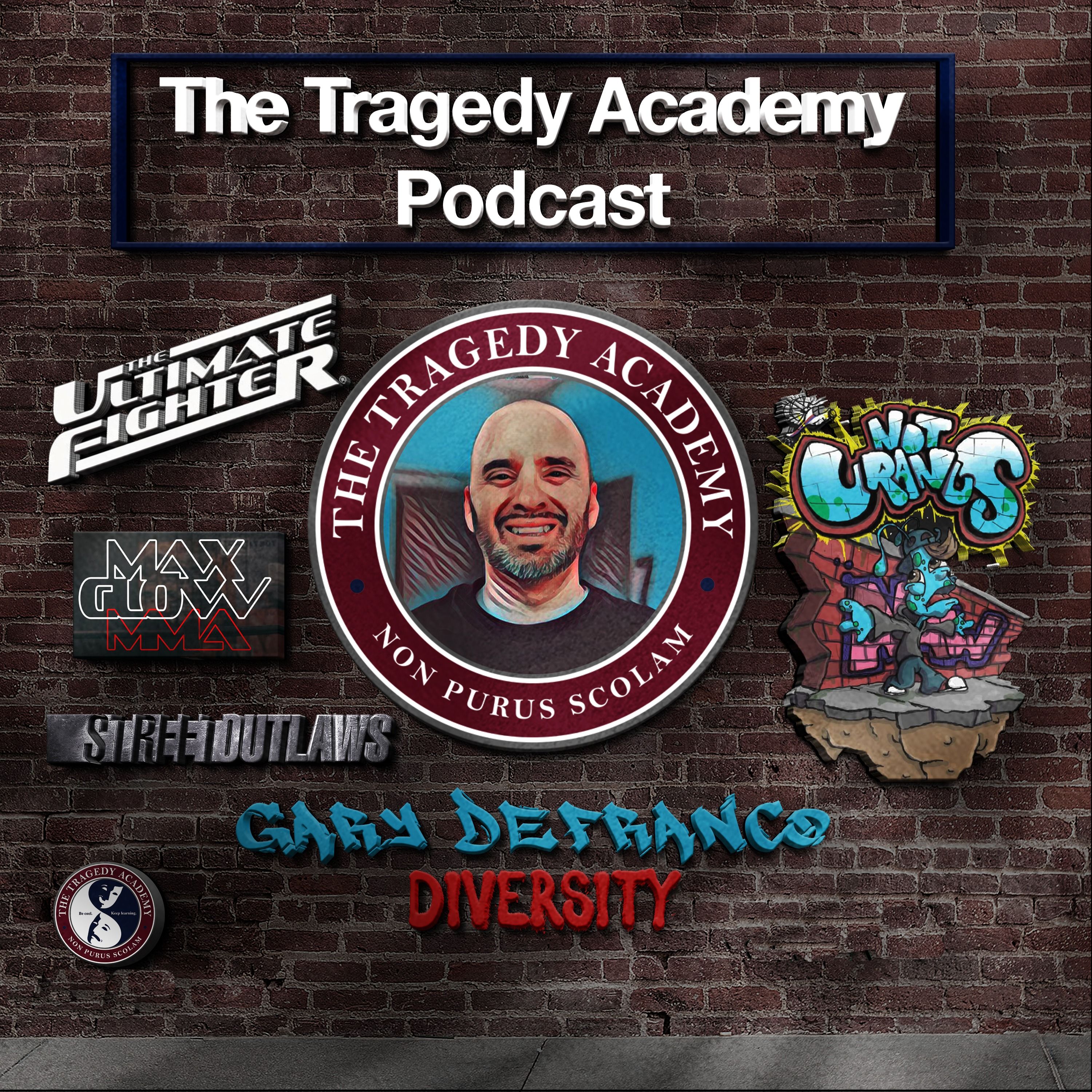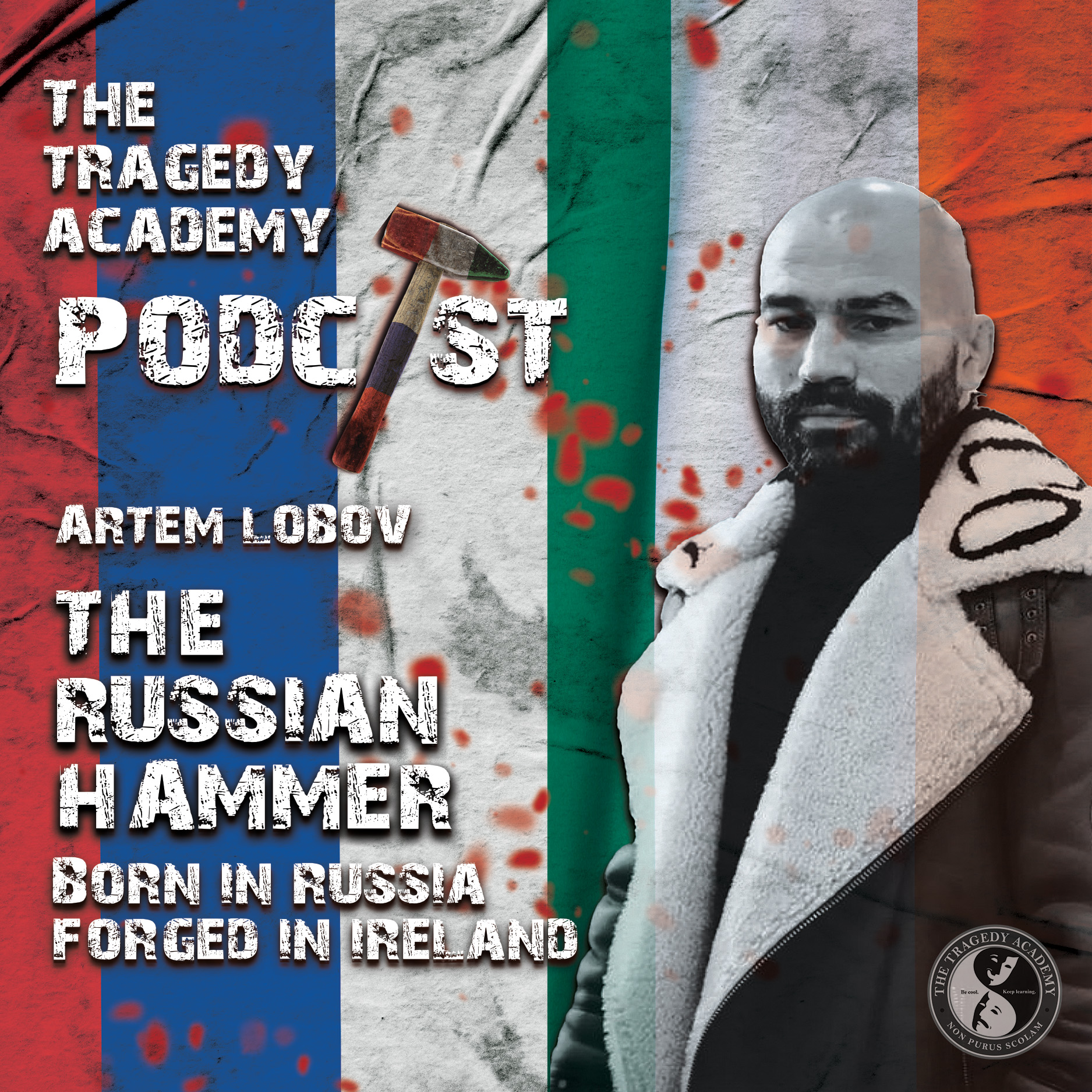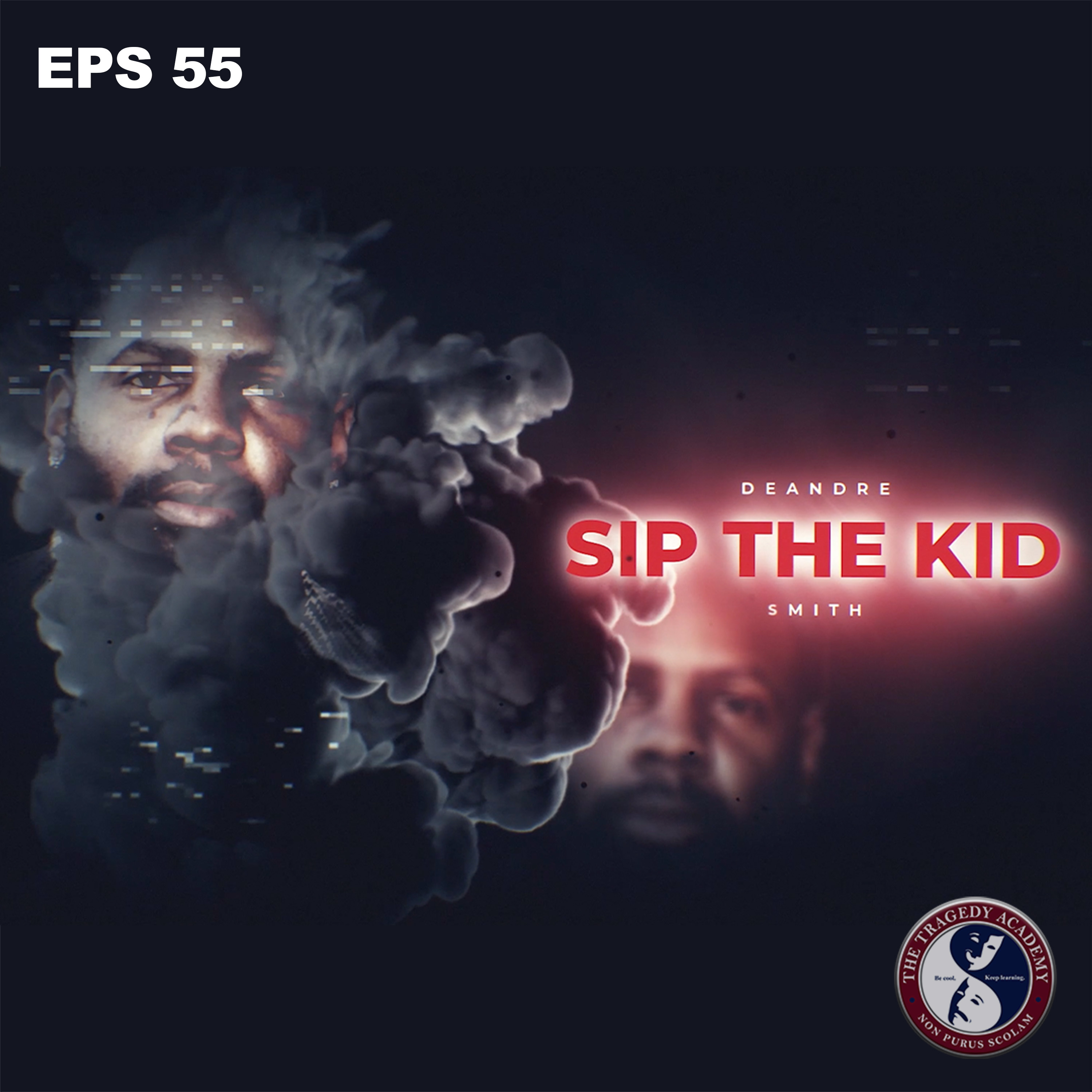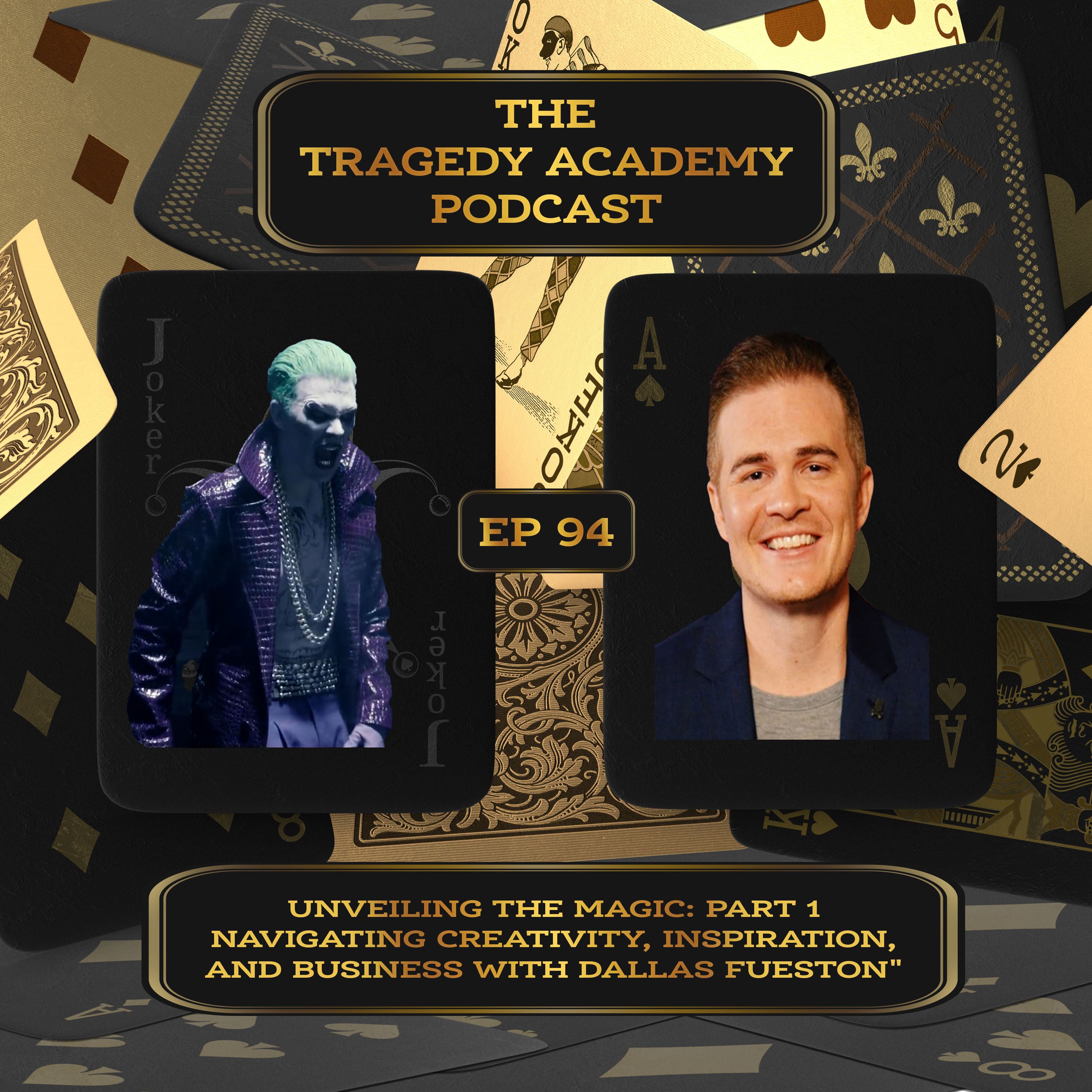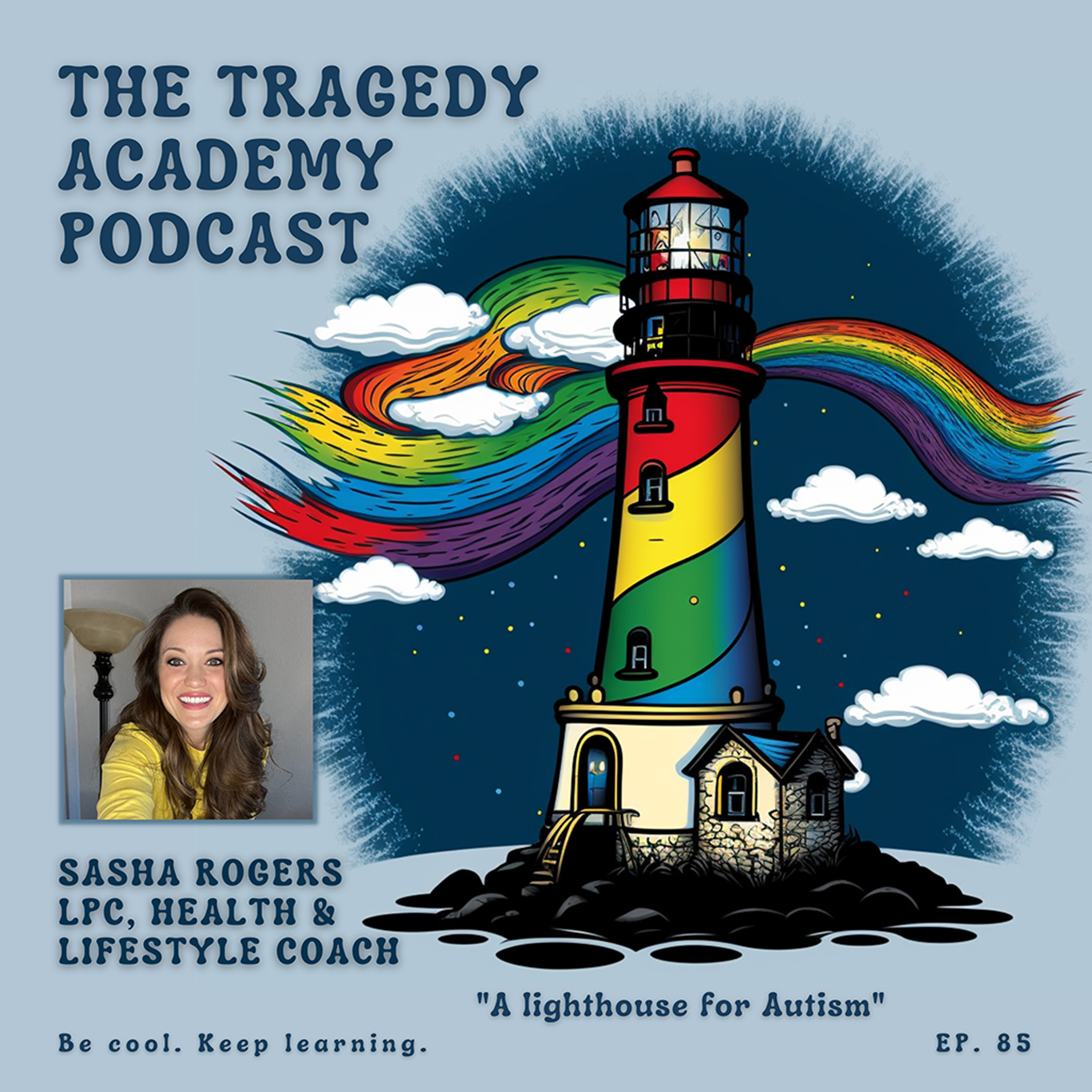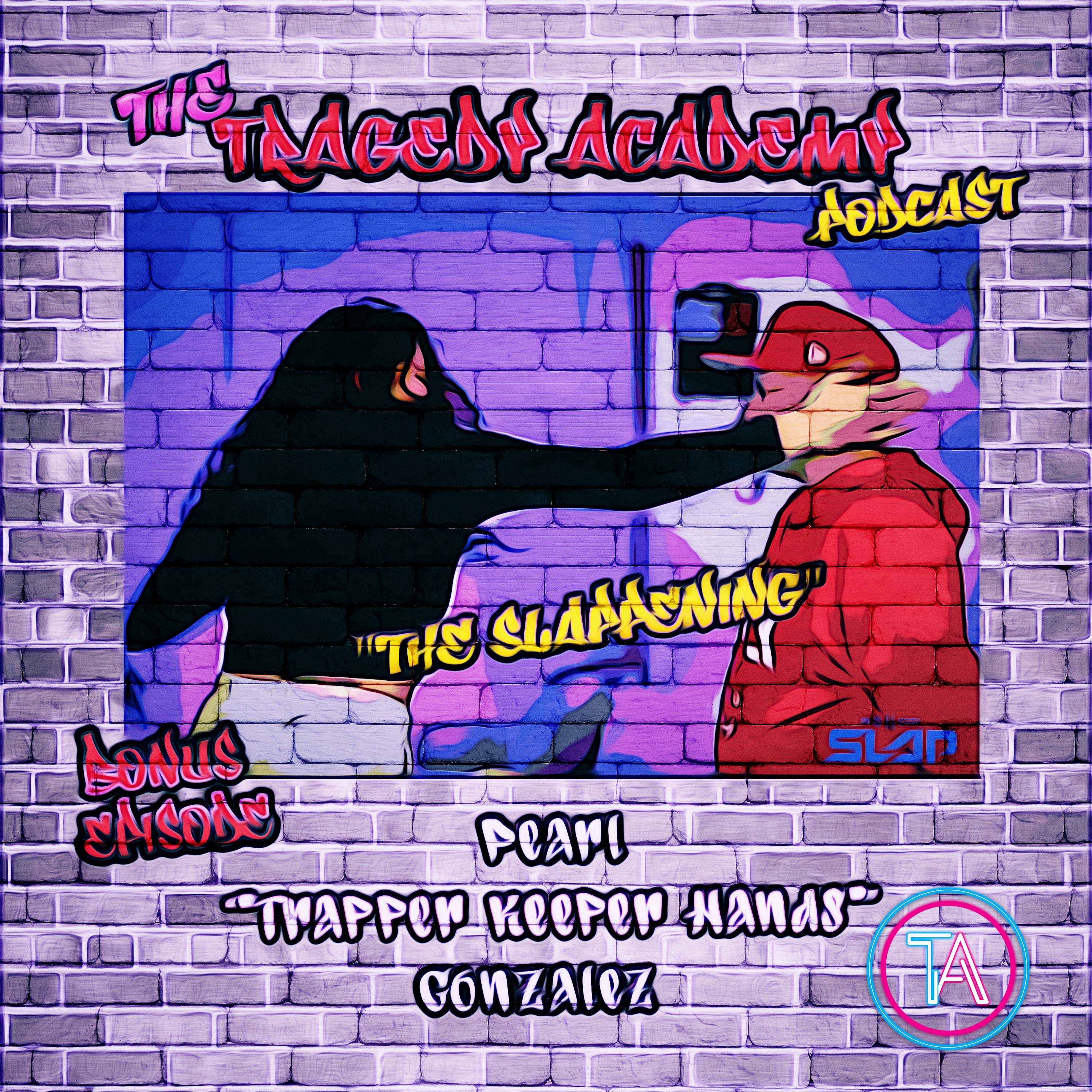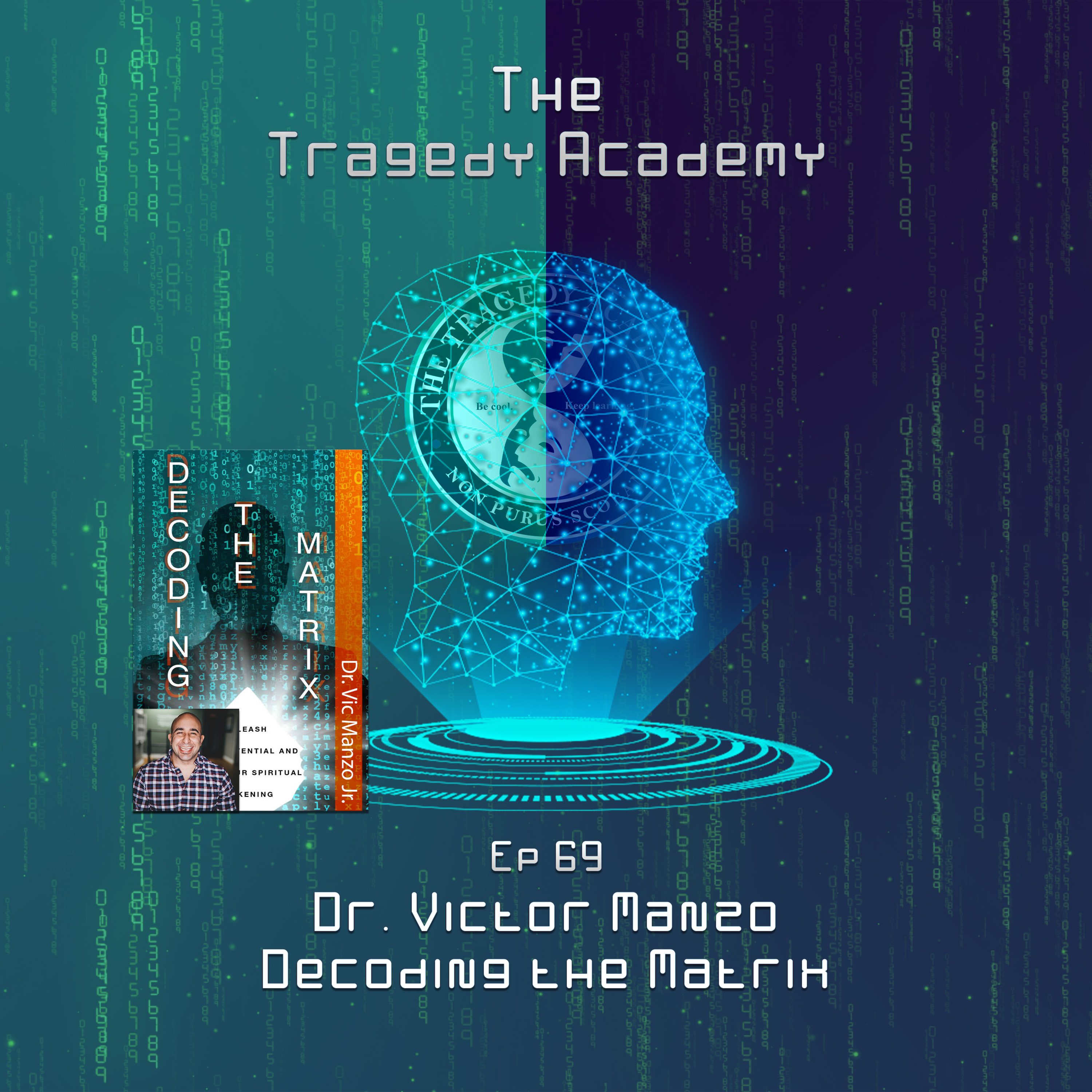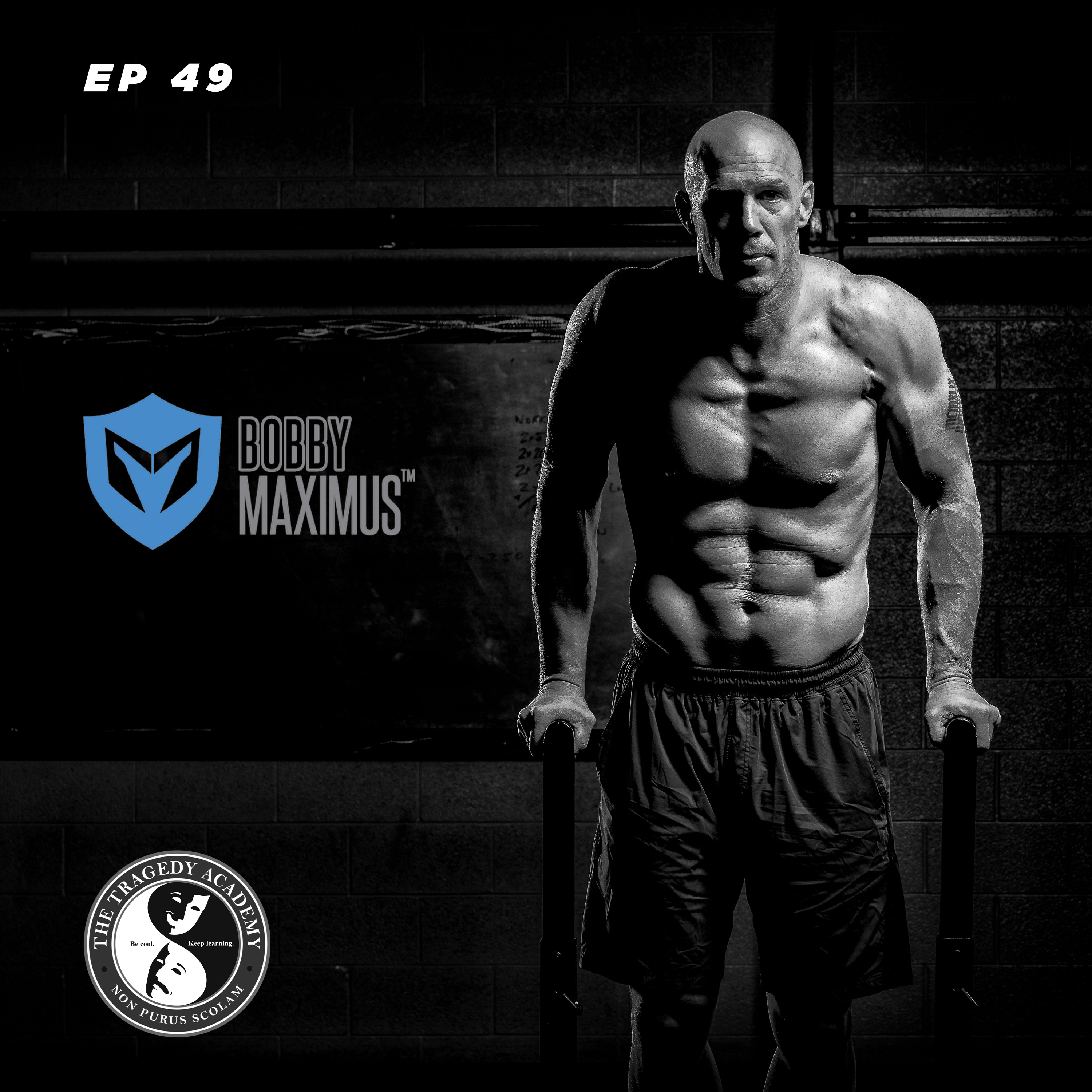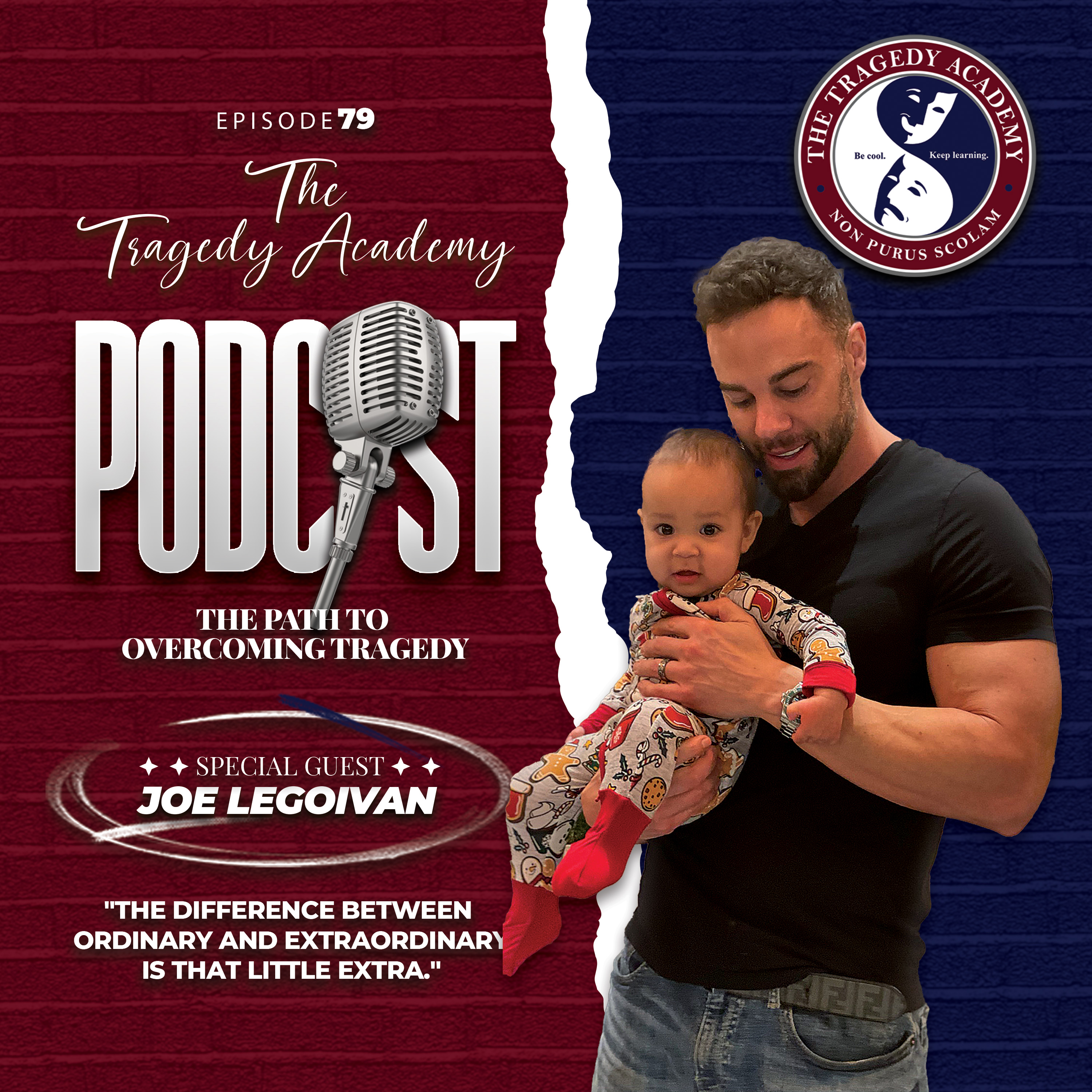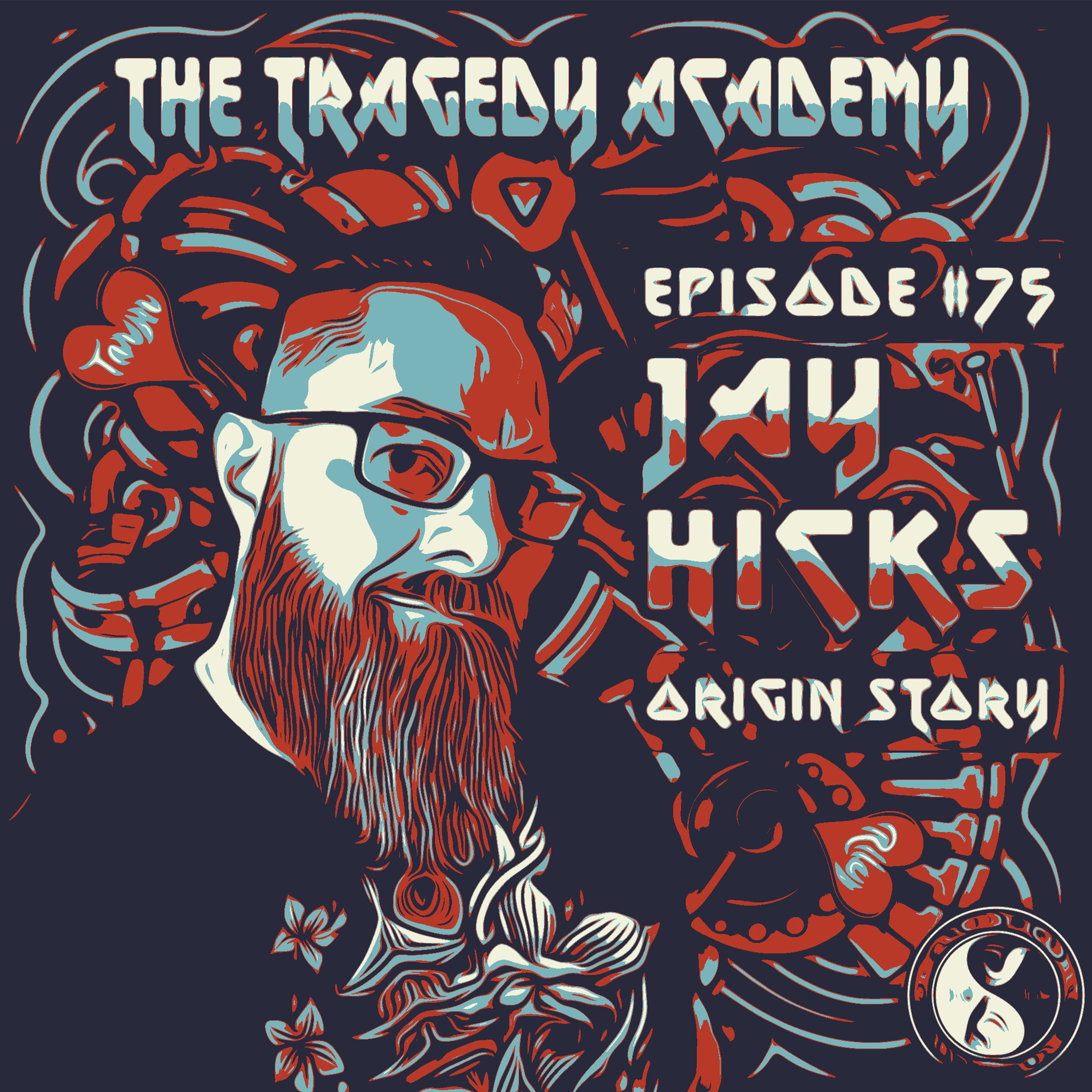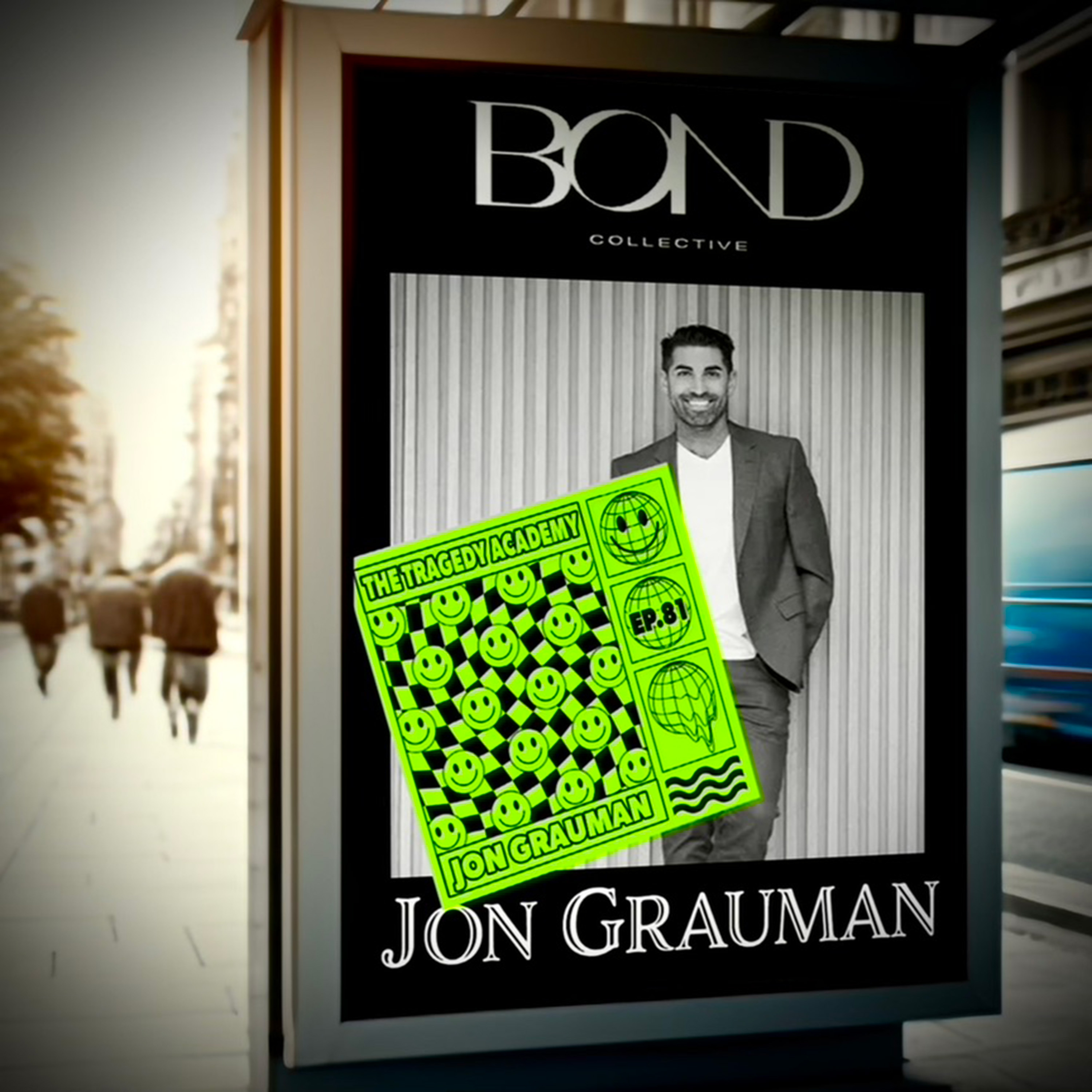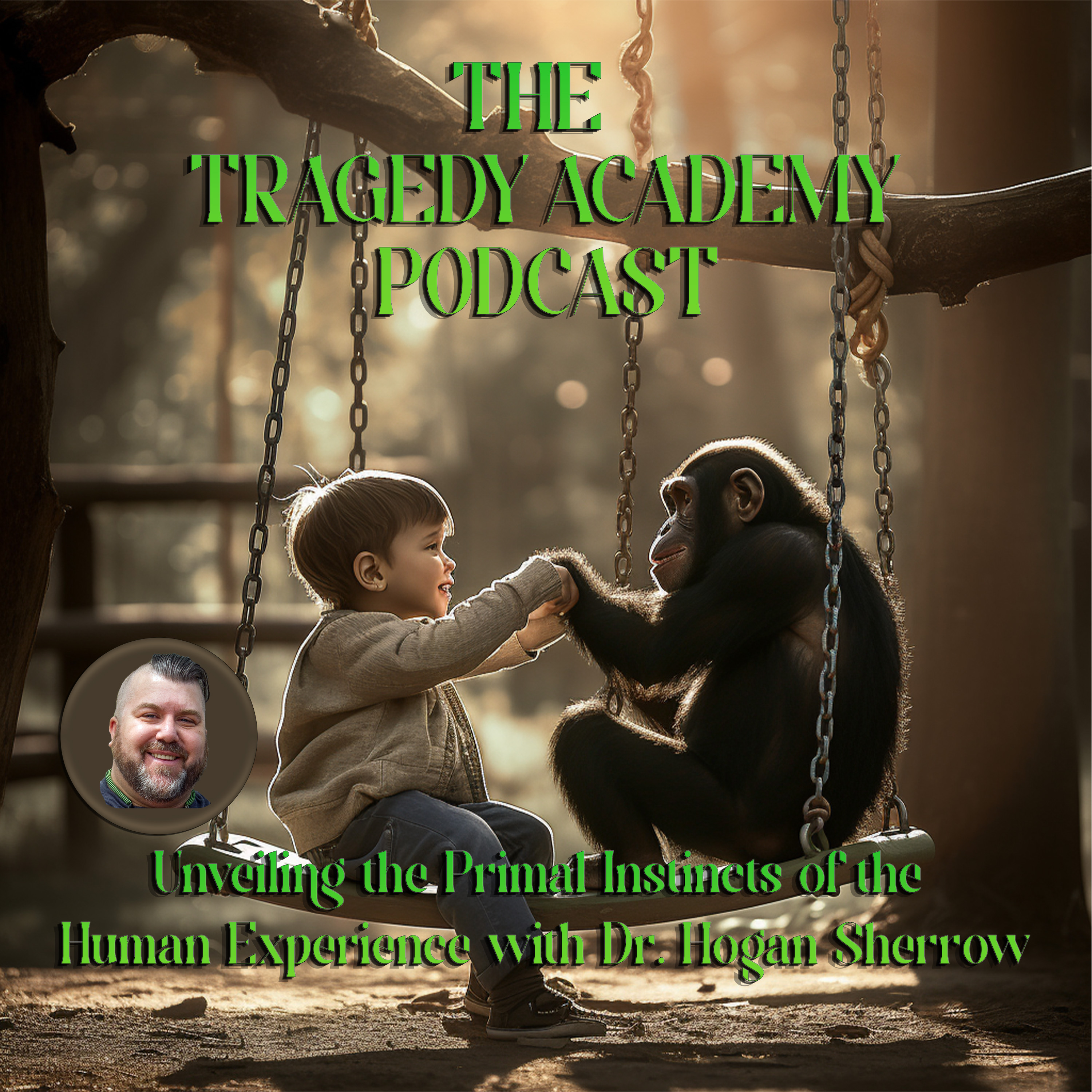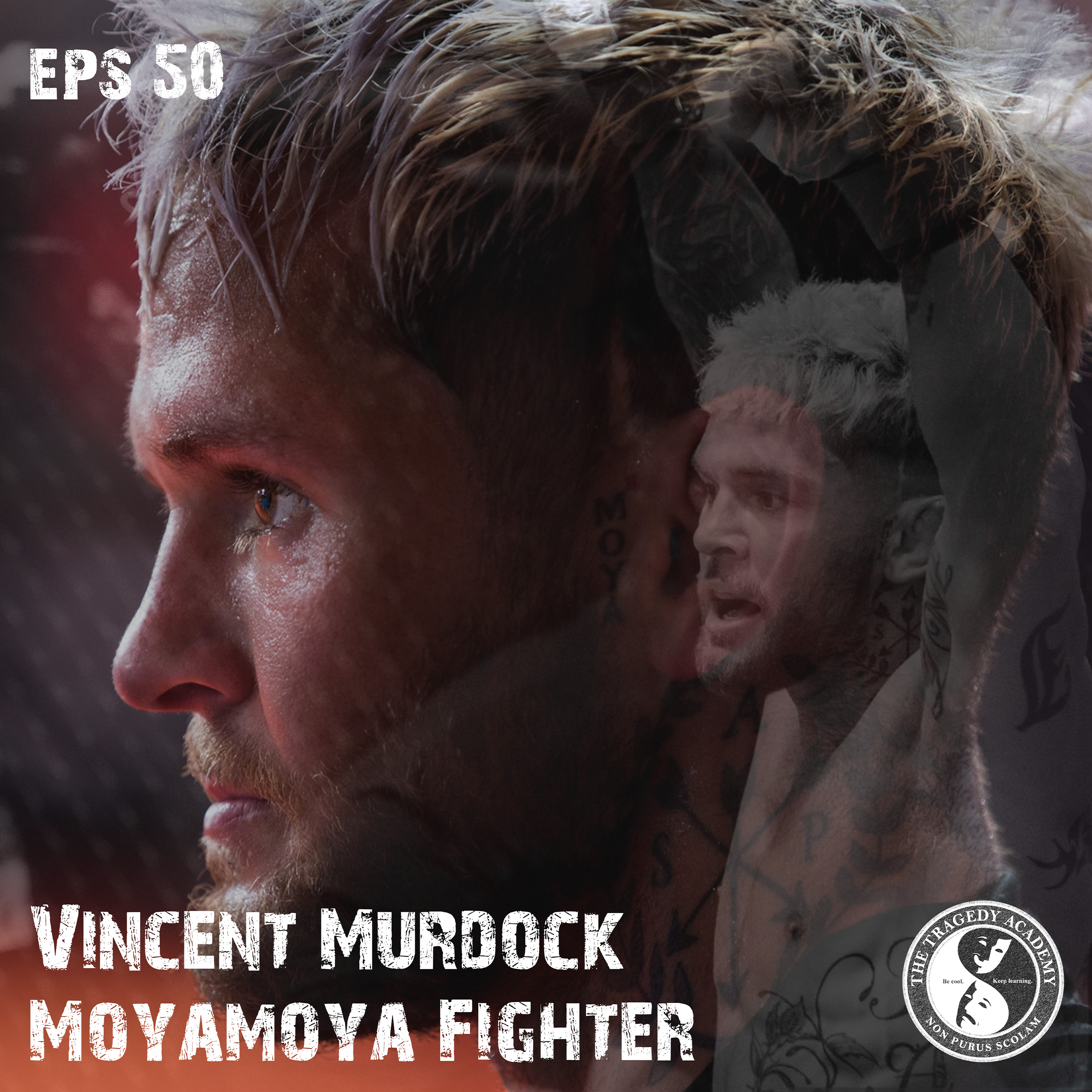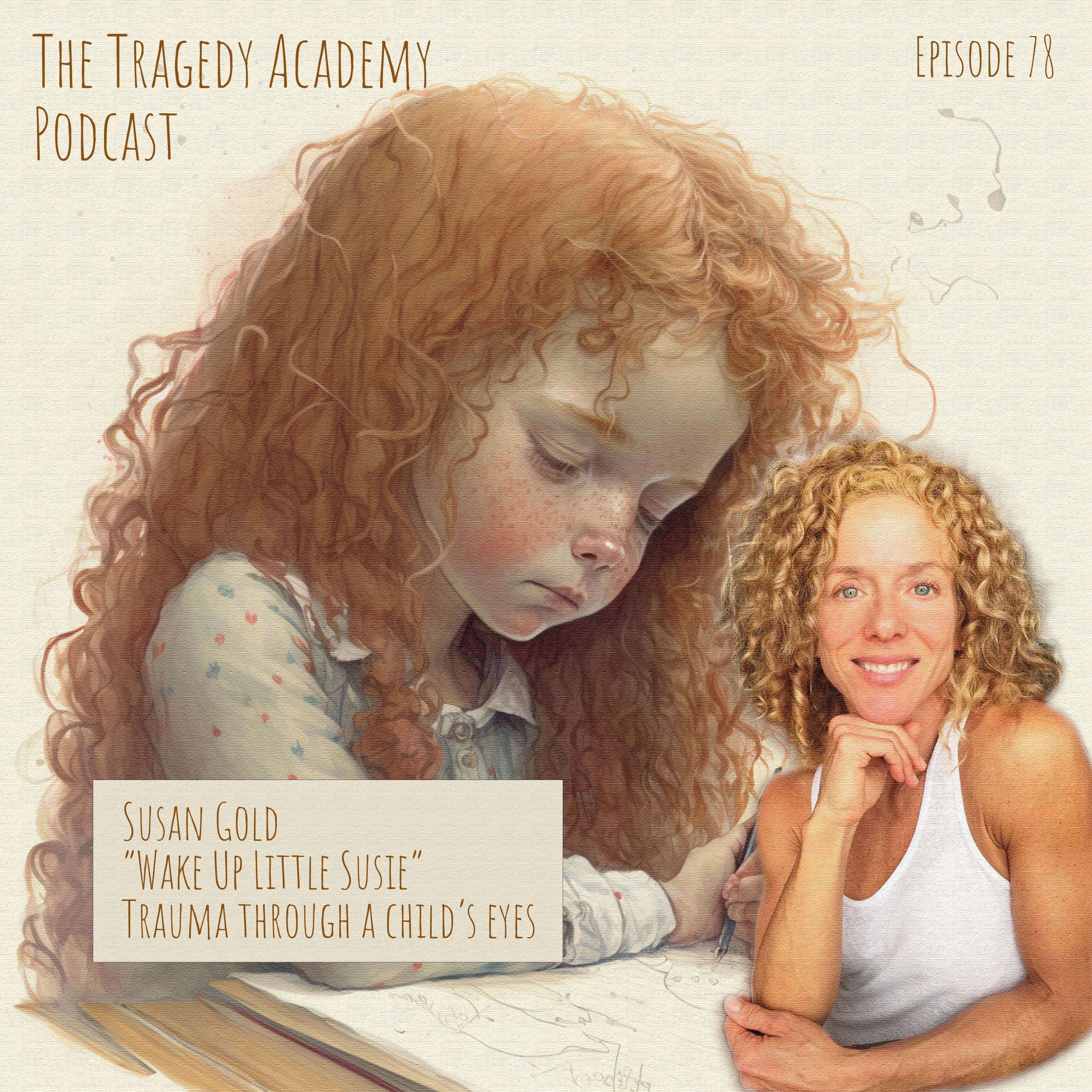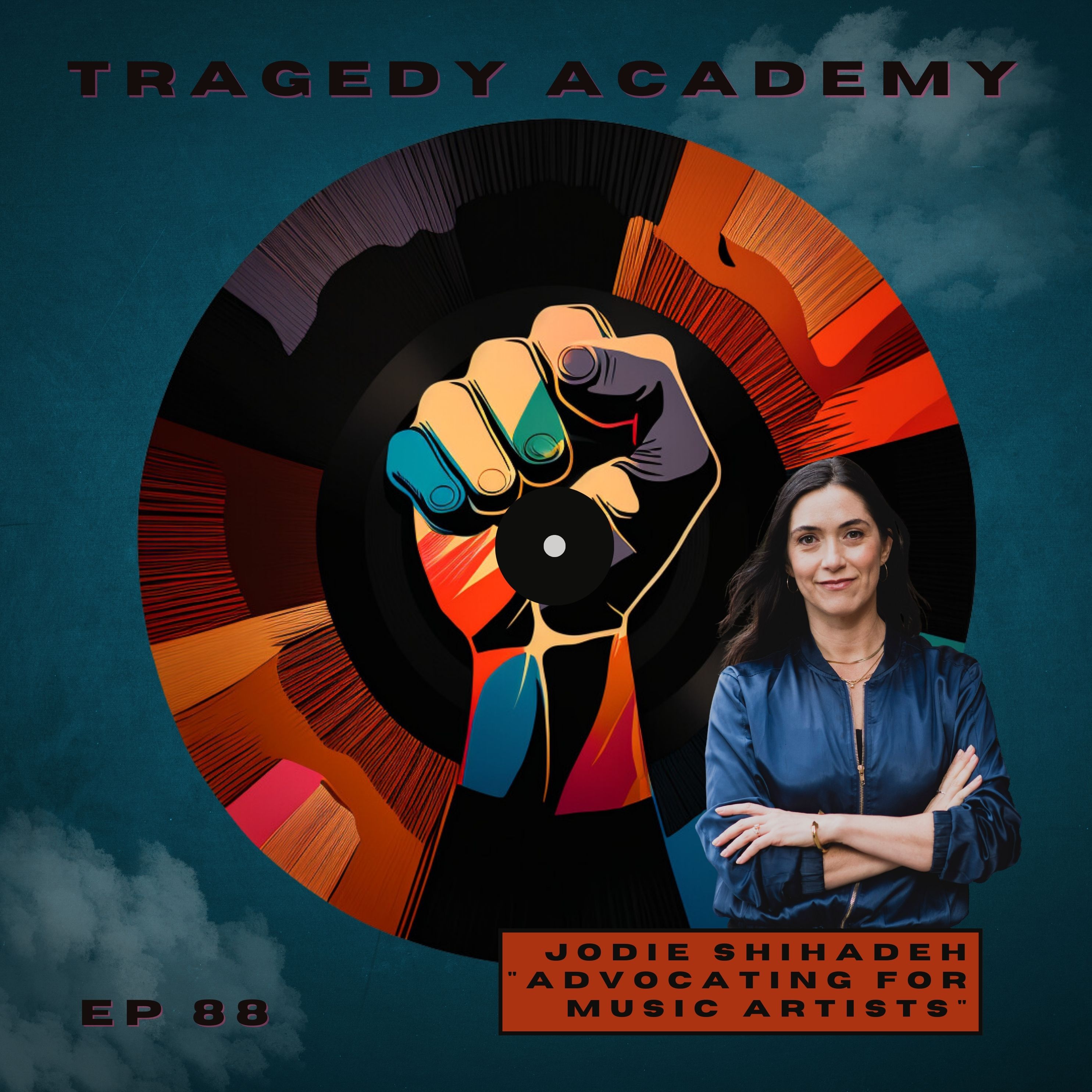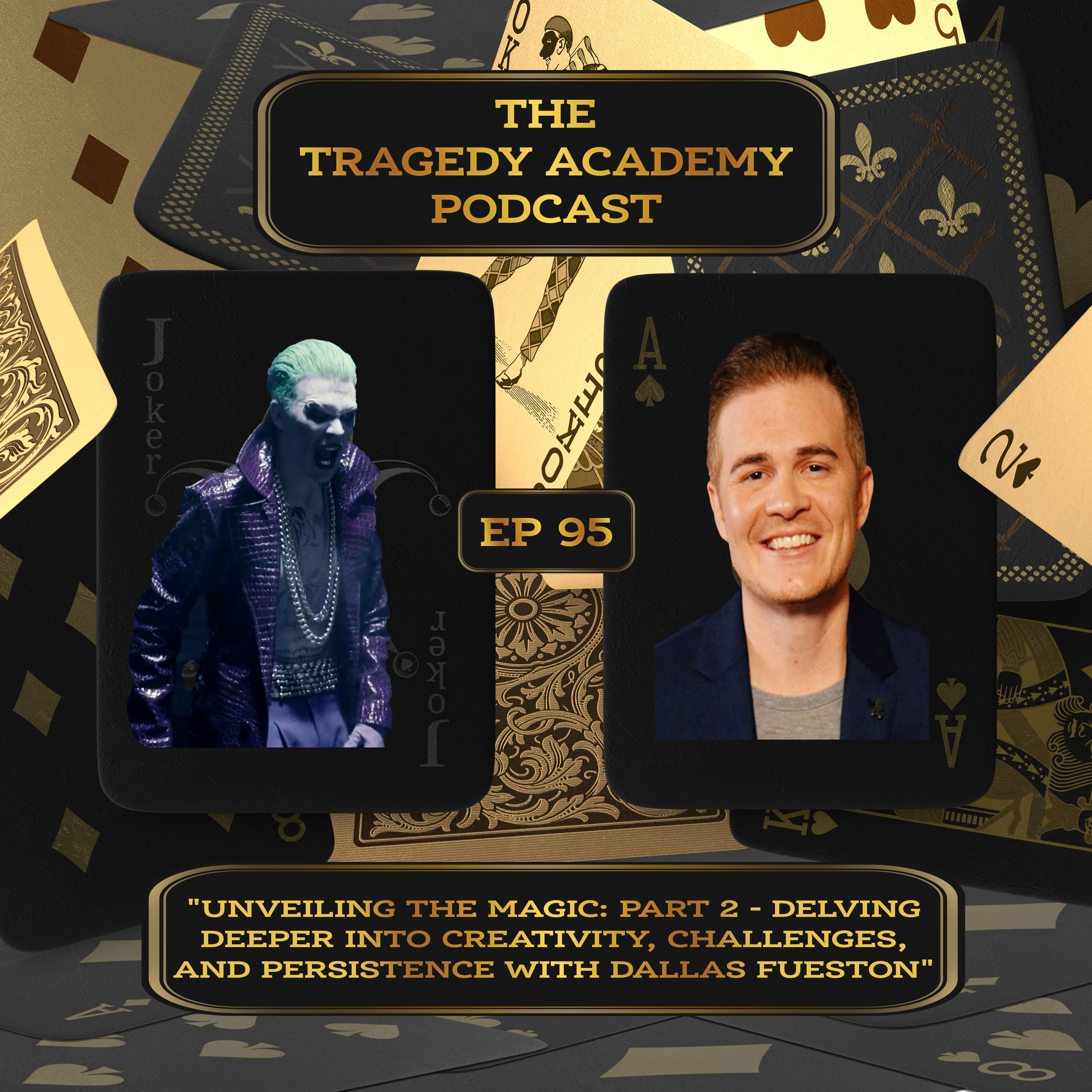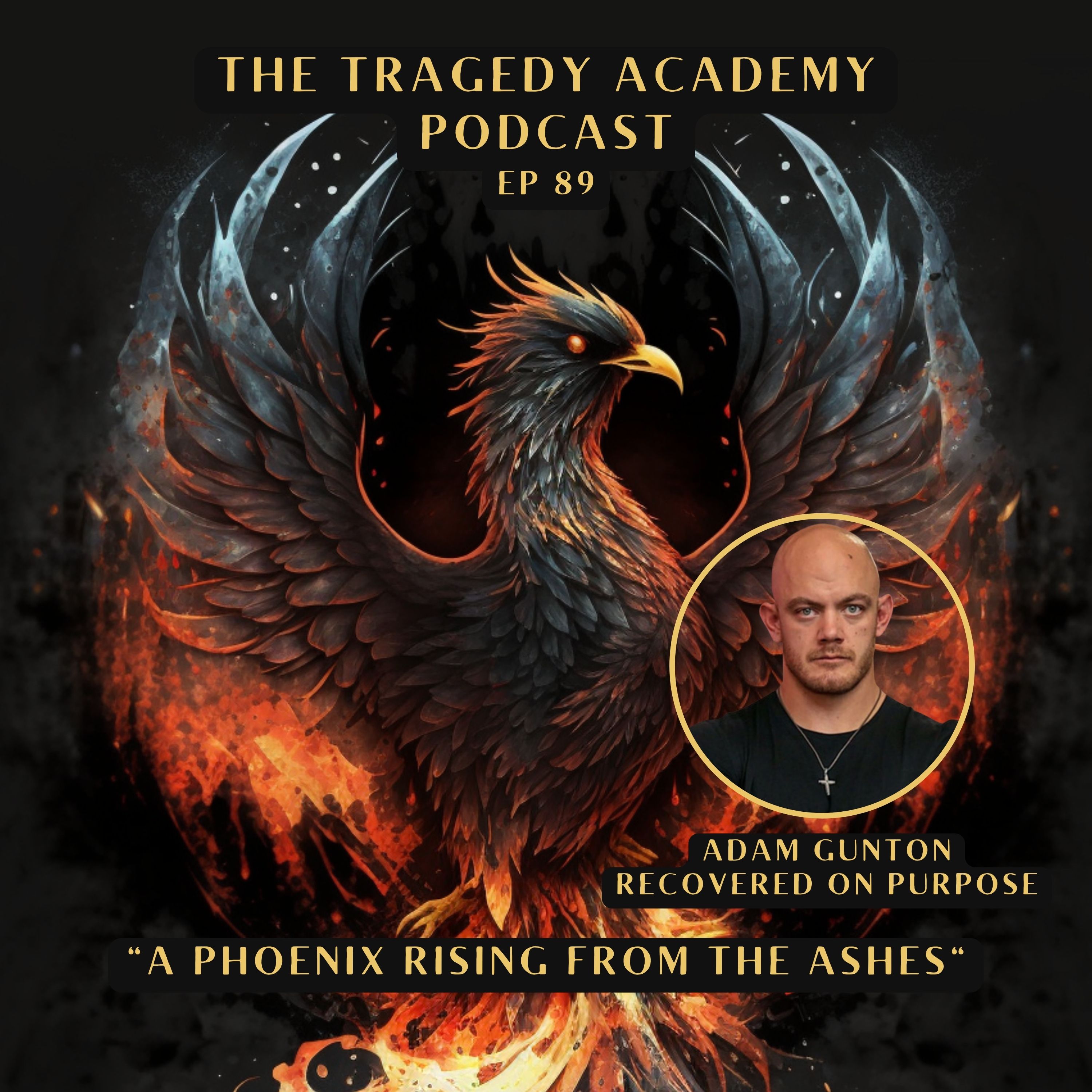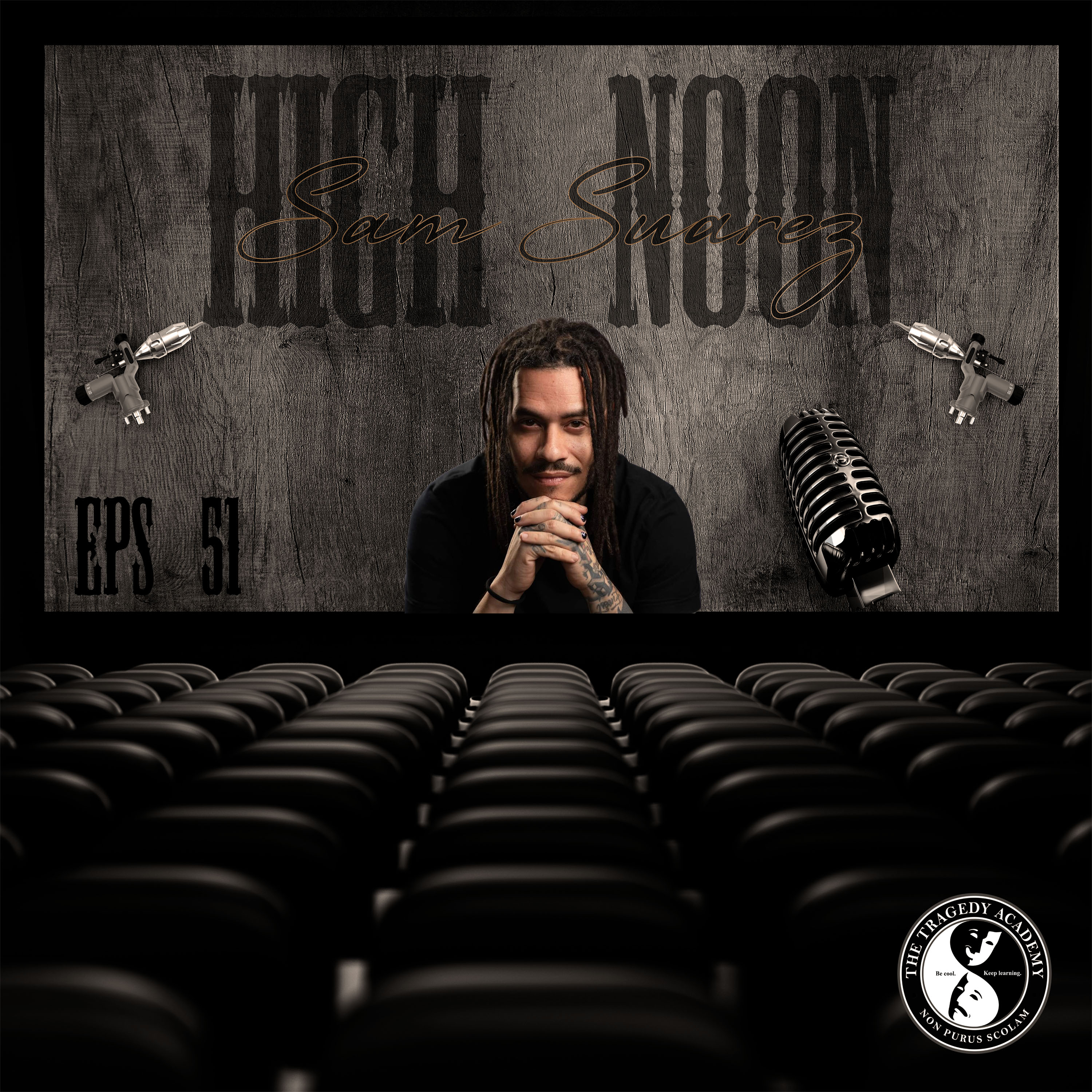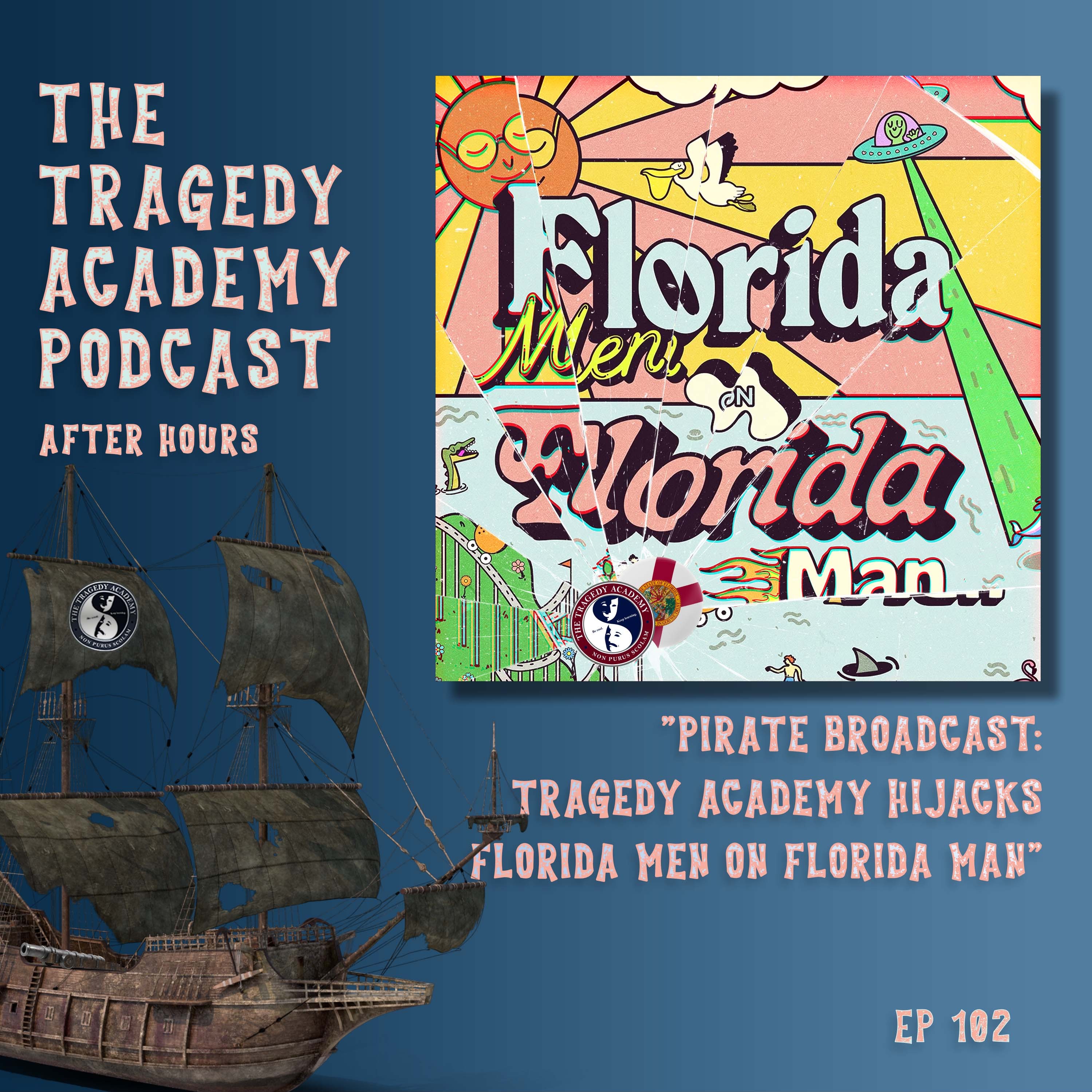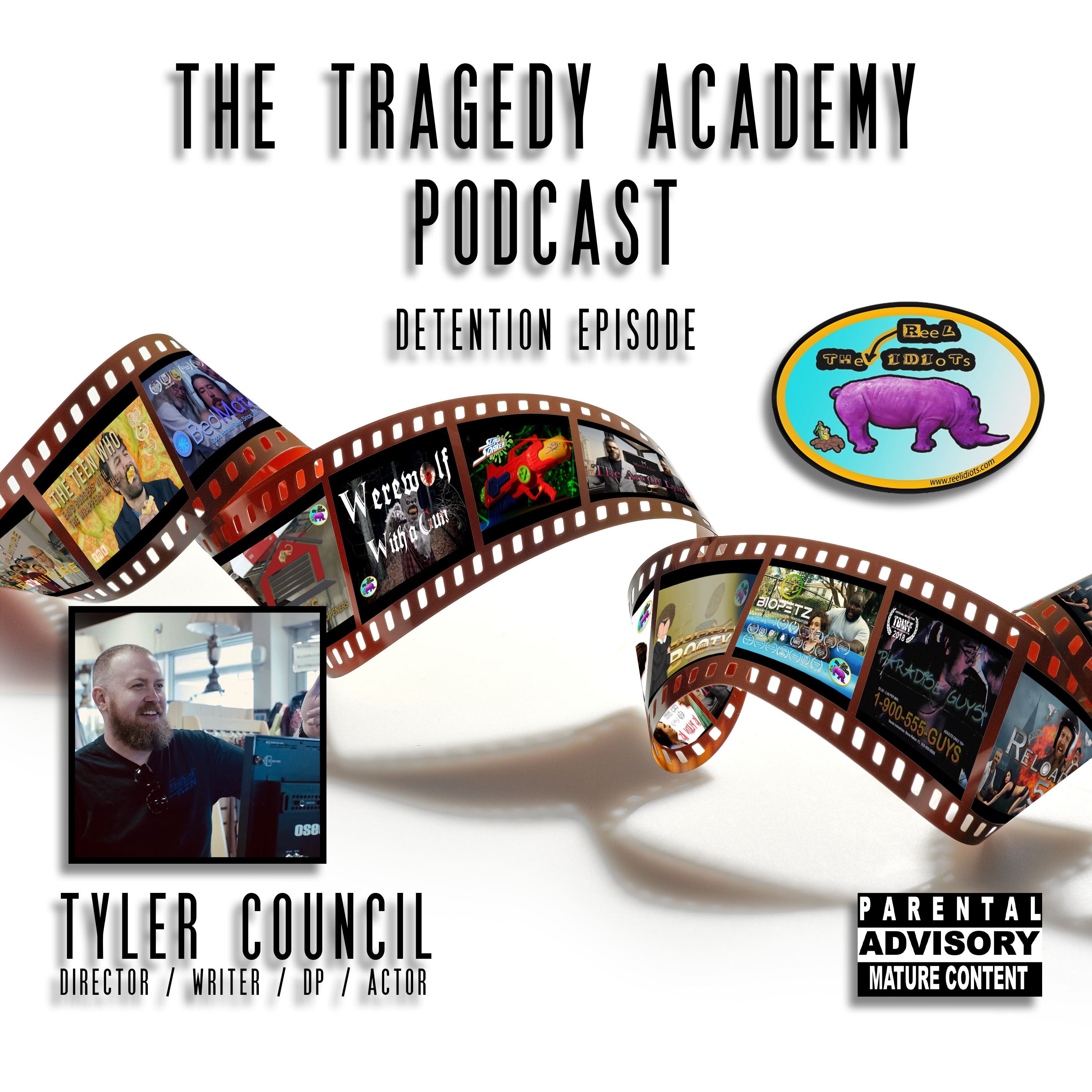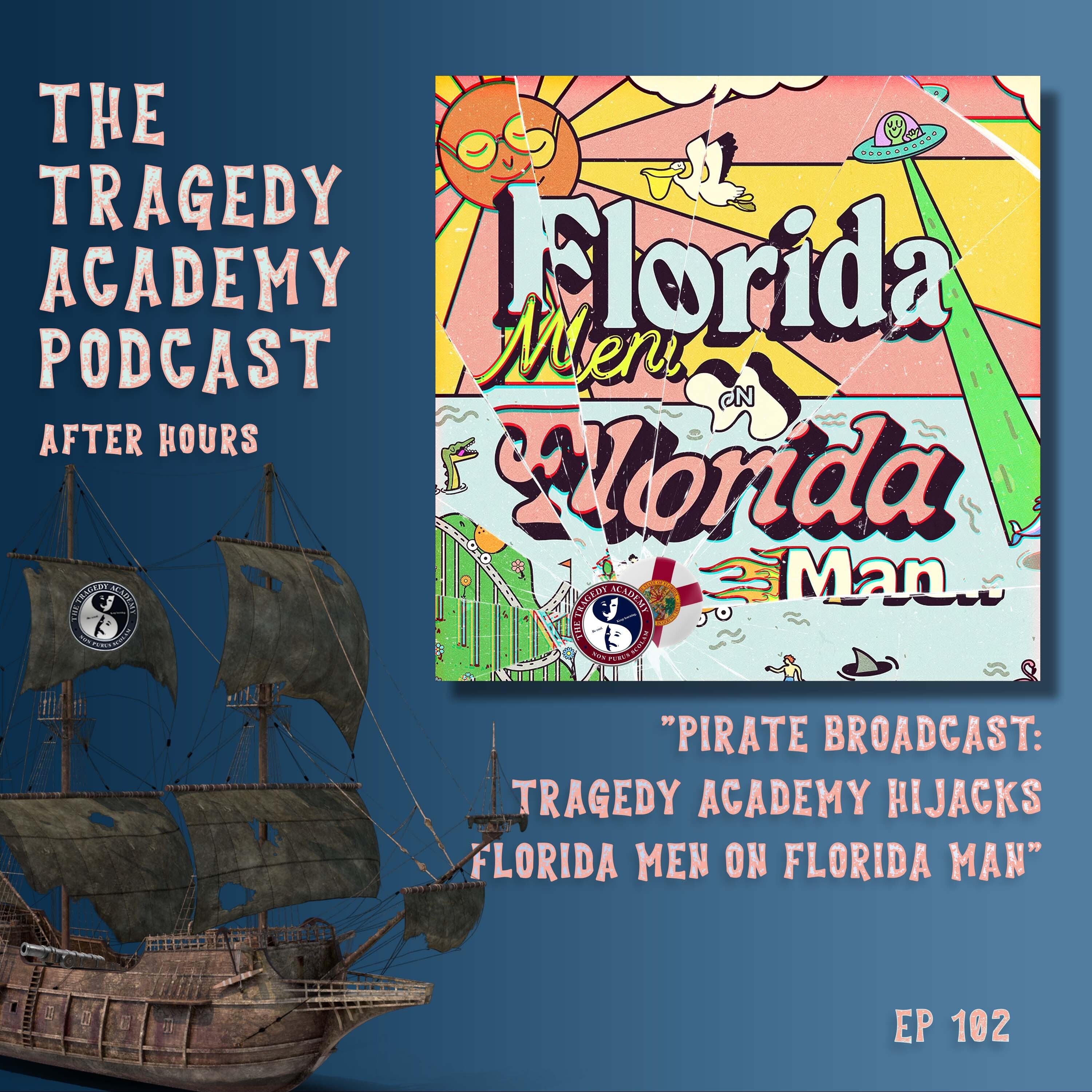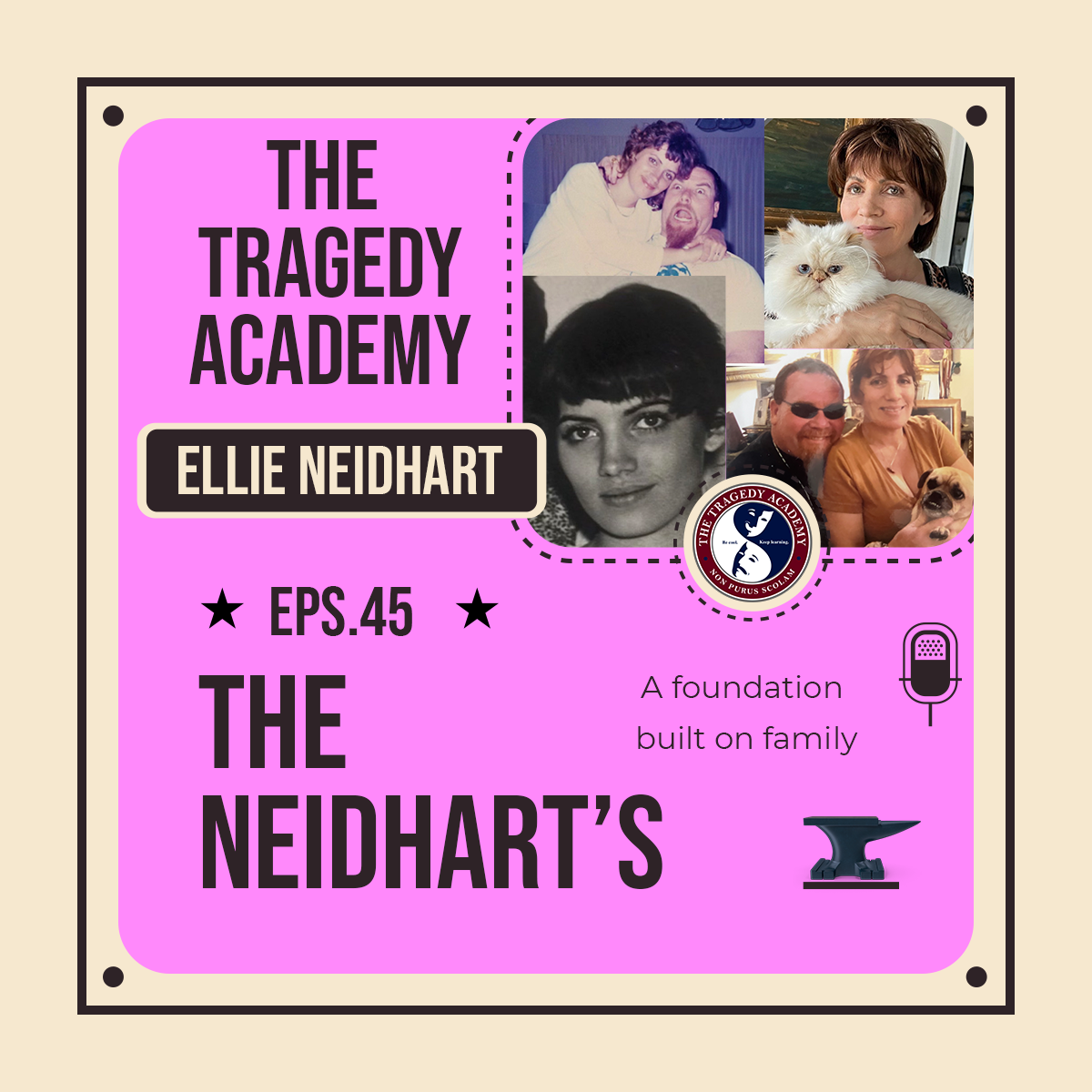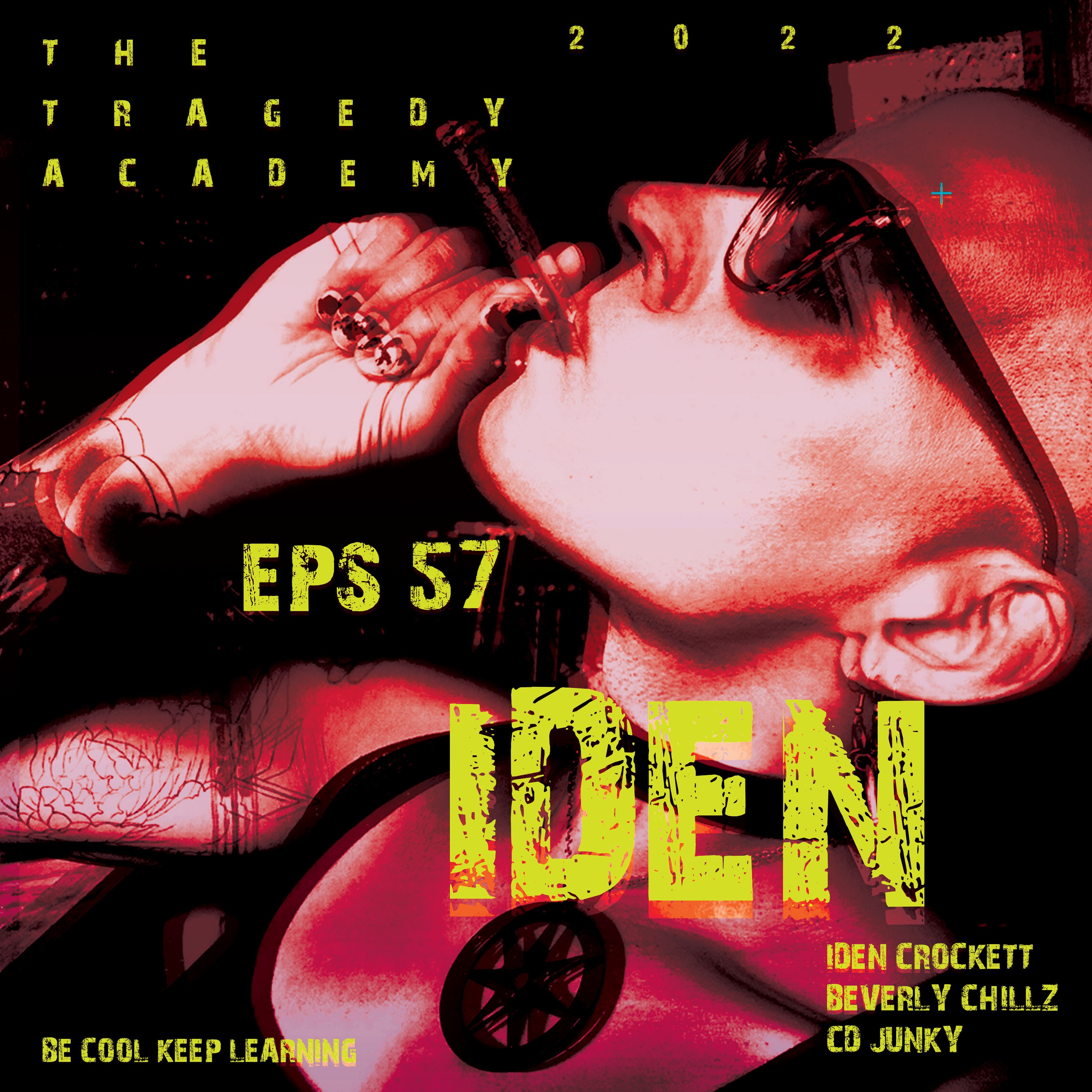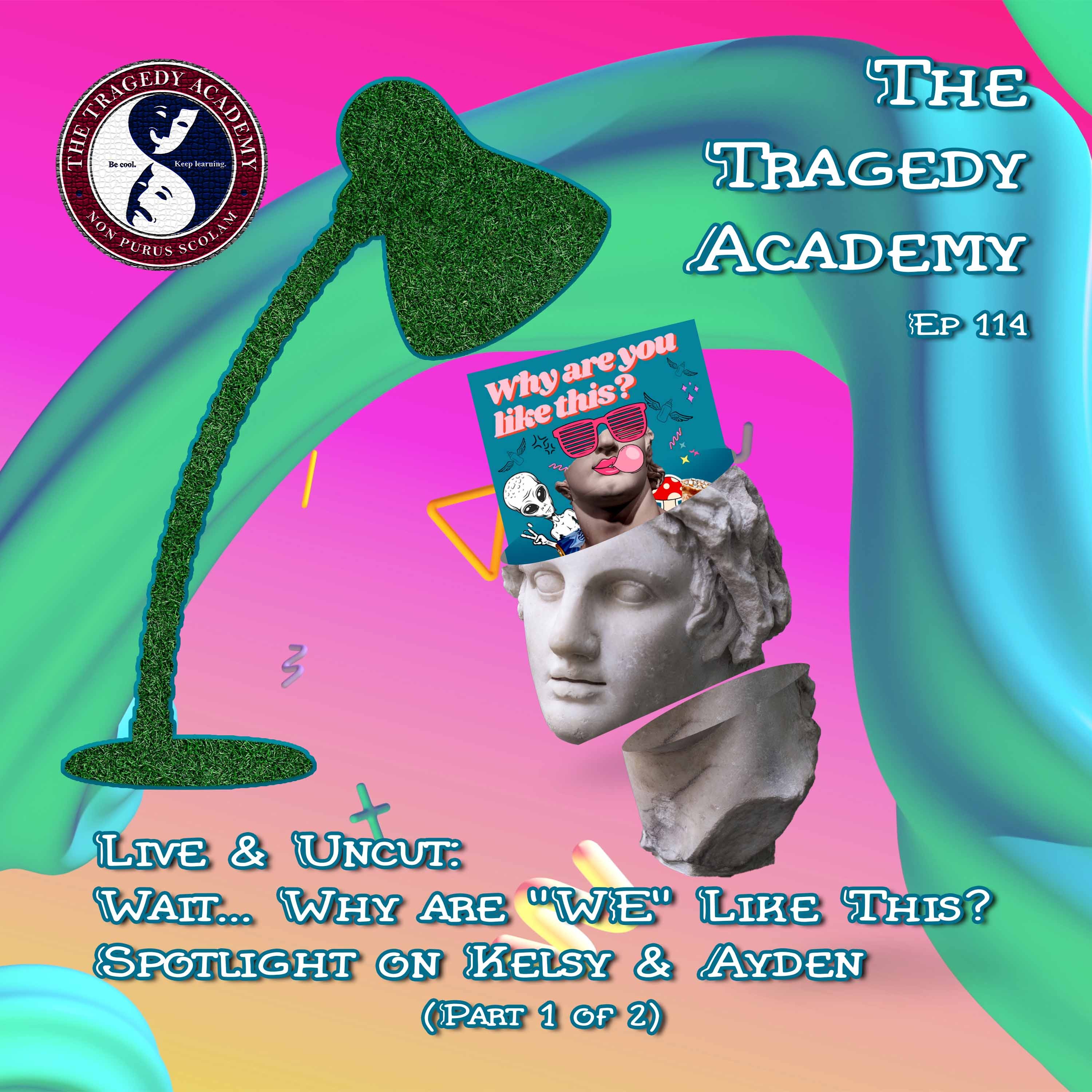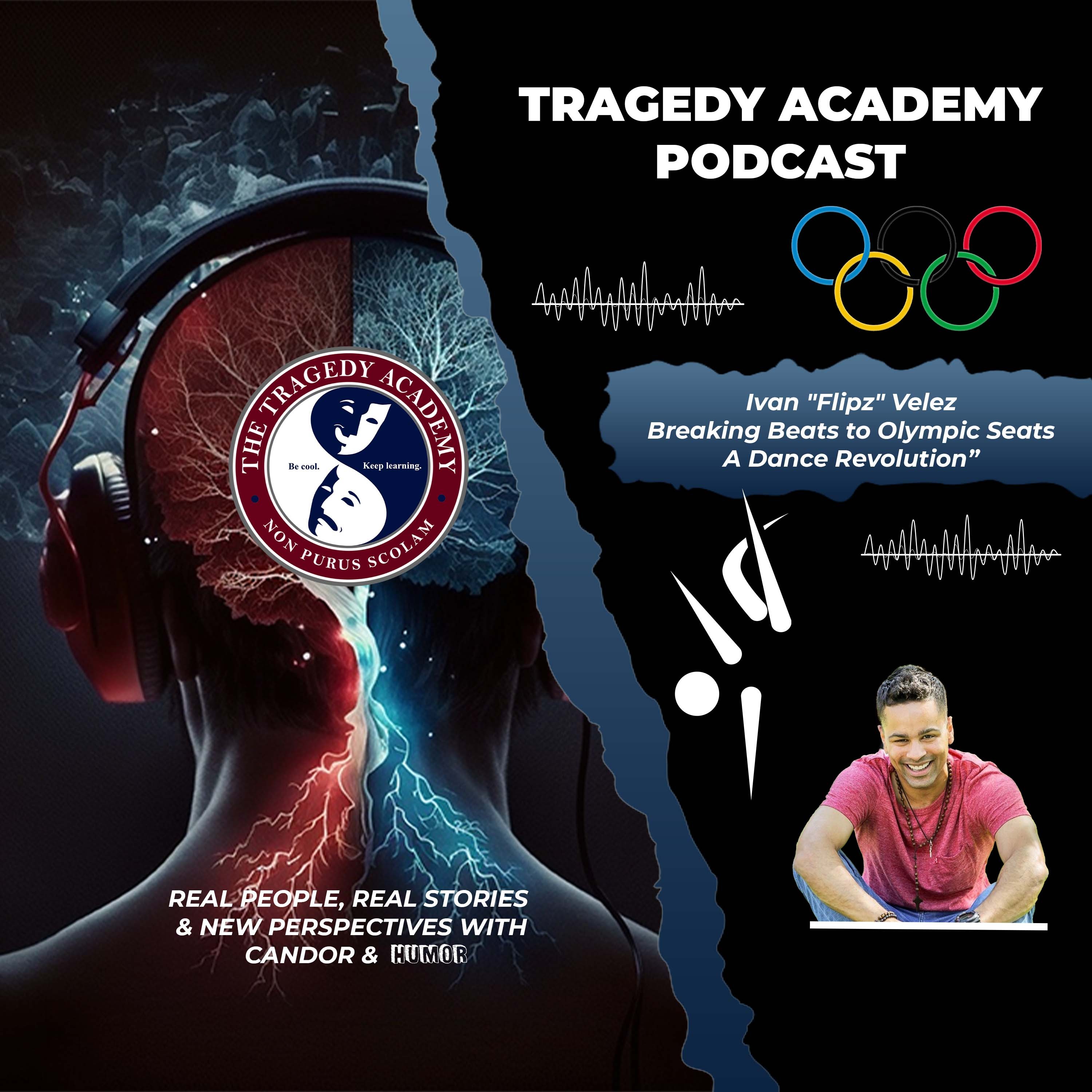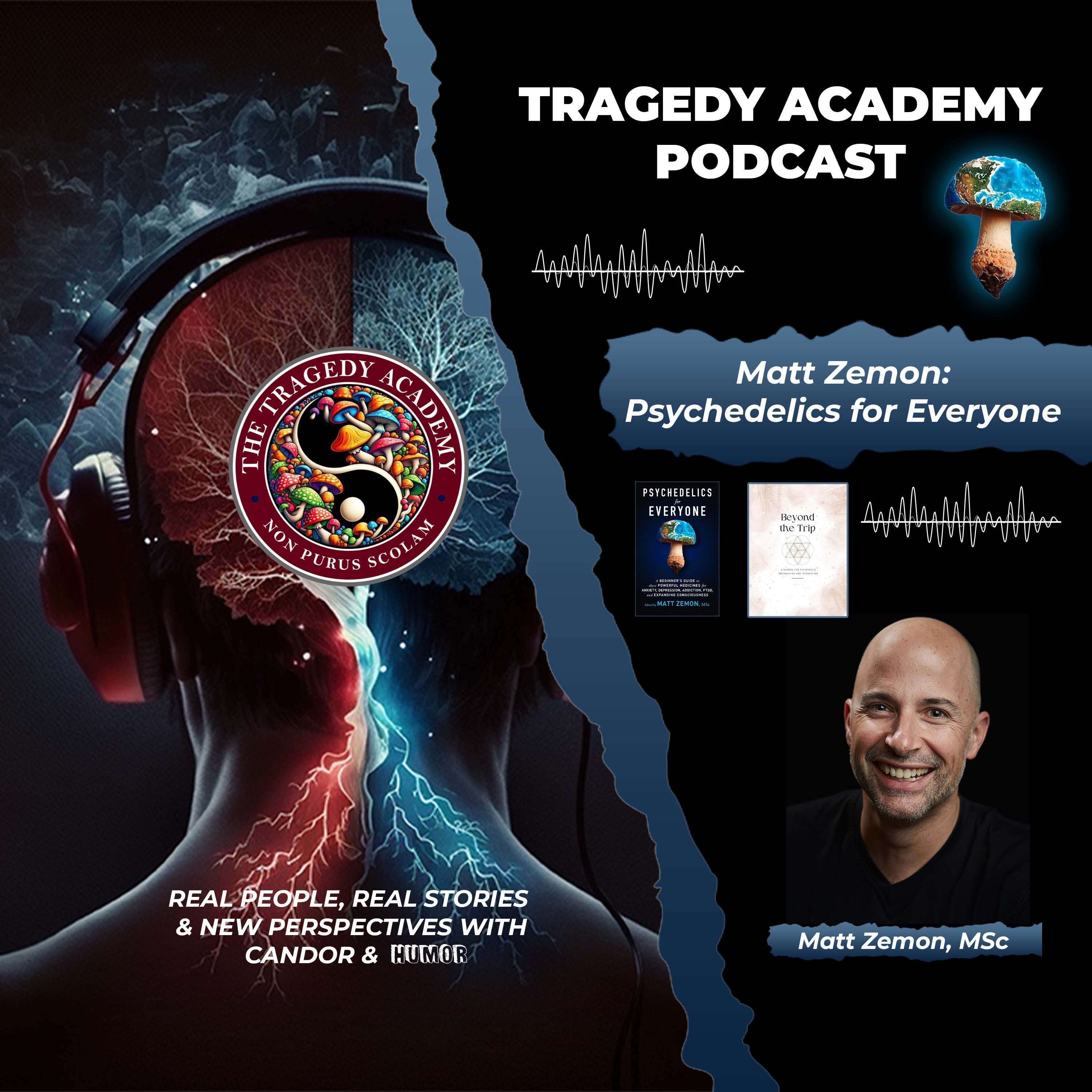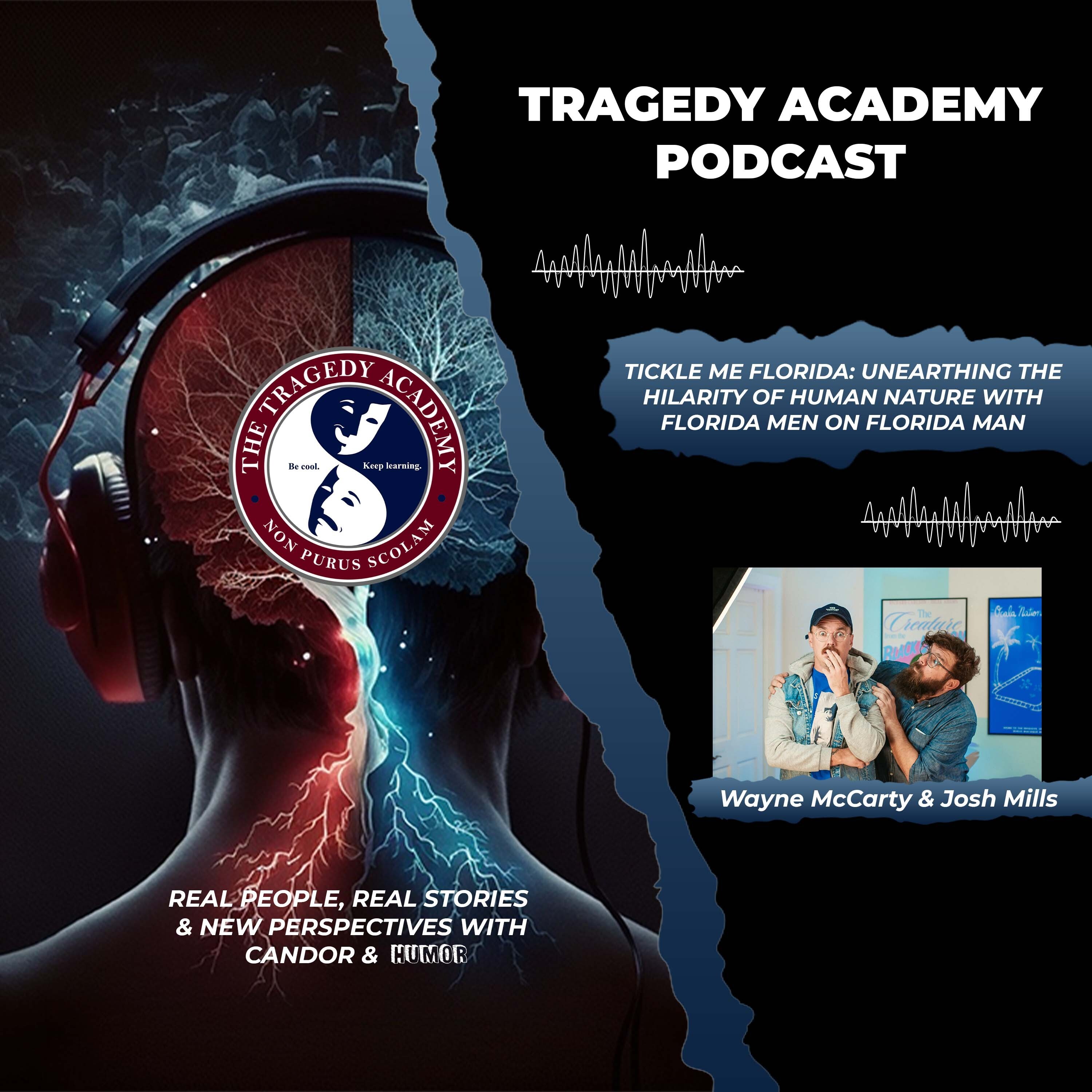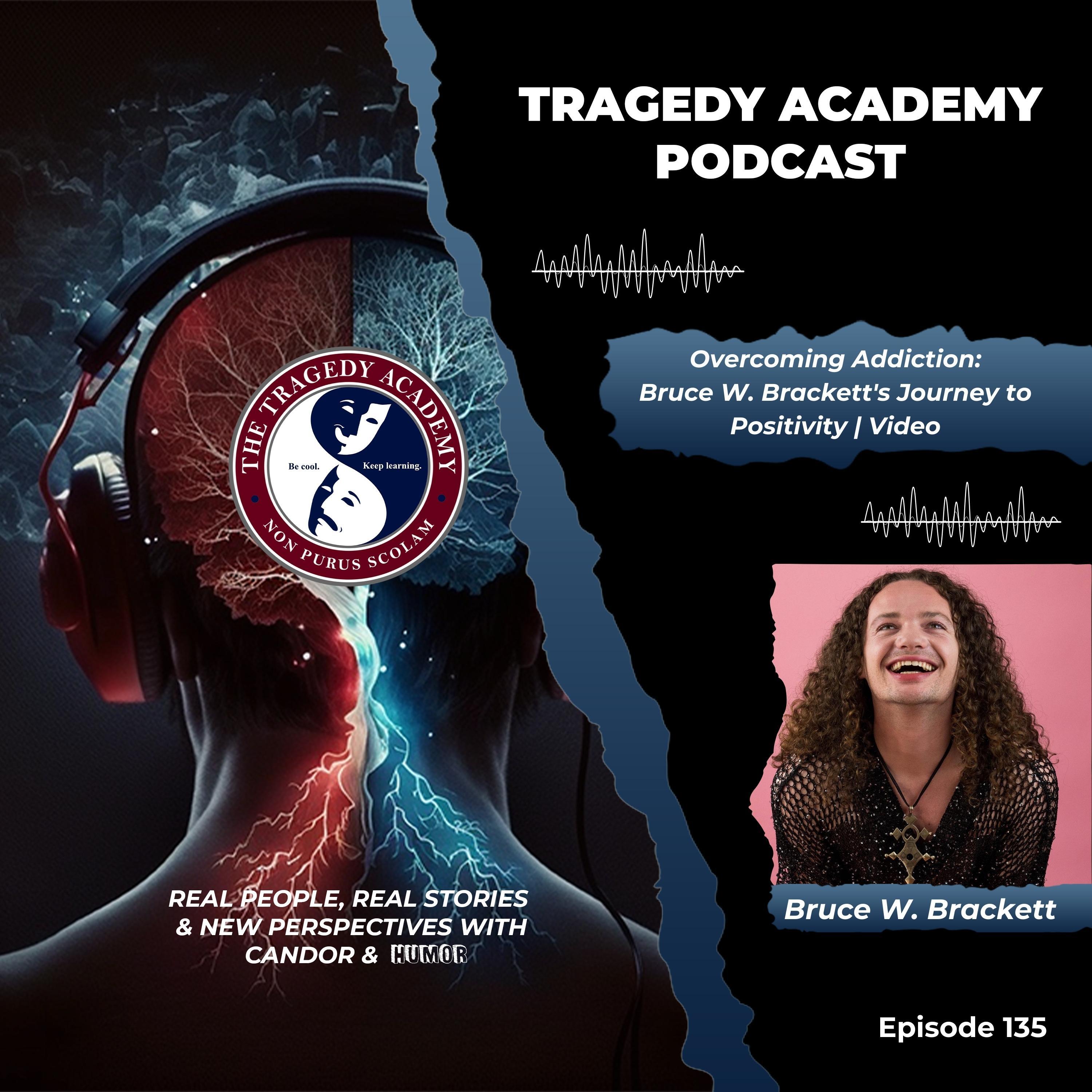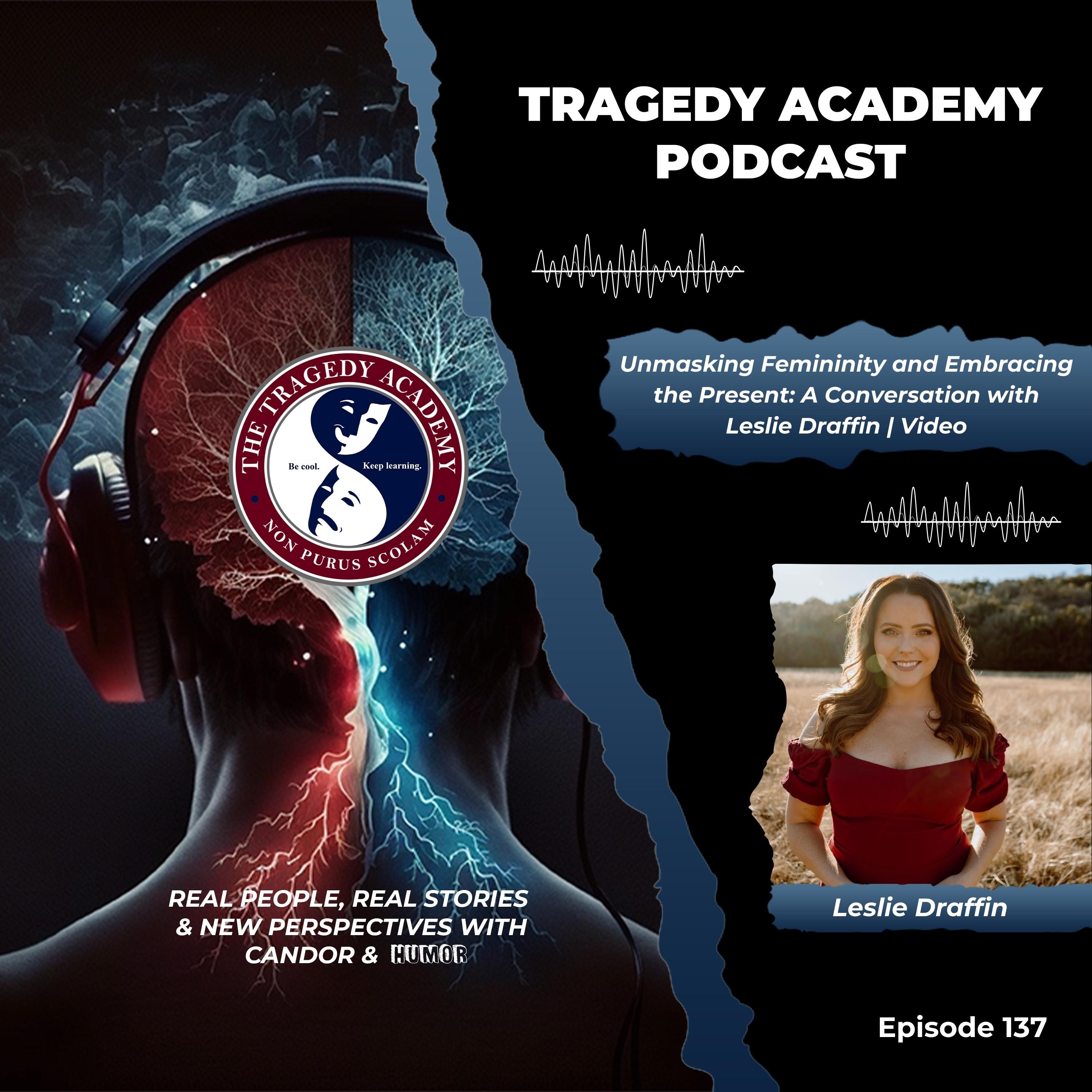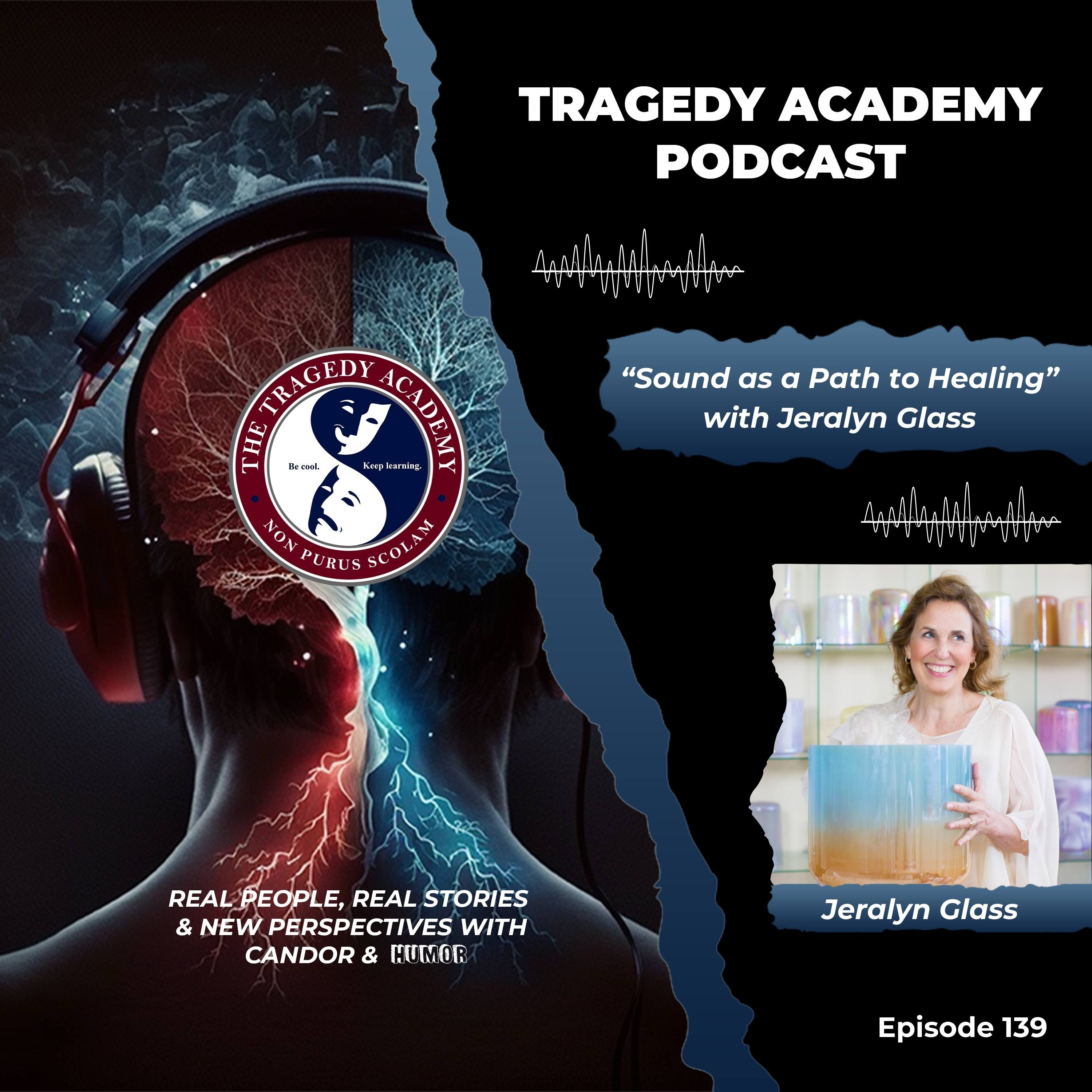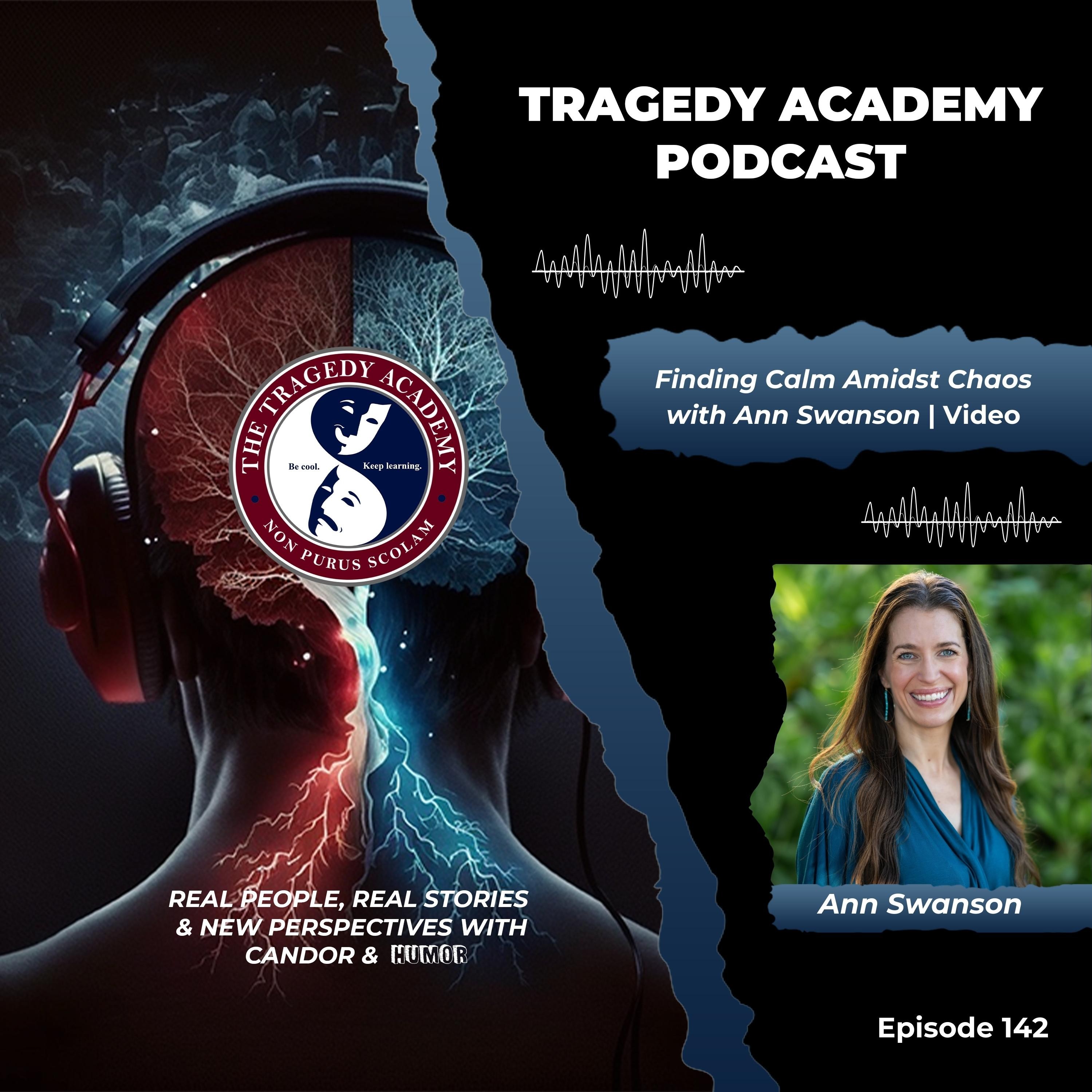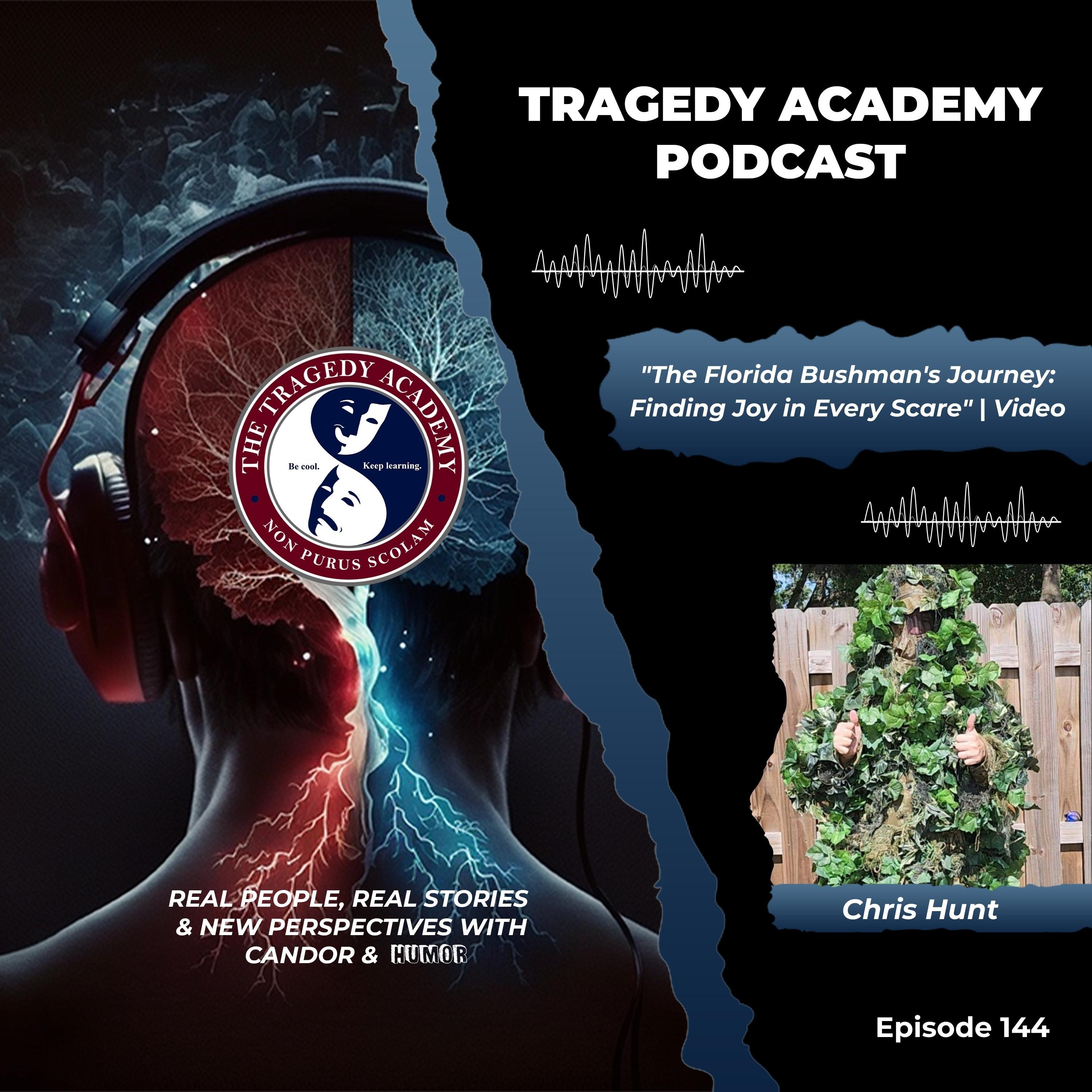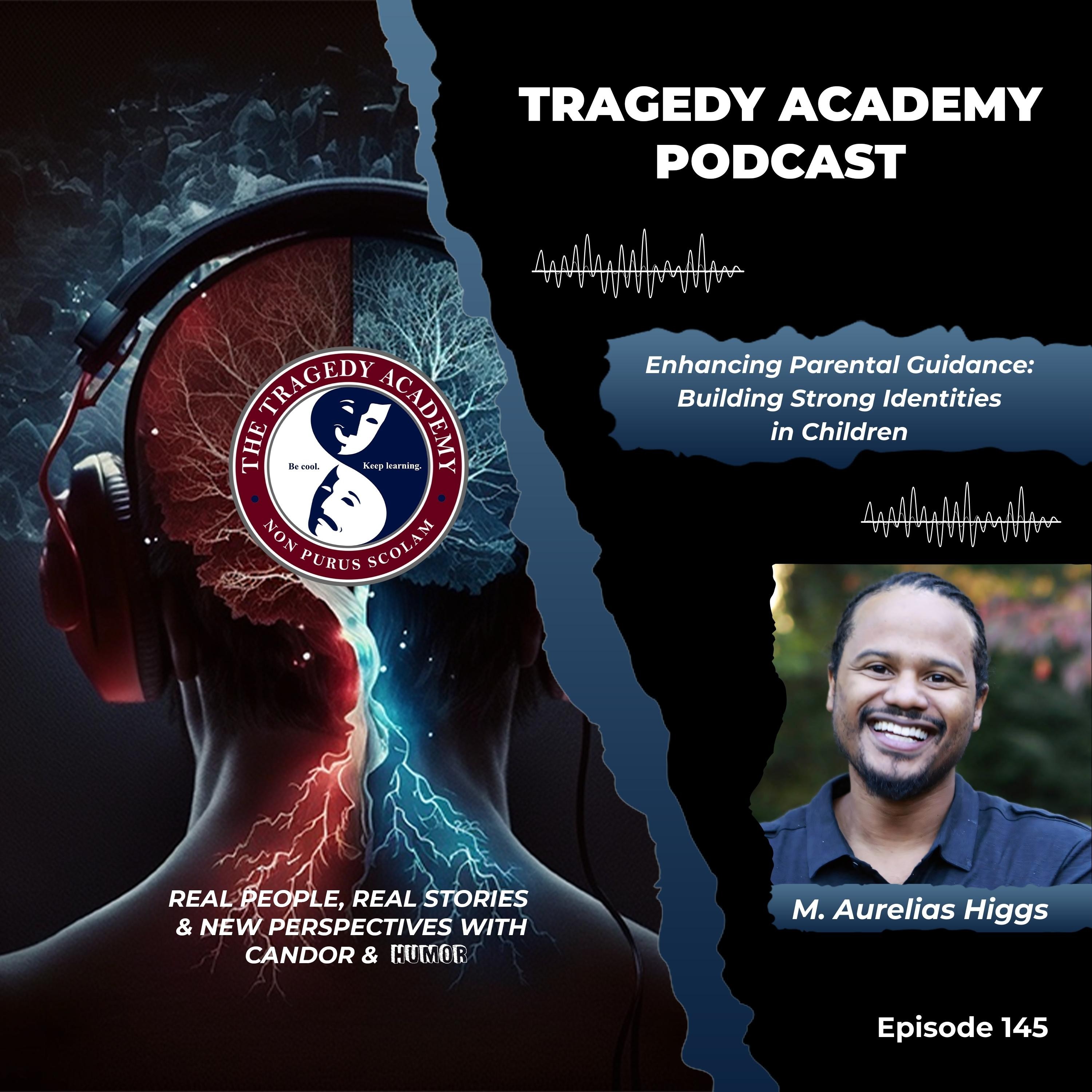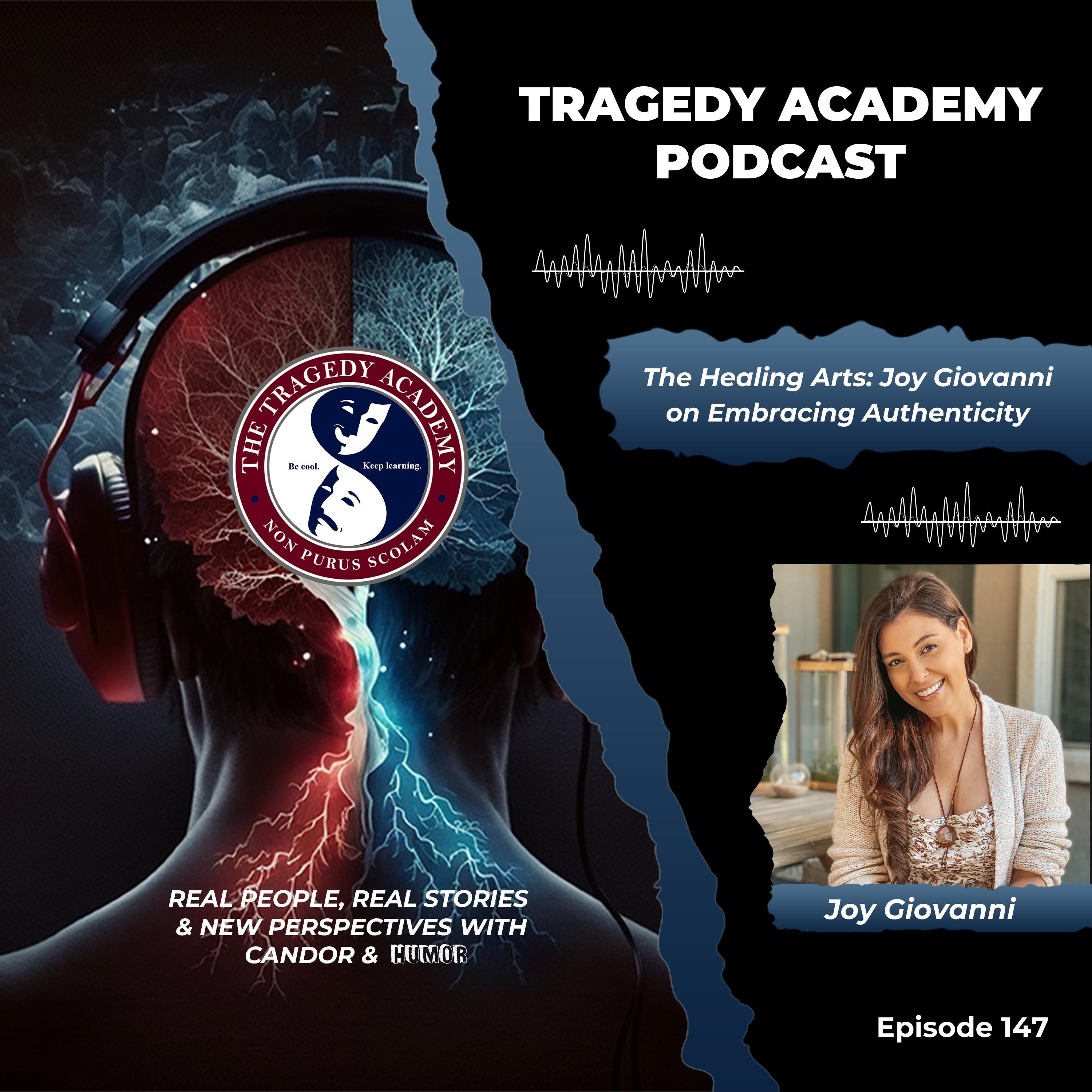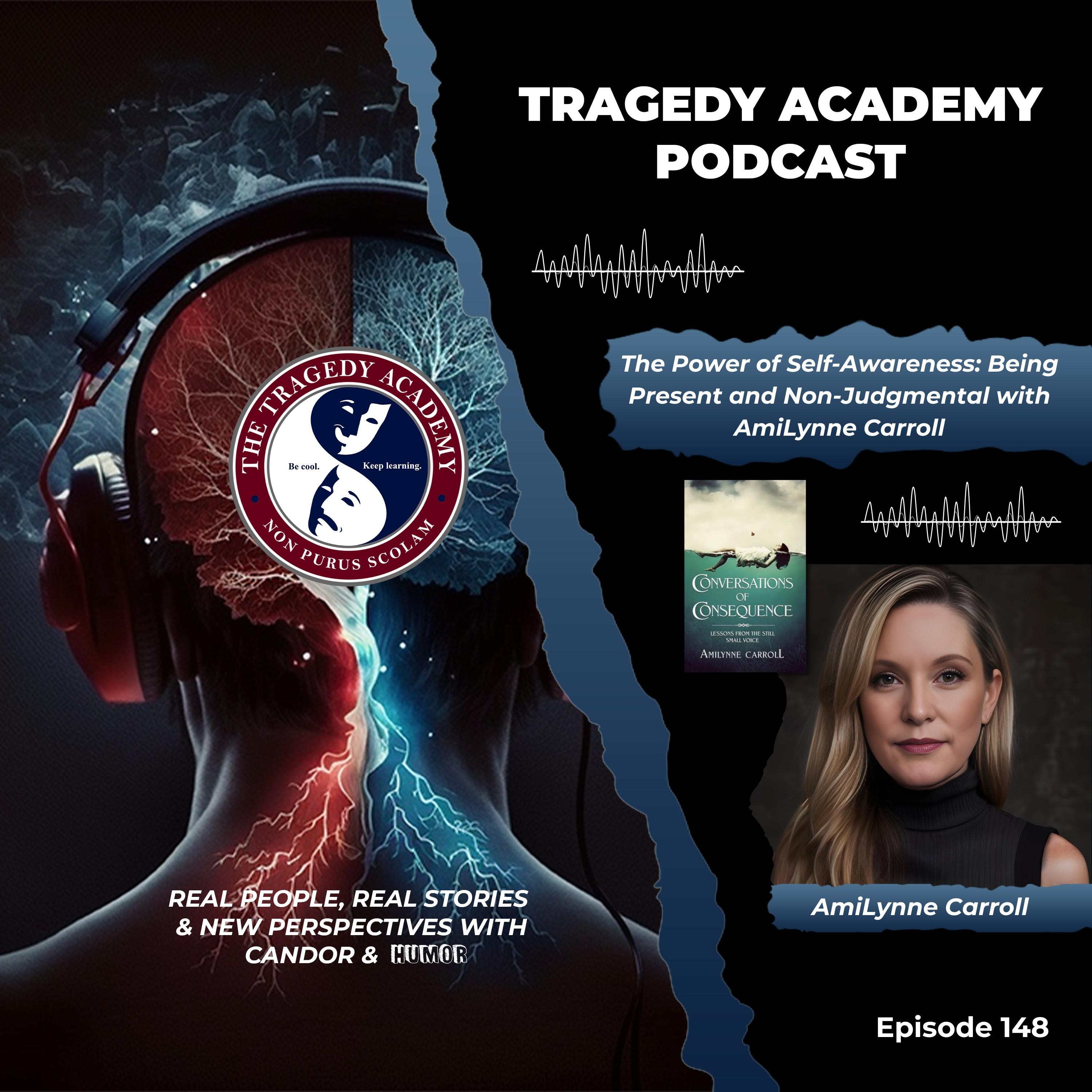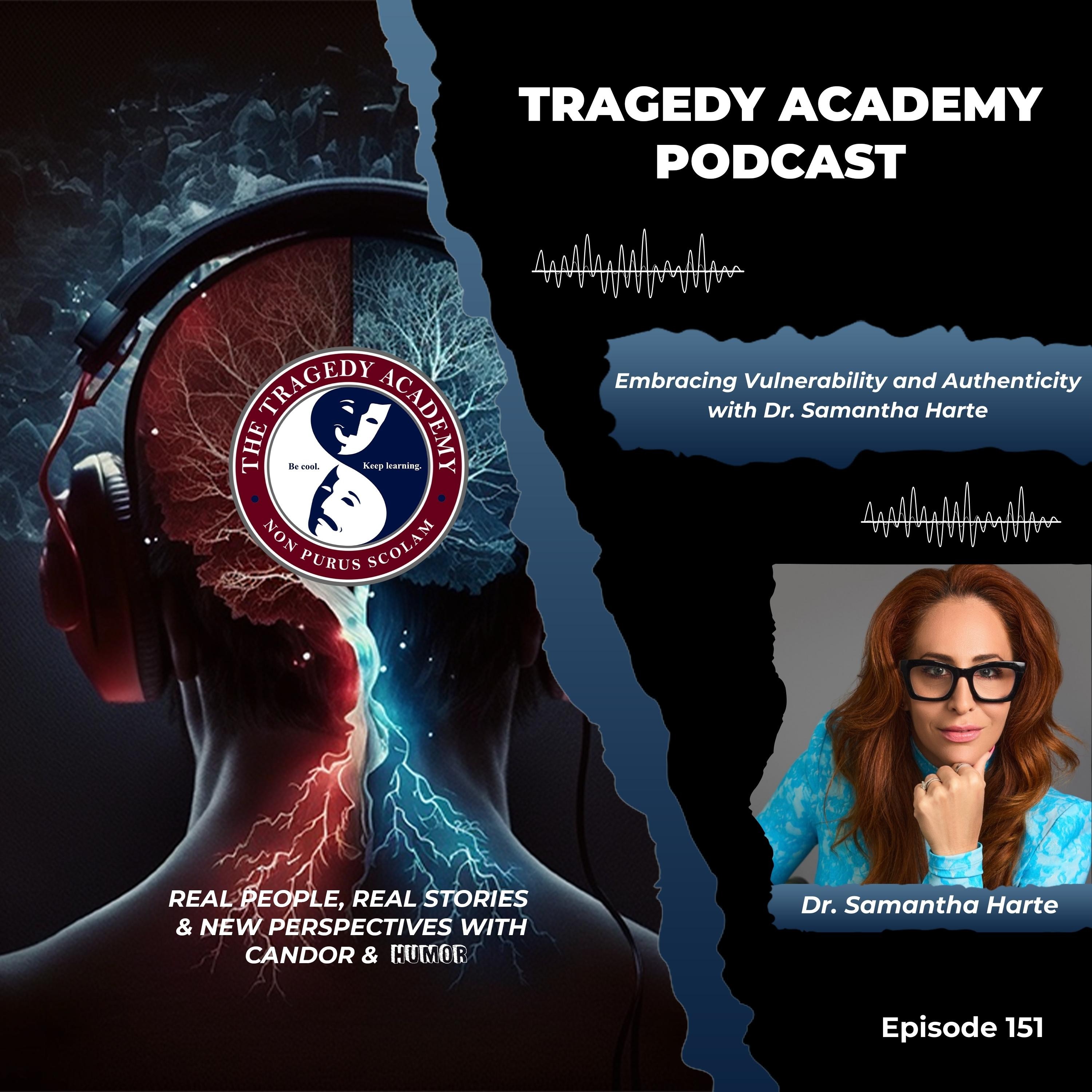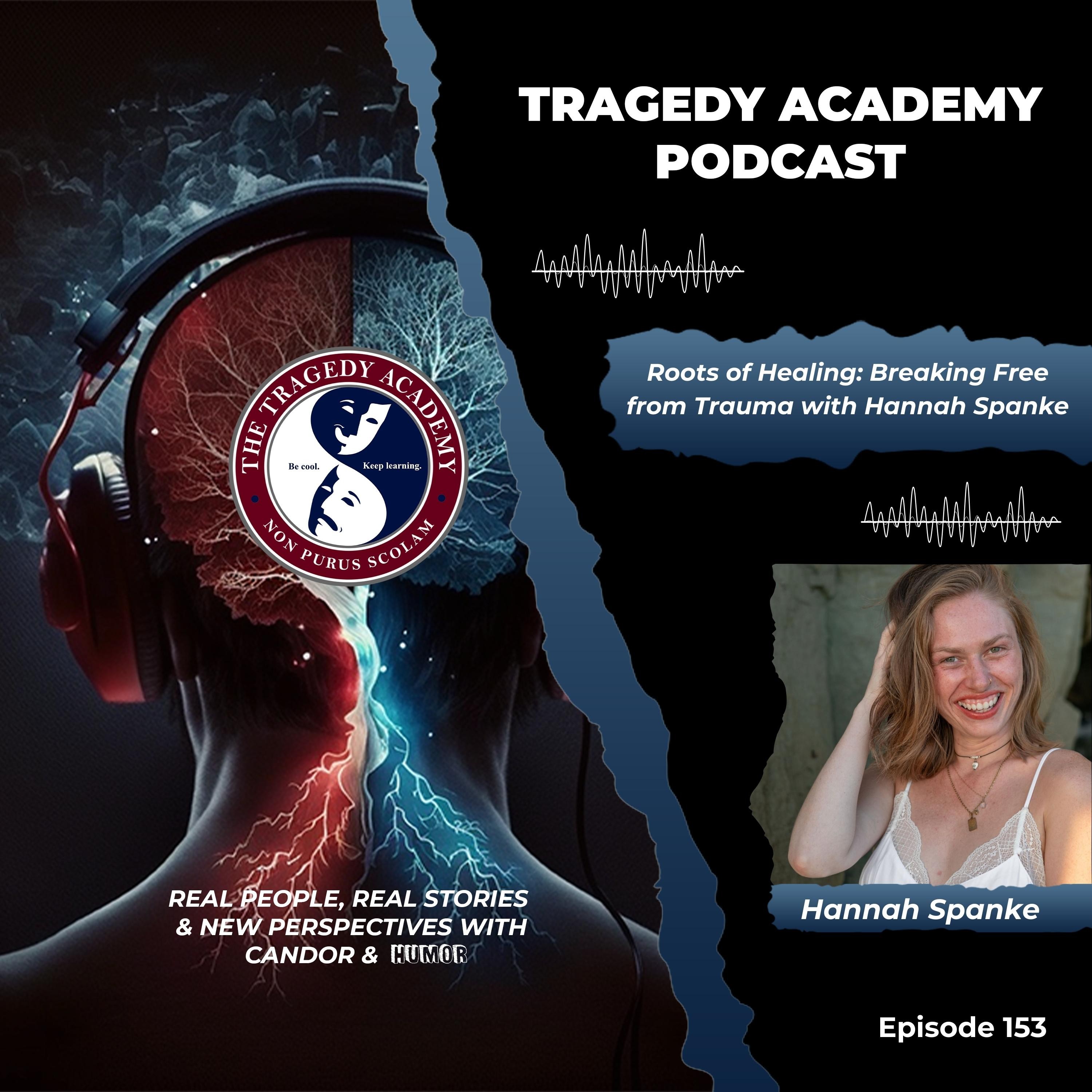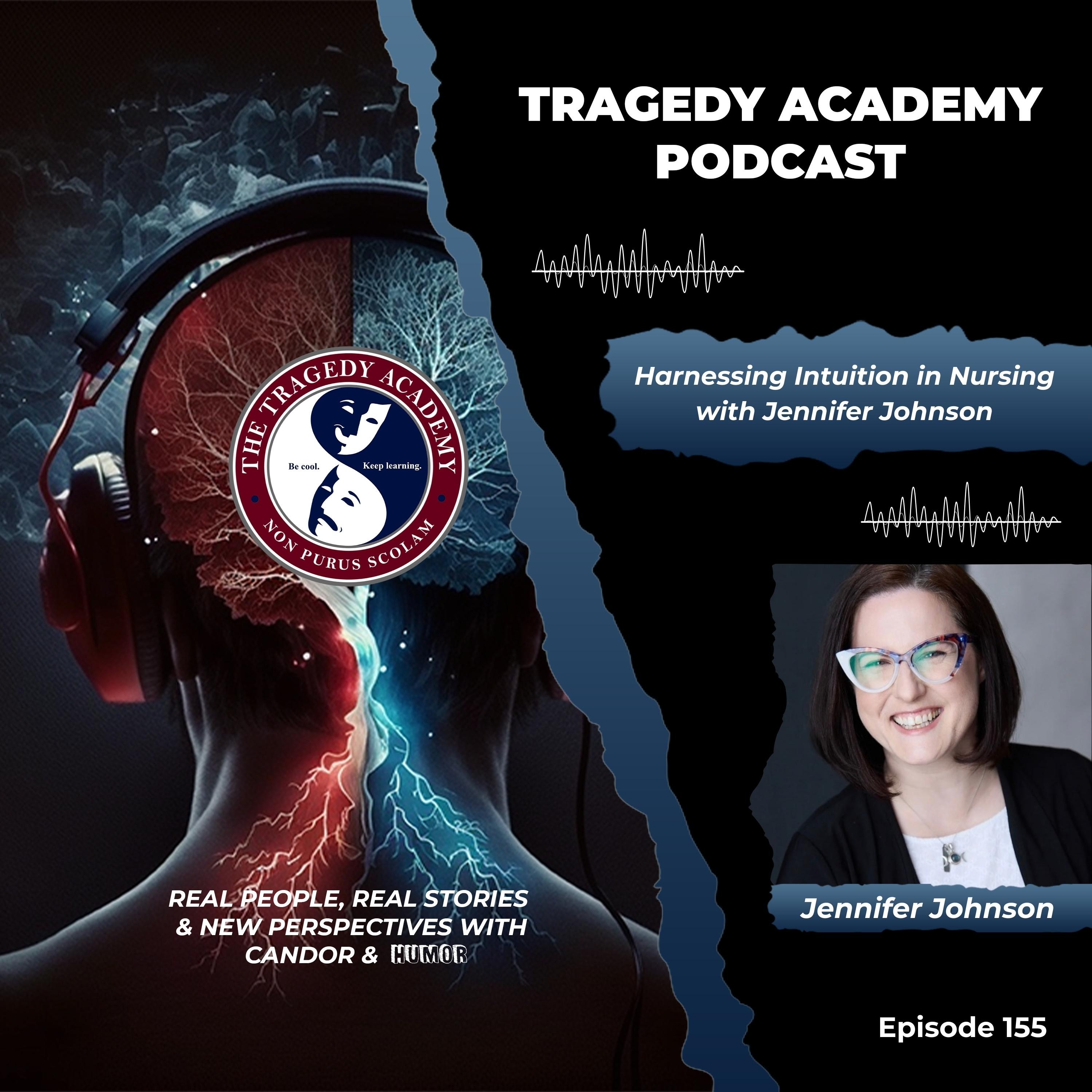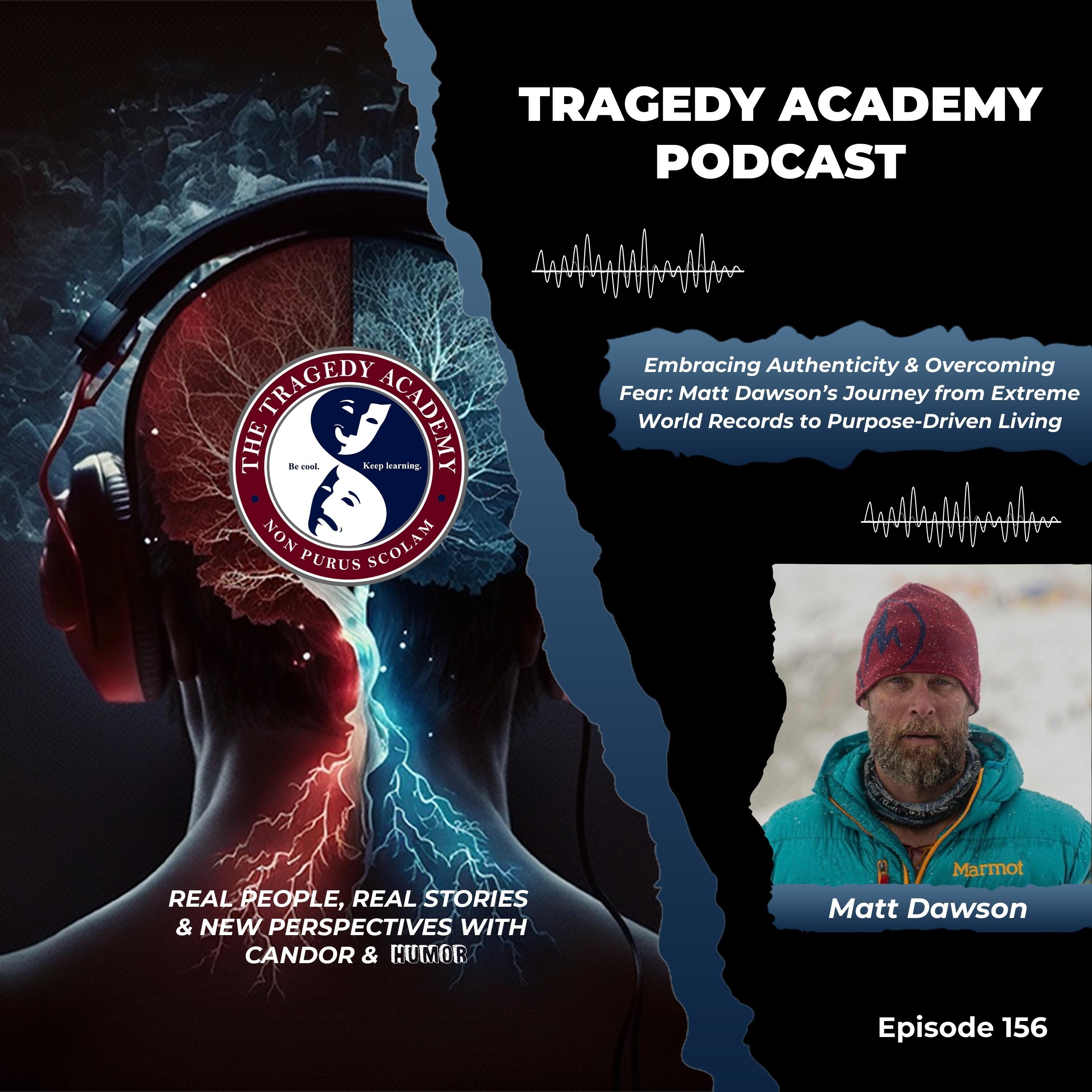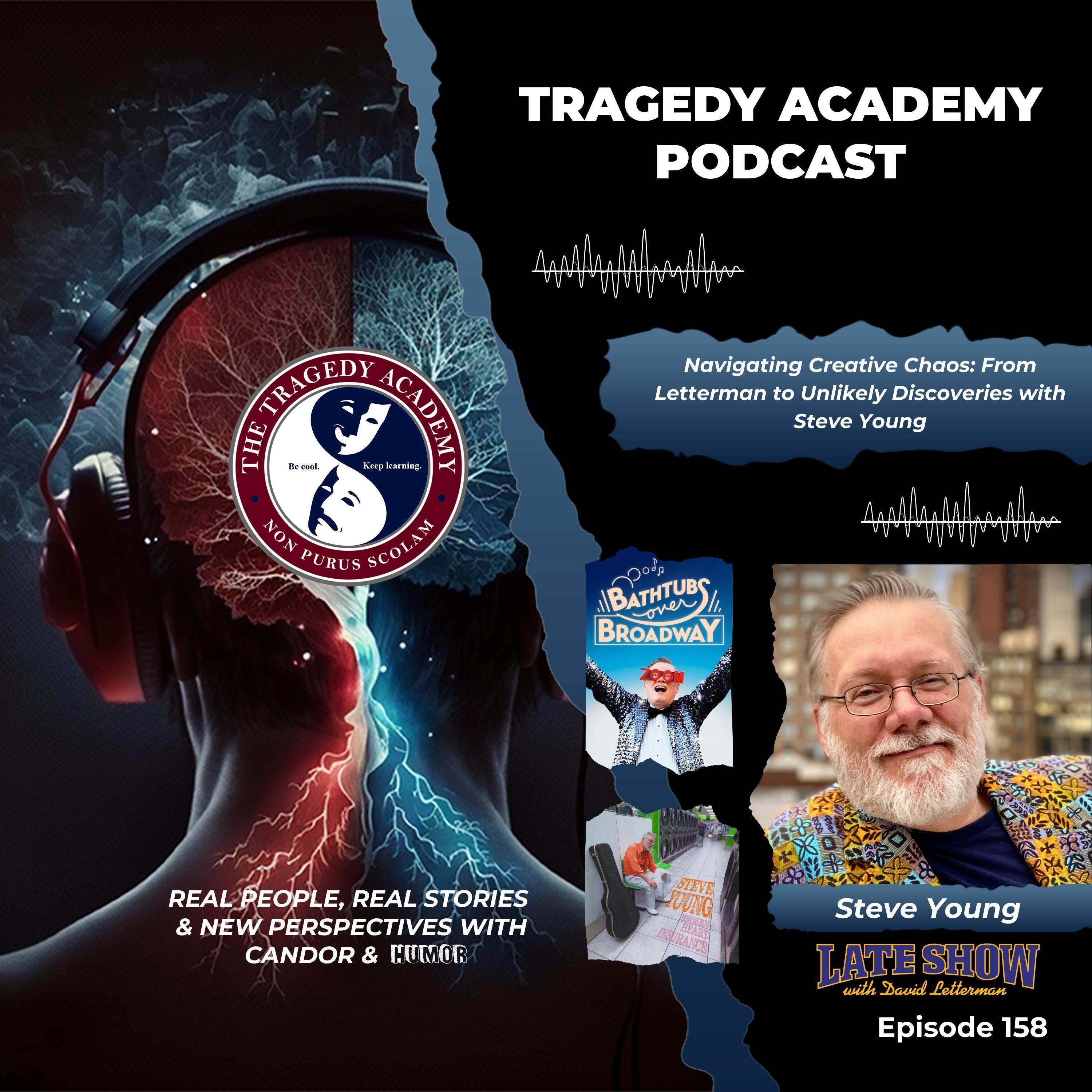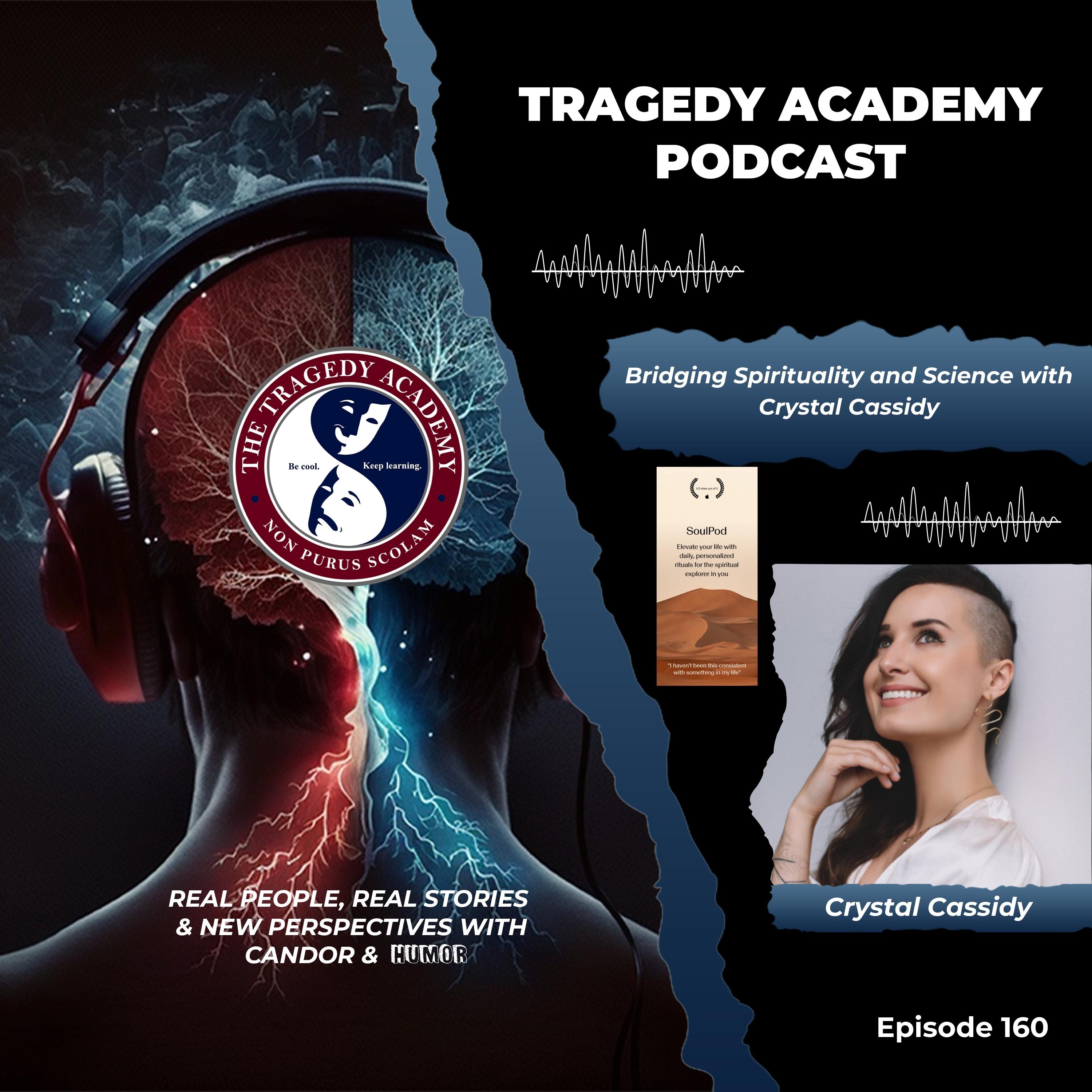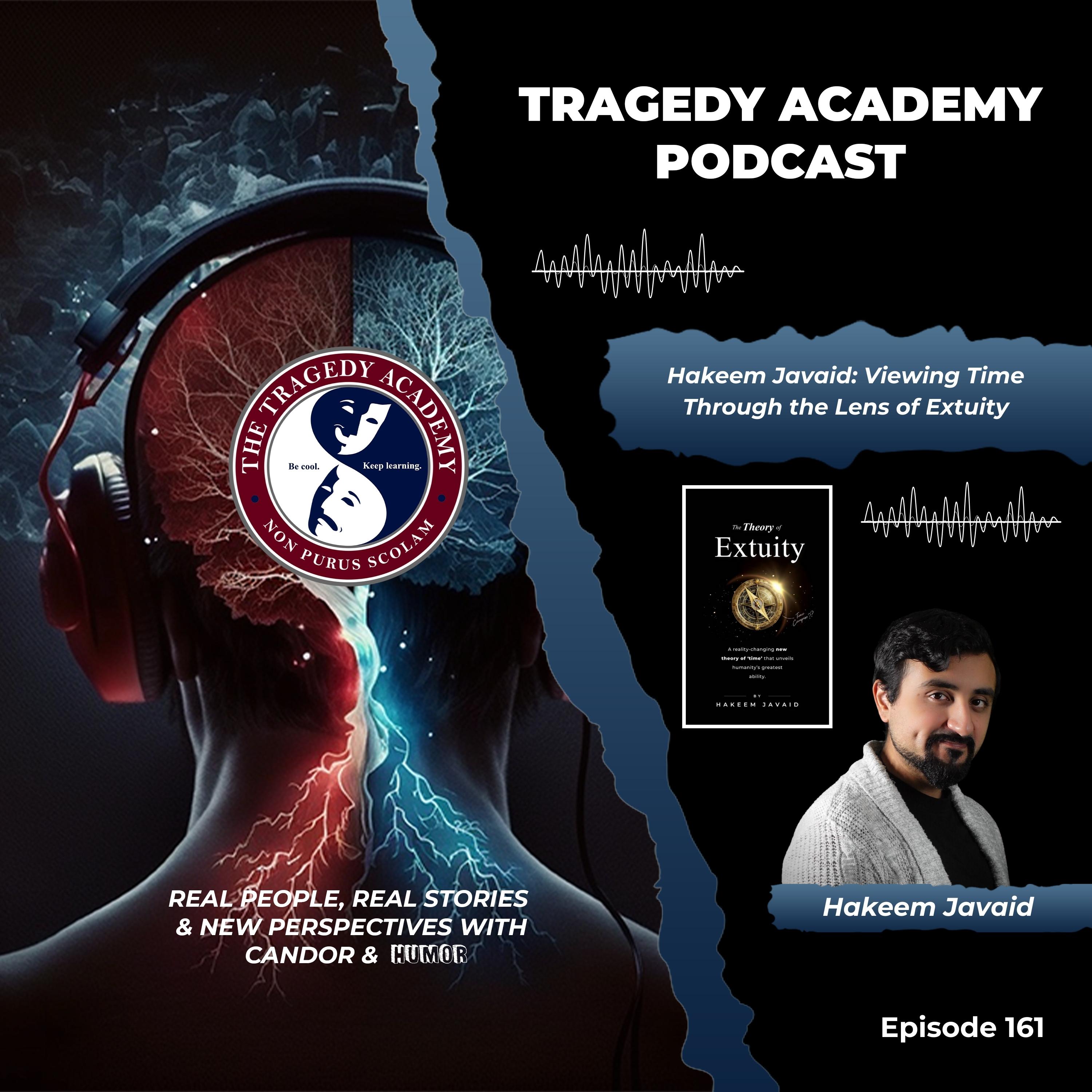Navigating the Immigrant Experience: A Conversation with Krishnni Khanna
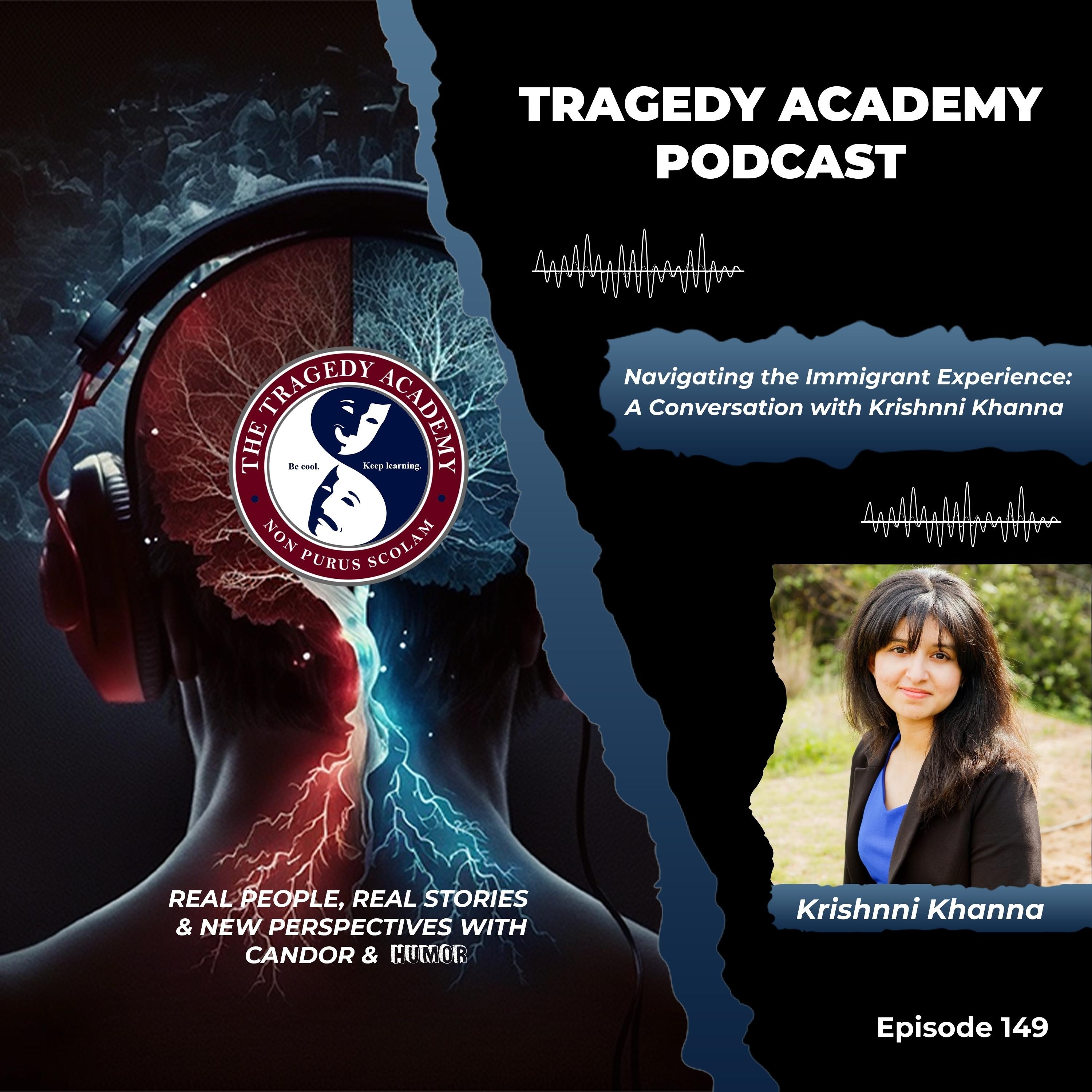
In this episode of The Tragedy Academy Podcast, host Jay Hicks welcomes Krishnni Khanna, a 16-year-old author and TEDx speaker from India. Krishnni shares her journey of immigrating to the United States in 2017, detailing the emotional challenges and cultural adjustments she faced as a young child. The discussion touches on her book 'I Am Not Who You See,' which delves into her personal experiences and offers insights on mental health and wellness for teens and preteens. Krishnni emphasizes the importance of expressing emotions, being authentic, and finding supportive friendships while sharing her future aspirations in psychology and neuroscience.
Key Takeaways
🌍 Immigrating to a new country can be a challenging experience, especially for children who have to leave behind their friends and familiar surroundings.
🗣️ Finding an outlet to express emotions is crucial for mental well-being, whether it's talking to someone or writing them down.
⚠️ Negative words and experiences can have a lasting impact on one's self-perception, but it's important to recognize that they do not define who you are.
🧠 Studying neuroscience or psychology can provide a deeper understanding of the brain and human behavior and help make a positive impact on mental health.
🤝 Building strong and supportive friendships is essential for personal growth and happiness. Embrace your authentic self, and don't seek validation from others.
💪 Find coping mechanisms to navigate challenges, such as living with ADHD.
📚 Books can make a difference and impact people's lives.
🎓 Choose a college that fulfills your academic and social needs.
🔥 Be true to yourself and pursue your passions to affect change in your own way.
Krishnni Khanna
My website: https://www.krishnnikhanna.com/
Book: https://a.co/d/3LFQAVA
Detoximind: https://www.detoximind.com/
https://www.thetragedyacademy.com/guests/krishnni-khanna-fil/
Mental Health Advocate, TEDx Speaker and Author
Krishnni Khanna was born in India in 2007 and moved to the United States with her parents in 2017. She is a high schooler, author, and TEDx speaker who advocates for the inner well-being of youth. In 2022, she created Detoximind (www.detoximind.com), a student-led movement through which Krishnni and her team bring peer-based support to teens and youth grappling with stress, shame, exclusion, and isolation. She currently resides in Austin, Texas, with her parents and their puppy, Yuki.
Krishnni's first novel, "I Am Not Who You See," was launched in June 2024. Many of the protagonist’s experiences in the book are inspired by Krishnni’s hardships as a ten-year-old immigrant in America and how she rebuilt her sense of self in a foreign country.
🚀 Welcome to The Tragedy Academy Podcast 🚀
Immerse yourself in the transformative power of The Tragedy Academy Podcast, an extraordinary platform showcasing stories of resilience and redemption. As we unravel the rich tapestry of human experiences, our episodes meld wisdom with wit, enlightening and entertaining. Hosted with profound empathy, we delve into the indomitable spirit of our guests, providing our audience with opportunities to gain insights, share laughter, and experience growth. Become a part of our community that values genuine connections and collective healing through the strength of shared narratives.
📲 Connect with Us!
Explore more about The Tragedy Academy: https://www.thetragedyacademy.com
🌟 Support and Grow With Us 🌟
🎧 Podcasting Made Easy: Build your stunning podcast website with Podpage:
Podpage: https://bit.ly/3LSCBh5. @podpagehq
📲Take your recording to the next level with
Riverside.FM: https://bit.ly/3ImjNWD @riverside.fm
👕 Get the Gear Loved Jay's t-shirt from the latest episode? Grab yours at Into the AM. @intotheam
Into the AM: https://bit.ly/431MLD5.
📘 Expand Your Mind Dive into our recommended reads at our Bookshop.
Bookshop: https://bit.ly/42pPHcv.
✅ Stay Updated – Subscribe!https://www.youtube.com/channel/UCEUXqlregig6vcrvuVNGlKg and never miss an episode.
📱 Follow Us on Social Media
- Instagram: @thetragedyacademypodcast
- Facebook:@TheTragedyAcademyPodcast
- Twitter: @Tragedy_Academy
- TikTok: @thetragedyacademy
💖 Support The Tragedy Academy. Your support helps us keep bringing meaningful content. Consider donating through PayPal or BuyMeACoffee.
PayPal Donate: https://www.paypal.com/donate?hosted_button_id=YMU9L4TBWX6AG
Buy Me a Coffee: https://www.buymeacoffee.com/tragedyacademy
The Tragedy Academy is a show created to bridge societal divides in a judgment-free zone using candor and humor.
Be cool. Keep Learning.
[00:00:30] Jay: Welcome to the Tragedy Academy, a show created to bridge societal divides in a judgment-free zone using candor and humor. My name is Jay, and today we are joined by Krishna Kanna. She is from India and immigrated in I believe, 2000. 17. Is that correct?
[00:00:47] Krishnni Khanna: Yeah, that's correct.
[00:00:48] Jay: 2017, currently in high school, but she's an author and a TEDx speaker on mental health, and wellness in teens, preteens, and people going through those stages in their development.
[00:00:58] Jay: And I'm super excited to have you on. I did buy your book. I did read your
[00:01:04] Krishnni Khanna: Oh, really?
[00:01:04] Jay: Yeah, and I'm excited to talk about it. That's why I went straight to asking about Veda. I was like, hold on, this is such a great story. And I didn't know if you had a nickname that you were going by at any point, so it's Amazing to have you here.
[00:01:18] Jay: Why don't you tell us a little bit about yourself? All
[00:01:21] Krishnni Khanna: So hi, my name is Krishnni. I'm currently 16 years old and about to be 17 soon. I'm a rising senior in high school. [00:01:30] As mentioned, I was born and raised in India for the first 10 years of my life. I immigrated to the United States when I was 10 years old. I initially lived in California for 2 years, and I've been in Texas since 7th grade.
[00:01:44] Jay: right That's a very abridged version of what is a complicated story for a child to go through at the age of 10 years old you wrote pretty extensively in your book about what it's like to immigrate into the United States as a young child. do you want to tell us what that feels like knowing that you're going to be leaving where you have spent your entire life, where your roots are and your culture, and what it's like to come to the U S my in-laws are both immigrants are from Columbia and from Italy.
[00:02:24] Jay: and it's very near and dear to our heart. immigration and people being able to be accepted all over the [00:02:30] world. and I think that there's the fact that we are a melting pot and a lot of people are coming here for opportunity. There's gonna be a lot of people that will, this will resonate with, right?
[00:02:40] Jay: So please tell us what that was like.
[00:02:42] Krishnni Khanna: I moved around a bit in India itself. I moved schools a couple of times, but I pretty much lived in the same location. So I was around the same friends. My family was very close by, so we'd visit them every couple of months. And I was just very used to being around the same people for so long.
[00:02:59] Krishnni Khanna: and when my dad, moved to the U S because my dad received a job promotion, it was heartbreaking, to say the least, because I used to be very friend and family-oriented as a kid. And since I was, I grew up with the same people, like I was so comfortable there and we didn't know anything about, the United States.
[00:03:21] Krishnni Khanna: Like we didn't know anybody. We didn't know what the culture was going to be like. the only way I knew anything about America was just by watching YouTube videos or, [00:03:30] watching Disneymovies.
[00:03:30] Jay: Yeah.
[00:03:33] Krishnni Khanna: So it was hard. I remember trying to beg my dad not to take the job promotion so we could stay here.
[00:03:43] Krishnni Khanna: but the other reason was for a better education since the American college system is good and, that was one of the other reasons why we moved, but overall it was very difficult I remember spending almost every day with my friends. I had to discontinue school during the last few months of Being in India since there was no point since I was going to start fifth grade it was a really hard pill to swallow, But at the same time, I was very excited to move to America.
[00:04:15] Krishnni Khanna: because I used to And the videos I used to see on YouTube, Target really fascinated me because I used to watch Since I was like six or seven like I used to watch like those I don't know if you know like the toy review videos like people [00:04:30] review toys or they played with toys
[00:04:32] Jay: By the way, I'm a child, so just feel free acting like a kid because I'm a kid. We're good.
[00:04:36] Krishnni Khanna: okay. So I used to really like those videos and I used to tell my dad to bring me some toys whenever he would travel to the U.S. so that was one thing I was looking forward to, as a kid, I used to be very optimistic So even though it was very difficult to leave my friends and family and I spent as much time as I could with them, I was excited Because,
[00:04:58] Jay: The allure of new toys and all the things you've seen on TV.
[00:05:04] Krishnni Khanna: Yeah, and my dad promised that I could get a pink room, and pink used to be my favorite color. Just these minor things made me feel better about moving.
[00:05:14] Jay: They're offsets, mental offsets, we do justifications in our mind, little micro-movements to give ourselves comfortability and moments that we feel uncomfortable with change. So it's completely understandable that you did replace those [00:05:30] things, mentally, for the time being; I'm sure you could also say that During that time or once you had made it there, the toys would never feel the void fill the void of friendships culture and anywhere near what it was like where you came
[00:05:43] Krishnni Khanna: Yeah. I actually still have a lot of the toys that I bought when I first came here, because I used to go to Target almost every day when I first moved here. And they're still on my shelf.
[00:05:54] Jay: I love that, though. They may have meaning to you because they brought you comfort when you were in a new location. I'm sure that's why I'm glad you had parents who were able to recognize that you needed assistance through that change and gave you really good guidance. So, your book, I believe, is titled.
[00:06:16] Jay: I am not who
[00:06:18] Krishnni Khanna: yeah.
[00:06:19] Jay: I did read it, and I have to tell you that I believe it is a very good book for people [00:06:30] your age to read to get an understanding of the human dynamic and reality and how we process things around us. I would also like to say that it is important for adults to read it because it is extremely advanced in your perception of reality and how you construct what your self-worth is, right?
[00:06:53] Jay: And I say that because when I read through it, It might as well have been hitting notes in my symphony. You could have played different notes throughout the chords of my life. And they rang exactly the same. When you moved, I could feel the pain of when I've moved. When somebody said, shut up. I know what that feels like because I was a loudmouth and I know that everybody has their own version of these things.
[00:07:20] Jay: So know that you really are affecting change from the beginning right here and now. And I think that people should read your book and take your [00:07:30] wisdom to heart because it'll give them a chance to see what kind of tools they have in their toolbox. Interactions that they had in their childhood that they managed—you took all of those negative interactions and turned them into tools, right?
[00:07:44] Jay: At an early age, they allowed you to see the fallacies and what you're constructing yourself out of. And now you can help others with it. I give you lots of accolades for that, and I appreciate you for doing it.
[00:07:58] Krishnni Khanna: Thank
[00:07:59] Jay: If you could talk to Veda from the outside, if you were looking at Veda from the outside in, and you could have been that friend from inside of her, what would you tell her to help her get through all of those changes in schools, relationship dynamics, friendships, school hierarchies, and all the garbage that goes with them?
[00:08:25] Krishnni Khanna: I mean from my own experience, since Veda’s story is derived from mine [00:08:30] I mean it was very difficult like I came in to the United States I was nervous, but I was more optimistic and to move and go to my first elementary school or school in America,
[00:08:46] Jay: Mm
[00:08:47] Krishnni Khanna: absolutely crushed,
[00:08:49] Jay: Yeah.
[00:08:53] Krishnni Khanna: only way, the only thing I would suggest to Veda was, like, I think there was, a part in the book where she implied that she stopped telling her parents about what she was going through since she was like, I'm growing older now, and I can't depend on them all the time, there was no outlet for Veda to, I guess get those emotions out or to be even able to process them. I think one thing I would suggest or advise to her would be to let it out. [00:09:30] I know there's a lot of people who don't feel comfortable talking about these types of things. some people are uncomfortable accepting their emotions, and I'm also like that.
[00:09:41] Krishnni Khanna: When I started writing the book, I was really hesitant. I was like, I'm not sure if I want my experiences to be out there, but then writing the book was also my way of understanding my experiences, and using Veda was my way of understanding them as well. So I think letting it out, whether it's talking to somebody or writing, is important.
[00:10:05] Krishnni Khanna: your emotions out can help you understand them, but also, it just feels good to not, keep it bottled up inside.
[00:10:14] Jay: You're not wrong there. There has to be an outlet. Otherwise, it's like a tea kettle. If you allow everything to build up inside, it's going to come out eventually, but it's not going to be how you want it to write or not in a way that's going to be [00:10:30] constructive. So that's an extremely intelligent way to approach that scenario and make sure that you have a clear mind and that you understand what's going on.
[00:10:41] Jay: So I like that you're giving the advice of finding an outlet, right? And I love that your generation is one that advocates for mental health, right? And recognizes that there is comfort in camaraderie. I think that there's strength and vulnerability, and it also allows people to Step off of the curb that they think is a cliff, right?
[00:11:10] Jay: The moment that we tell each other how dark it seems in our mind. That's the moment we realized that everybody was in that situation because we shared. I would like to look at if you have ever watched old movie sets, like when they portray them, it [00:11:30] usually looks like a fake building. And there's just sticks behind it, right?
[00:11:33] Jay: There's like a door, and you drive through, right? That, to me, is what America looks like. It's one way in front, but nothing behind it. So everybody puts up a false front of strength, or that they're in a good place, or that things are not bothering them, or that their familial structure is not strained, or whatever it might be.
[00:12:02] Jay: They walk out the front door, and they say, Hey, Bob. Hey, Sarah, right? And then they move on with their day. But behind that door is what we're discussing, right? And giving children a voice early on is extremely important. You're wise beyond your years, right? And from the child who was told to shut up. And was shunned for being [00:12:30] overactive and hyper and wanting to interact with people and just enjoy the human experience.
[00:12:38] Jay: That was me. And I can tell you, it's not okay to hold that stuff in until you're older and think that you're not. worthy of being your true self. When anybody stops your inauthenticity, it's just a question about their own and whether or not they feel that they could pull it off. They're mad because they're not doing what you're doing.
[00:13:01] Jay: You're comfortable in yourself. And I stopped talking for a long time. I stopped being who I am. And you've jumped that hurdle very early, right? And knowing who you are, at least at this point in time, right? So if you had spoken to yourself, you said something during your TED talk about The things that [00:13:30] people said being tattooed into your mind.
[00:13:34] Jay: Do you remember that?
[00:13:35] Krishnni Khanna: Yeah, I do. It was in the, I think,
[00:13:37] Jay: It's a beautiful metaphor and analogy. I love it. Can you explain what you mean about taking the words of other people and tattooing them into your brain? How is that done?
[00:13:48] Krishnni Khanna: From my experience, this was mainly in 6th and 5th grade. I didn't really have any friends, so my classmates, I would just notice their demeanor and attitude towards me, like I was smaller than them or inferior. And I would just hear things around here, them mocking how I'm talking because I didn't, at the time, have the American accent.
[00:14:16] Krishnni Khanna: I had an Indian accent. I was the only immigrant in the class. Then, in 6th grade, I made friends, but they ended up being really not friends. They were just, [00:14:30] toxic is the best way to put it. and, In turn, like that was mainly where the tattooing through their words in the brain part comes in because, like, almost every time I would open my mouth about something or end up going on a ramble, or, being excited about something almost every day I heard, just shut up or, be quiet or why are you talking so much?
[00:14:55] Krishnni Khanna: and, I used to keep telling myself that, oh, these are my friends. They're not trying to hurt me. They're just being honest. maybe I was talking too much, But I, didn't understand why; even if I kept telling myself that, it slowly started to affect me, their words, and I realized that because I was hearing it every day, and I was so used to hearing it maybe even a couple times a day, That it, those words have become a part of me for a while.
[00:15:26] Krishnni Khanna: even now, sometimes when I'm talking too much or I'm like, telling my [00:15:30] friends about something that happened or, just something in general. I keep hearing like, oh, you're, I keep, in my head, I'm just thinking oh, I might be talking too much and then I end up apologizing for it.
[00:15:41] Krishnni Khanna: even after doing a TEDx writing a book, it's still
[00:15:44] Jay: It's there. I still do it every day. There are moments when I wonder if I am being overbearing. Am I talking too much? Is this what they were talking about? Maybe they were right. Maybe the people around me right now are just being nice and accepting that I'm doing this, even though I really am not that loud. I really, I am that loud, and I do talk that much, and it's a circle.
[00:16:07] Jay: It's a cycle. It's a wheel, right? I think that. at the juncture that you're at, some people will create what I call a mask, right? And that mask becomes a new character, right? It's the character that now does not speak out the character that minds their [00:16:30] dialogue and their interactions with people and starts to create this new persona, right?
[00:16:36] Jay: And then they'll take that new persona into the next one and create another one for all these situations to feel accepted, right? However, acceptance only needs to come from within. Once you love yourself, other people will start to love you, right?
[00:16:58] Jay: And that's the opposite of that tattoo. It's almost like getting a chance to go back and do some laser, not removal, but I think make it transparent. That it's there. It's translucent. You can see through it, but you respect the fact that it happened because it made you a better person in the long run, right?
[00:17:18] Jay: So how does one find a way to recognize that their brain is being tattooed? Because that requires mindfulness, right? And self awareness. [00:17:30] Can you explain how that happens?
[00:17:31] Krishnni Khanna: for me, it took, what, I think, three years after moving, I was only able to grasp what happened after I moved, because I was away from the situation itself, so I could, see it from the outside in a way. But, like, when I was in the situation itself, I wasn't able to process, why am I feeling like this, what's happening, maybe my classmates and quote unquote friends are right.
[00:17:58] Krishnni Khanna: one thing is to look at the big picture, either by moving away from the situation and analyzing it, but I know that a lot of people don't have that,
[00:18:08] Jay: The observer role is hard to take because you become very invested in your narrative.
[00:18:12] Krishnni Khanna: yeah. That, and also, not everyone has. The opportunity or some people just aren't fortunate enough to step away from their situations. Maybe.
[00:18:24] Jay: I find that a lot of times that's a willing, you're a willing participant in the ignorance in that [00:18:30] situation. It's just out of self-preservation. The ostrich keeps its head in the sand, maybe because the sun; they don't want to be seen by other people or they just want to look the same.
[00:18:39] Krishnni Khanna: yeah, because I was fortunate enough to be able to move and see what happened, but I think if I stayed there, I think I would have still been putting up with them for probably a long time. It was only when I moved away, and I told my parents about my experiences, maybe after two years, I think, 8th grade, like mid COVID, so I think that also helped me clear my, clear my head about it. And that's usually you need some sort of clarity in order for that tattoo in your brain to start becoming translucent. you first have to acknowledge what happened and accept how you feel about it. And it's a hard pill to swallow, I'm not someone who's very comfortable with feeling stuff or talking about my feelings.
[00:19:25] Jay: Mm hmm.
[00:19:26] Krishnni Khanna: Now, I'll explain what happened, but I won't go too in-depth about that. [00:19:30] But if you can't accept or express it to other people yet, the first thing you need to do is know how you're feeling and just accept that it is what it is.
[00:19:39] Krishnni Khanna: Because I don't think any feeling that you have is wrong, per se. You just feel how you feel, to whatever degree. Because everyone is different. Fuels and processes stuff differently. So
[00:19:49] Jay: There's an infinite number of feelings to choose from. And the key word in that is choose. And I think that once you realize that you're a willing participant and the pain that you decide has a target when it's given to you from other people, that's the reality that you will live in. let's take a look at the future.
[00:20:12] Krishnni Khanna: Mm hmm.
[00:20:13] Jay: Now, I've Figured out that you want to be a mathematician. Psychologists, I'm joking. I know you were like, I know that you're not a fan of math.
[00:20:23] Krishnni Khanna: Neither is Veda.
[00:20:25] Jay: What's that?
[00:20:25] Krishnni Khanna: Neither is Veda
[00:20:27] Jay: Yeah, that's what I gleaned that from the [00:20:30] book that math was not something that you love doing.
[00:20:33] Krishnni Khanna: even now.
[00:20:36] Jay: So it was psychiatrists or psychologists, right? Is what you really wanted to be back. Okay. You're now in a position where you've had some influence. And you're seeing your hard work affect change in others, and it's now being seen and it's reverberating. It's like throwing a rock in a pond, right?
[00:20:59] Jay: It will ripple forever and continue to help people. What is your next step? How do you want to move forward from this? How can you make this have a greater impact?
[00:21:09] Krishnni Khanna: I mean, in terms of this my immigration experience, to be honest, I would like to close that chapter
[00:21:18] Jay: Absolutely. That's your future from now on in whatever mental health-related field or speaking field that might be.
[00:21:27] Krishnni Khanna: First, going to college, I want to [00:21:30] keep studying. I have been considering maybe writing another book soon, maybe once after I've finished my college applications, since that's coming up soon. I might expand my. I have a. I like to call it a student-led movement slash organization.
[00:21:52] Krishnni Khanna: I started in 2022 called detox in mind or detox for short. I might consider expanding that or rebranding it into something more psychology-related.
[00:22:04] Jay: I love that you have such a plethora of information and people contributing to it. It's not just the musings of one person; you're actually using a lot of different tools and allowing people to contribute. So, for those of you out there, what she's saying is truly accurate. It's a great platform to get an understanding for yourself.
[00:22:24] Jay: So that's honestly what I was asking, where the passion lies now, what it is that you see yourself [00:22:30] doing going forward so that you can continue making ripples and sounds like college obviously is your first step and.
[00:22:37] Krishnni Khanna: or neuroscience.
[00:22:38] Jay: Oh, neuroscience. What interests you about neuroscience? Cause things are changing quick right now.
[00:22:45] Krishnni Khanna: The brain, the whole my experiences and all that, even now, after 7 years, I keep learning new things about or taking learning or Seeing new perspectives in my experience. For example, in my TEDx talk, I'd speak about the repetition aspect of it, like how the words got ingrained in my head.
[00:23:05] Krishnni Khanna: That was a new perspective I learned as I was writing the talk itself. I guess what I'm trying to say is that the brain is just very interesting to me. I would want to study the science aspect of it at the same time as the thoughts and feelings aspect of it.
[00:23:25] Krishnni Khanna: So probably a blend of both psychology and neuroscience is
[00:23:29] Jay: I think that's [00:23:30] beautiful. I think they're one in the same. I think to ignore the other is to just leave an entire plethora of information on the
[00:23:37] Krishnni Khanna: Yeah.
[00:23:39] Jay: and I believe the quote was repetition has been accepted as a replacement for evidence.
[00:23:43] Krishnni Khanna: Yes.
[00:23:44] Jay: And that I thought that was extremely poignant when I read it.
[00:23:48] Jay: I was or when you said it, I was like, that's exactly right. It's that self-talk, that negative repetition and thought process that creates that new mask, persona, and person. I think that is something that we could all take notes on. so you're in Texas now, correct?
[00:24:14] Krishnni Khanna: Yes.
[00:24:15] Jay: You're a 16-year-old in high school, right? What does your friendship dynamic look like now?
[00:24:23] Krishnni Khanna: So when I first moved in seventh grade, my mindset had completely taken like a 180 [00:24:30] when I first moved to the U. S. I was so optimistic. I was like, I'm going to make friends. I'm going to get all the toys. I want all that. And then, in seventh grade, I was just trying to be so nonchalant and cold because I guess I was, like in seventh grade, thinking being edgy was cool.
[00:24:44] Krishnni Khanna: Yeah. Yeah. And also, under all that, I was just scared to make friends again. That, even though my accent had adapted to the way people talk here. Um, it had become a weird mix of my Indian accent and then the accent.
[00:25:04] Jay: But that's your flavor.
[00:25:05] Krishnni Khanna: Yeah. yeah, but people didn't take it
[00:25:08] Jay: Oh, I understand. I get what you mean.
[00:25:11] Krishnni Khanna: I didn't know if they would do that in Texas.
[00:25:14] Jay: I live in Florida, so I completely understand. There's a lot of backwards and bigoted thinking around immigrants and, people with accents or bilingual people. so I completely understand what you're saying.
[00:25:28] Krishnni Khanna: Yeah, I was [00:25:30] very hesitant to make friends, but in terms of how friendship looks now, I'm doing well. there are some ups and downs here and there, cause everyone keeps doing stupid stuff in high school, including me,
[00:25:45] Jay: Dude, I'm doing stupid stuff today.
[00:25:48] Krishnni Khanna: yeah, so,
[00:25:49] Jay: It's going to be a lifetime of stupid stuff.
[00:25:52] Krishnni Khanna: Yeah, I've lost a few friends, but I've maintained very good, strong friendships.
[00:25:59] Krishnni Khanna: I have a friend that I made in 7th grade, and we're still friends now.
[00:26:02] Jay: Oh, that's awesome.
[00:26:04] Krishnni Khanna: I have a couple of friends I've known for a couple of years. Some of my friends come and go, but I don't really see it as a loss. I just see it as what I could have learned. What did I learn from that friendship that I can do better in the friendships that I have now?
[00:26:17] Krishnni Khanna: Or, like, how can I use the learnings that I learned from mistakes I made with other people to improve the friendships I have now? But in turn, overall, my friendships are good. I'm pretty happy. I don't have a lot because I'm not [00:26:30] very,
[00:26:30] Jay: There's no need.
[00:26:32] Krishnni Khanna: yeah, I'm quite selective,
[00:26:35] Jay: It's like a radio frequency. You keep yourself dialed in on one and the people that like your music will come to you.
[00:26:41] Krishnni Khanna: Yeah. And also, I guess, that's also partially me still trying to shield myself, but I'm not that extroverted either. But with the close circle of friends that I have, I'm very happy and I'm very grateful to have them. Yeah, I just hope that my friendship with them continues and that even when I go to college, this pattern of me finding good people continues.
[00:27:07] Jay: I think it will. When you pursue good things, you attract good people, right? That becomes your new tribe, so to speak. the people that are attracted to change in a positive manner in loving relationships or accepting. Accepting people for [00:27:30] who they are in the moment and not judging. I would like to point out a metaphor for being able to see things through someone else's eyes. You had brought up earlier that you had a limited amount of experiences, but in your experiences, this is how you see things.
[00:27:50] Jay: And that's a brilliant observation because we all are comprised of glasses, right? They're lenses that are compiled over time based on the experiences that we go through. And just like at a table, when somebody says, Oh, how are your glasses versus mine and you exchange them, no two people will see the same thing, right?
[00:28:12] Jay: And you'll have to take them at what face value, right? So I believe that your generation is in a unique position to understand in advance that they do or are wearing glasses, that they're actually wearing glasses and that they're being [00:28:30] created over time and that the people older than them, they don't know.
[00:28:35] Jay: A lot of them do not know because we weren't afforded the same opportunities with knowledge. we had the Dewey decimal system. You guys have Google. So, the ability to recognize these scenarios is becoming much more prevalent for you. but I do believe that now that we are opening the dialogue between generations about how we've become who we are as a society, it's up to us to take, say, our Gen X glasses, right?
[00:29:04] Jay: And share them with Gen Z and say, Hey, look, I've got a set of lenses that you can look through because you need wisdom. all the intent in the world to do good things still requires some kind of direction, right? And I think the onus is on us as a generation to help you see where the effects of your change can be felt the most.[00:29:30]
[00:29:31] Jay: And I would like to see where you go next. I'm excited. I want to see the next book. I want to see where you're speaking 10 years from now because I don't think you're done with TEDx. I think
[00:29:49] Krishnni Khanna: No, I've been doing competitive speech. since 5th grade, I think, and I, in India, I used to be in theater and choir, and I used
[00:29:59] Jay: I love that.
[00:30:00] Krishnni Khanna: that on stage.
[00:30:03] Jay: you like to sing too.
[00:30:05] Krishnni Khanna: yeah, I stopped, I actually, I think one of the experiences in the book Veda was like seeing on stage in front of, I haven't sung since that happened, in my life,
[00:30:15] Jay: You need to. I'm going to explain what happened. You're denying the world your authentic Fingerprint. Everybody deserves to hear [00:30:30] you, right? I had music talents that I didn't touch, such as singing. I kept them all under wraps, just like you're explaining to me. I didn't want to go in front of anybody.
[00:30:43] Jay: I was told to shut up. I was, whatever it was, the insecurities of others were pressed on me. The onus is on you to be as authentic as possible daily, right? To be the best person that you know how to be. The best person you know how to be is going to include your talents, your arts, and the special capabilities that are unique to you. You're a puzzle piece unto yourself. If society were a puzzle, you can't put someone in a spot by bending a corner. Because then the piece doesn't fit, or you can't force it into another space. Because that's not where it belongs, right? I think that you [00:31:30] probably will find even more passion. If you do foster that in some way, I'm not saying you have to do it in front of people singing in the bathroom, but singing is the important part.
[00:31:45] Jay: It doesn't have to be for others, but sing for your soul. You know what I mean?
[00:31:51] Krishnni Khanna: I do, alone, I just meant in front of people, just stopped. I also just don't enjoy it anymore, generally, but in terms of just talking and the whole shut up thing, I've loved it; I like to talk. Yeah. And it's just become my biggest,
[00:32:09] Jay: embrace it.
[00:32:10] Krishnni Khanna: Weapon? Or is it just the main reason why I'm able to do so much right now?
[00:32:16] Jay: Now you're gonna end up with a podcast.
[00:32:18] Krishnni Khanna: I do want to start one. I've been thinking about it.
[00:32:21] Jay: I think you would be excellent at it and a great interviewer. You could get some really cool guests on there who are your age or [00:32:30] adults so that we can understand what it is to navigate your experience. Because I have to tell you, I didn't grow up with a slot machine going by good, bad, and.
[00:32:40] Jay: Angry, sad social media posts repeatedly, and I have to process that emotion with my brain in microseconds, right? Just over and over again, we didn't grow up that way. Our self-worth didn't come from those locations. And if we think we know what you're feeling, we're damn wrong. Excuse my language, but We
[00:33:01] Krishnni Khanna: it's fine.
[00:33:02] Jay: We are wrong. If we think we understand it, we need you to explain to us how it's making you feel at a young age. So, if you can bring people together and discuss things and have open dialogue about what it is to be your age and come through all of these different forms of information that we consume and how society is morphing over time, you can allow us to have a look [00:33:30] into what we can do to help.
[00:33:32] Krishnni Khanna: Yeah.
[00:33:33] Jay: Open dialogue, not judge kids. I'm like, Oh, what'd you say? The reason we are, what's the reason, or other weird stuff? Oh, I get making fun of kids. because once you get to your age, you're not going to have fun anymore. So you got to say that ours was better than theirs. You're going to find out later because we're not going to have it again.
[00:33:54] Jay: Of course, we'll love what we went through, but I think your generation is amazing. I think that. You guys will put the brakes on what had good intentions, right? Hindsight is 2020, right? So we have a chance to give you a playing field now, but the understandings that we have at a much more rapid pace.
[00:34:17] Jay: So where can everybody find you? Let's talk about, you have a giveaway that you wanted to do. So I want to give you a chance to talk about that, what they can get and how they can get it. and then, we'll go from there.[00:34:30]
[00:34:31] Krishnni Khanna: so in terms of finding me you can find me on LinkedIn at krishnikanna you can also find me on Instagram at krishnikanna And in turn, if you want to buy my book, i'm not who you see You can find that on Amazon or for the giveaway if you go to my website, which is also krishna@krishna.com. if you go to the contact tab and you type in your name, your email, and the subject, not write the name of this podcast, the Tragedy Academy, and then, give your name and mailing address.
[00:35:07] Krishnni Khanna: And the first three people who send an email can get a signed copy of the book.
[00:35:13] Jay: That's awesome. I can't recommend that book enough. It really felt like I was walking through the same situations that I've been through, and I think that adults would benefit from seeing or Remembering what it was like because we [00:35:30] do forget. We forget how important those interactions are, even though they're just in school, or they're not adult interactions, so you shouldn't feel that bad, or it's not permanent, wait till you get older, or whatever it might be, but those are the defining moments.
[00:35:47] Krishnni Khanna: Yeah, but you don't necessarily have to be a child in school to experience the isolation, shame, the ostracization that I went through, one of the, while I was writing my book, I did let some, either relatives or some of my old teachers read them, and a lot of them, told me, they experienced things like that, either, years ago or recently,
[00:36:09] Jay: Or
[00:36:10] Krishnni Khanna: realized, I'm, Yeah, even yesterday, maybe as close as yesterday, but, that made me realize that, that motivated me to write my book more, even if I'm not someone who's generally comfortable expressing myself or talking about, my personal experiences to that many people.
[00:36:28] Krishnni Khanna: I realized that I'm not [00:36:30] alone, and no one should feel as alone as I did when I was going through it. So that's what kind of pushed me to finish the book and release it. And also give the TEDx talk because, even if my story doesn't, best best-case scenario, people feel motivated to improve their situations and get, heal through them or at least take a step.
[00:36:52] Krishnni Khanna: At least, I hope that whatever I've done can help someone feel less alone in their own struggles.
[00:37:01] Jay: I absolutely love that, and I think that you're demonstrating a great way to vent and heal from wounds when you sit down and find your creative outlet, i.e., writing and speaking like yourself. You're very good at it. And if that's your art, if that's your true talent, I think that you're expressing it in a great way because it's allowing you to grow and heal at the same time.
[00:37:27] Jay: So I encourage other people. They [00:37:30] don't have to have your specific talent to have that outlet. You can find things that will give you a release from those tightly wound thoughts and feelings that you accumulate from those around you, those identities, right? If you can find your outlet where you can be.
[00:37:48] Jay: authentic. The people that you should be spending your time with should be people that accept you unconditionally. And you should be acting like yourself uninhibited at all times does two things. One, it brings the people to you that love being around you to it filters out the people you don't want around.
[00:38:12] Jay: It's not a matter of being liked or disliked by other people. It's a matter of knowing whether they're worth wasting the time on at this point in life. They may be a different person later, right? But in that moment, you don't have to engage. You can pick and choose based on who you're [00:38:30] being in that moment. I want to thank you. I genuinely appreciate you coming on the show. I think that you're now our youngest academy professor here.
[00:38:42] Krishnni Khanna: Thank you for having
[00:38:43] Jay: I appreciate it. It's not often that we get a chance. I think we're going to do it more. I've just got to act mature. I'm less mature when I have adults on here. I feel like I have to mind my
[00:38:54] Krishnni Khanna: I heard some of
[00:38:56] Jay: no, you did.
[00:38:58] Krishnni Khanna: I bought some of them, so I would, so I could
[00:39:01] Jay: Don't tell your parents because I have bad
[00:39:04] Krishnni Khanna: it's okay. I'm used to hearing like worse in school
[00:39:08] Jay: This is true.
[00:39:09] Krishnni Khanna: school.
[00:39:11] Jay: I get it. And I think that it comes down to intent, right? If you're using those words to take the power away from things that are societally structured, if you're, I like to make. Things that are supposed to be professional or [00:39:30] super important. I like to take the power away from them by making them nonsensical and open to discussion; people put
[00:39:38] Krishnni Khanna: I do that, I try to poke, I try, I poke fun at like stuff that happens to me just because it's easier, like even when most of the time like I'm talking about these things, and I'm so serious like in my mind I'm like,
[00:39:49] Jay: because everybody else does.
[00:39:51] Krishnni Khanna: Everybody else does, it's also, it just makes it easier for me to talk about it, I think, because I'm not the type of person who likes to be very emotional when I'm talking about things, so I guess just like poking fun or
[00:40:03] Jay: You were passionate in your TEDx. You could see the
[00:40:06] Krishnni Khanna: like, all, the emotion was like, it was all like, I've done speech for so long, it's just a habit that when I'm talking about happy things, I seem super happy, when I'm talking about very painful stuff, I seem super painful, but if I was just casually talking, I would not have been like, borderline on tears.
[00:40:21] Krishnni Khanna: It's just on command.
[00:40:23] Jay: amount of voice acting, right? It's what you have to, though, to convey your message. And sadly [00:40:30] enough, there's going to be times where it's hard to convey that message because we don't feel like conveying it. We feel like garbage. We're like, no, I don't even believe myself today. I don't feel like doing this, but I'm going to get up here and then The beauty of repeating things that are good.
[00:40:46] Jay: Or that are affecting change is that if you do it over and over again, you get to feel the benefits from it, because I'm sure even if you went into speech today and you had to give that speech, you would probably not feel like doing it because you've done it so many times or for whatever reason.
[00:41:02] Jay: However, with a different set of people in front of you and at the completion of it, I bet you feel great at the eyes looking back at you that have received this information and could benefit from it. It's like going to the gym like we don't want to go, we don't want to go, but when we do, we feel great after we leave.
[00:41:20] Krishnni Khanna: Yeah.
[00:41:20] Jay: We're happy we did it, but it's a pain getting there.
[00:41:24] Krishnni Khanna: Yeah, I think starting is usually the hardest part, or getting started, but I think one, [00:41:30] even with healing from things, or just even as simple as a school assignment, starting's difficult, but once you do it, you can, it just feels so fulfilling to actually finish what you start.
[00:41:43] Jay: It really does. There's a sense of accomplishment And it gives you a drive for future tasks or future missions that you want to Tackle so I like that whenever I can put a notch in my belt, which are rare because I have adhd So I have a thousand two thirds completed things Oh, I am an expert I am close to an expert in so many things, but not completely, because I've quit and moved on.
[00:42:15] Krishnni Khanna: I'm, the same. I have ADD, not ADHD, but the same thing, and I'm like, I'm gonna start writing a book right now. I start writing five, and I have, half a page for each of them, and they're all completely different. But, yeah, same here.[00:42:30]
[00:42:30] Jay: ADHD is a real thing, and it's not what people think it is if they don't have it.
[00:42:36] Krishnni Khanna: Yeah, people just think it's like a but like you see I've seen people make memes all about it on Facebook or P or Instagram or tick tock. I don't know if you've seen people like trying to
[00:42:46] Jay: Oh yeah.
[00:42:47] Krishnni Khanna: Displ act like they have ADHD, but it's
[00:42:52] Jay: ADHD
[00:42:52] Krishnni Khanna: it seem like I'm talking to somebody and if I see a bird I'm gonna get distracted
[00:42:56] Jay: Yeah, they go to that movie up where they're like squirrels. Yeah, that's what they believe it is. That is not ADHD. ADHD is cyclical negative talk that will break you down to your core. It means that anybody who says anything will become reality for you. If it's about you, you will hold it as a core wound for the rest of your life.
[00:43:18] Jay: It's a horrifying and debilitating thing to have to go through, but if you're authentic and accepted with your ADHD and embrace the talents [00:43:30] that come with it, right? ADHD also has a hypervigilant side, a superpower, right? And that side superpower is you can read the mess out of everybody.
[00:43:45] Jay: You know when people are truthful. Not truthful, even if you don't know exactly what it is. You know if they're being true to what they're saying to you or how they're portraying themselves. And that can be painful. It can be very painful because most people aren't being themselves. They're acting and A-D-H-A-D-D or neurodivergent.
[00:44:06] Jay: People can see the mask that people don't even know they're wearing.
[00:44:12] Krishnni Khanna: Yeah.
[00:44:13] Krishnni Khanna: I think, in that case, I think things like, being neurodivergent or ADHD or ADD or, whatever,
[00:44:21] Jay: Yeah. The term of the day.
[00:44:23] Krishnni Khanna: yeah. I think people see things like that as a weakness, even things like, for example, me talking a [00:44:30] lot or I'm very lazy. I get scolded for it almost all the time. But I think that even if people see it as something you're suffering from or, it's a weakness, it's no, I'm not suffering from anything, I just have it. It depends on how people you decide to use their weaknesses; because I'm lazy, I trick myself into doing things faster, because I'm lazy, so I don't want to take a lot of time, right?
[00:44:58] Krishnni Khanna: So that kind of, the laziness becomes efficiency,
[00:45:01] Jay: you do the inner dialogues? Do you race yourself and things like that
[00:45:04] Krishnni Khanna: Yeah, it's I don't know if you've done this, as a kid or not, but, if I'm downstairs, I'm turning off the light, I think, okay, something's gonna chase me and I'm gonna die. So I need to get up the stairs at the same, at, before the lights
[00:45:16] Jay: I think that you're not wrong at all. You're a hundred percent. And I think that we should try to find dopamine chords. If you had a guitar, we look for spots on that [00:45:30] guitar to get artificial dopamine from, but we don't have that baseline dopamine. So we want to have that. Experience where we're motivated to do what we're going to do Like I was when I was a kid folding clothes I would fold them but be racing against other people folding clothes in my head like oh He's the best close look at him.
[00:45:52] Jay: He just turned that over this way and put it over here. He's amazing. He's taking, and this is all in my head because I don't want to be folding clothes. Actually, I think that's like the number one enemy of people who are neurodivergent: clothes folding. I don't know. At least for me, it is. I hate folding clothes.
[00:46:12] Krishnni Khanna: Yeah, I hate doing chores in general. I relate to that. I usually try to, but I just shove clothes in my closet, to be honest. Oh, I'm like, yeah.
[00:46:25] Jay: I, I'm not saying that I don't have my pile every now and then that should [00:46:30] get completed. It gets tossed off to the side. My wife loves me for who I am through and through. So I get to walk around like a cartoon character 24 seven and kind of act like an idiot, but
[00:46:42] Jay: embraces me despite it however, she wants to see it. She signed up to marry a philosophical cartoon. You have to find your people.
[00:46:52] Krishnni Khanna: Yeah,
[00:46:53] Jay: You absolutely do.
[00:46:55] Krishnni Khanna: Another thing I want to add that I didn't get to mention earlier was that one of the other things I learned was that I knew this, but it didn't really sink in until I started going to high school because I'm very opinionated. If I don't like someone, I don't act like I do.
[00:47:17] Krishnni Khanna: Or, if they ask, I might end up being a bit too honest about it, which I probably should work on, but No, that's not the point I'm trying to work on. That's not the point I'm trying to make, [00:47:30] Because of that, because of the type of person I am, I realized that people are going to dislike you no matter how you are, so I either, that's one thing I learned from my experiences, but also just as, as my immigration experience, but also just growing up in general, that, even if you try to be a friend to all, it's like, there's that one saying, friend to all is a friend to none, I realized
[00:47:54] Jay: Interesting. Because you're not friends with anybody if you're a friend to all.
[00:47:59] Krishnni Khanna: I also read this book called The Courage to be Disliked.
[00:48:03] Krishnni Khanna: I don't know if it's a philosophy book, but that's basically what I learned. You need to have some bravery or courage to be disliked by other people. And I realized that if I want to be, quote-unquote, liked more, I might need to stop being myself. I might need to stop being less opinionated or less vocal about what I think of certain people or certain things.
[00:48:25] Krishnni Khanna: Or, I can accept the fact that I'm going to be disliked and liked by few and,[00:48:30]
[00:48:30] Jay: You're
[00:48:31] Krishnni Khanna: yapping.
[00:48:31] Jay: You're 100 percent right. Just be yourself. Be empathetic and cognizant of what your target is at that moment or what ears might be in the surrounding area. But for the most part, as long as you're not trying to hurt other people, you shouldn't have to filter everything that you say. People, offense is taken, not given.
[00:48:52] Jay: Right?
[00:48:52] Krishnni Khanna: Yeah, I agree with that.
[00:48:54] Jay: It's always taken.
[00:48:57] Krishnni Khanna: the point I was trying to make is just can either choose to hide And be li Even if you hide yourself away, it's not guaranteed that you will be liked and accepted by all people if
[00:49:08] Jay: a hundred percent
[00:49:09] Krishnni Khanna: you're aiming to be. Also, it's not very fulfilling to be liked for someone you're not. I think it's important that everyone, I mean, of course, this is easier said than done. I'm not gonna act like I'm always authentic all the time. but,
[00:49:24] Jay: Check your voice. When you get on the phone, that'll tell you what. How does your voice sound [00:49:30] when you're talking to your service? How does it sound when you're talking to your mom? How does it sound when you're talking to your friends? Those are all characters. Your voice has a different intonation.
[00:49:39] Jay: You act differently, talk differently, and carry yourself differently in all those situations. I did see a TikTok where this woman was doing a desensitization drill, if you will. She was in New York City, in Manhattan, and she took a yoga mat. She laid it on the ground in the middle of where everybody was walking, laid down on it, closed her eyes, and did nothing.
[00:50:05] Jay: She got to hear what everybody had to say about her sitting on the ground and being in the way, having to step over her, and what an idiot—look at this person—all that stuff. But the reason why she did it is what we're discussing here. After a while, it became nothing to hurt. It became just background noise.
[00:50:29] Jay: It didn't [00:50:30] have an impact after a certain amount of time. It just didn't matter what anybody was saying. And I think that there's something to be learned from that. If you don't give it a target, it's got nothing to cause pain, right? Or it's not going to cause you pain. If you don't give it a target, like a bullfighter moved to the side, let it go through, no, it's there.
[00:50:53] Krishnni Khanna: Yeah.
[00:50:55] Jay: But you don't have to give it a target. Allow yourself to be, I don't know, like Teflon, if you will. I want to be the guy that grilled cheeses slide off of. I'm hungry. Sorry. Do you have anything else that you'd like to put out before we wrap up today?
[00:51:18] Krishnni Khanna: I don't think so now. my main point was just, main learnings or takeaways were just, you, if you want to be authentic to [00:51:30] yourself, you need to accept the fact that other people may not, maybe. But,
[00:51:36] Jay: That's their problem.
[00:51:37] Krishnni Khanna: to be, like, this, as I'll quote the book that I read, to be disliked is to be courageous, is what it said.
[00:51:47] Krishnni Khanna: And that's, I think, the first and only time that I started to learn to accept that it's okay that being myself is a small sacrifice to make when it comes to being accepted by other people. So I mean that also just emphasizes that books can Make a difference to people.
[00:52:12] Krishnni Khanna: I hope the listeners or anyone who's read and has gotten my book already can be just as impacted as anything in the book sticks.
[00:52:21] Jay: like empowered as well, because what you're doing is you're showing people that if they act on their authentic passions to give back, that [00:52:30] they can also benefit from this, and they can help affect change in their own manner. So thank you so much. I genuinely appreciate you coming on, and you're welcome to come back anytime.
[00:52:42] Jay: Keep checking in with the show. I want to see how things are going for you. I got to see which school you chose. Do you have a specific school that you would love to go to over any other?
[00:52:54] Krishnni Khanna: Not yet. I'm not really sure. I'm still reading through and just applying to some of the schools near my area, Austin, for example, but I don't have a set school yet.
[00:53:06] Jay: Okay,
[00:53:08] Krishnni Khanna: Whatever. I guess I just hope I get into a college that will be good for me in terms of academics and my social life, but I don't have a set 1 yet.
[00:53:19] Jay: Okay. I hope you get the one that best fulfills your needs, right? That's the best thing you can hope for, right? Um, again, I [00:53:30] appreciate you, and remember everybody be cool and keep learning

Krishnni Khanna
Mental Health Advocate, TEDx Speaker and Author
Krishnni Khanna was born in India in 2007 and moved to the United States with her parents in 2017. She is a high schooler, author, and TEDx speaker who advocates for the inner well-being of youth. In 2022, she created Detoximind (www.detoximind.com), a student-led movement through which Krishnni and her team bring peer-based support to teens and youth grappling with stress, shame, exclusion, and isolation. She currently resides in Austin, Texas, with her parents and their puppy, Yuki.
Krishnni's first novel, "I Am Not Who You See," was launched in June 2024. Many of the protagonist’s experiences in the book are inspired by Krishnni’s hardships as a ten-year-old immigrant in America and how she rebuilt her sense of self in a foreign country.












































